Book Notes: Quiet (Cain 2012)
Sharing the notes I took while reading Quiet by Susan Cain. Text is from the book is offset as a quote, while my notes are either handwriting or in plain text. I've added my key quotes using the Readwise export visual, which I really like the look of.
You can see posts I wrote on this book:


Introduction
The North and South of Temperament
Parks herself seemed aware of this paradox, calling her autobiography Quiet Strength—a title that challenges us to question our assumptions. Why shouldn’t quiet be strong? And what else can quiet do that we don’t give it credit for?
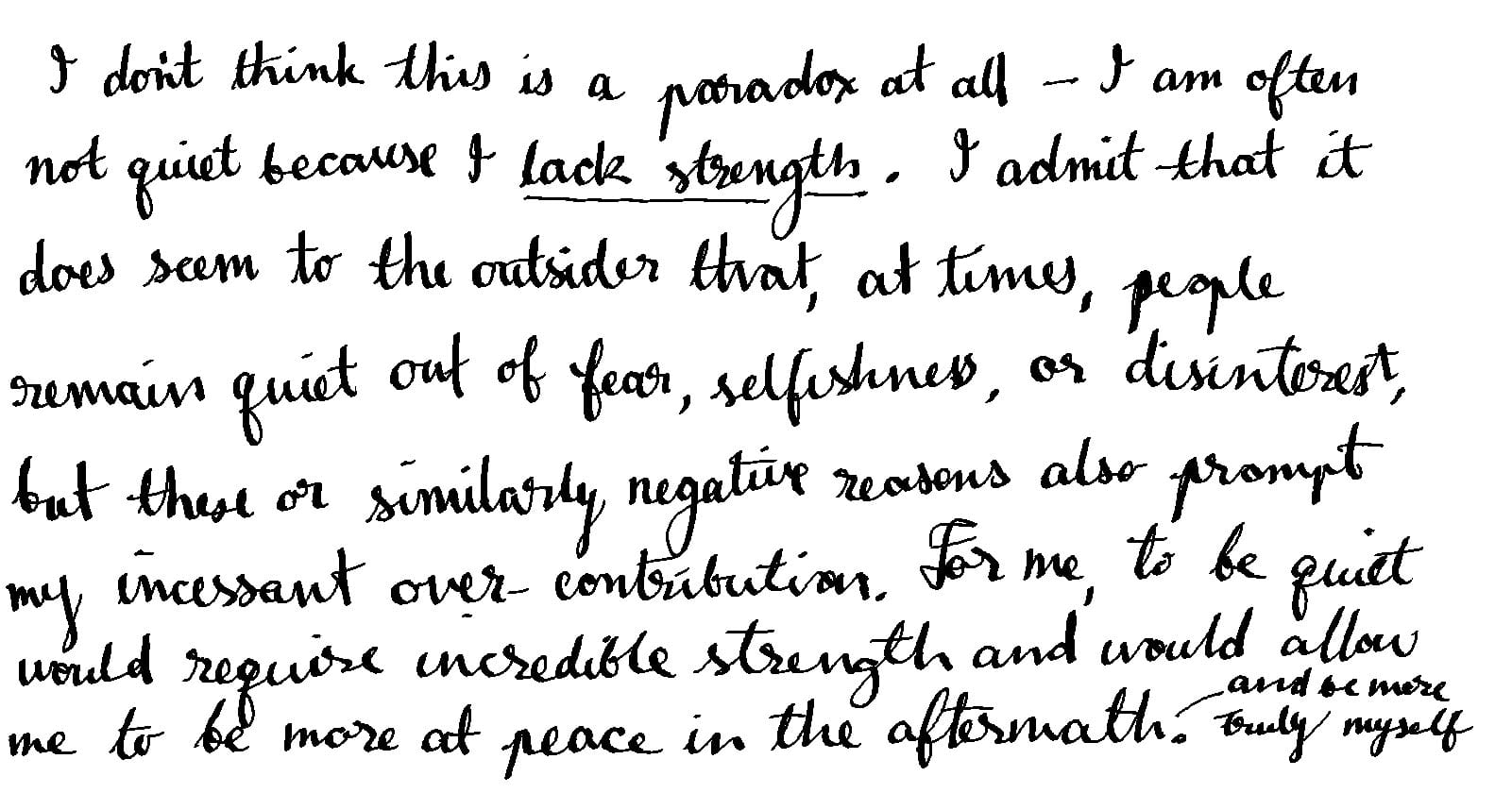

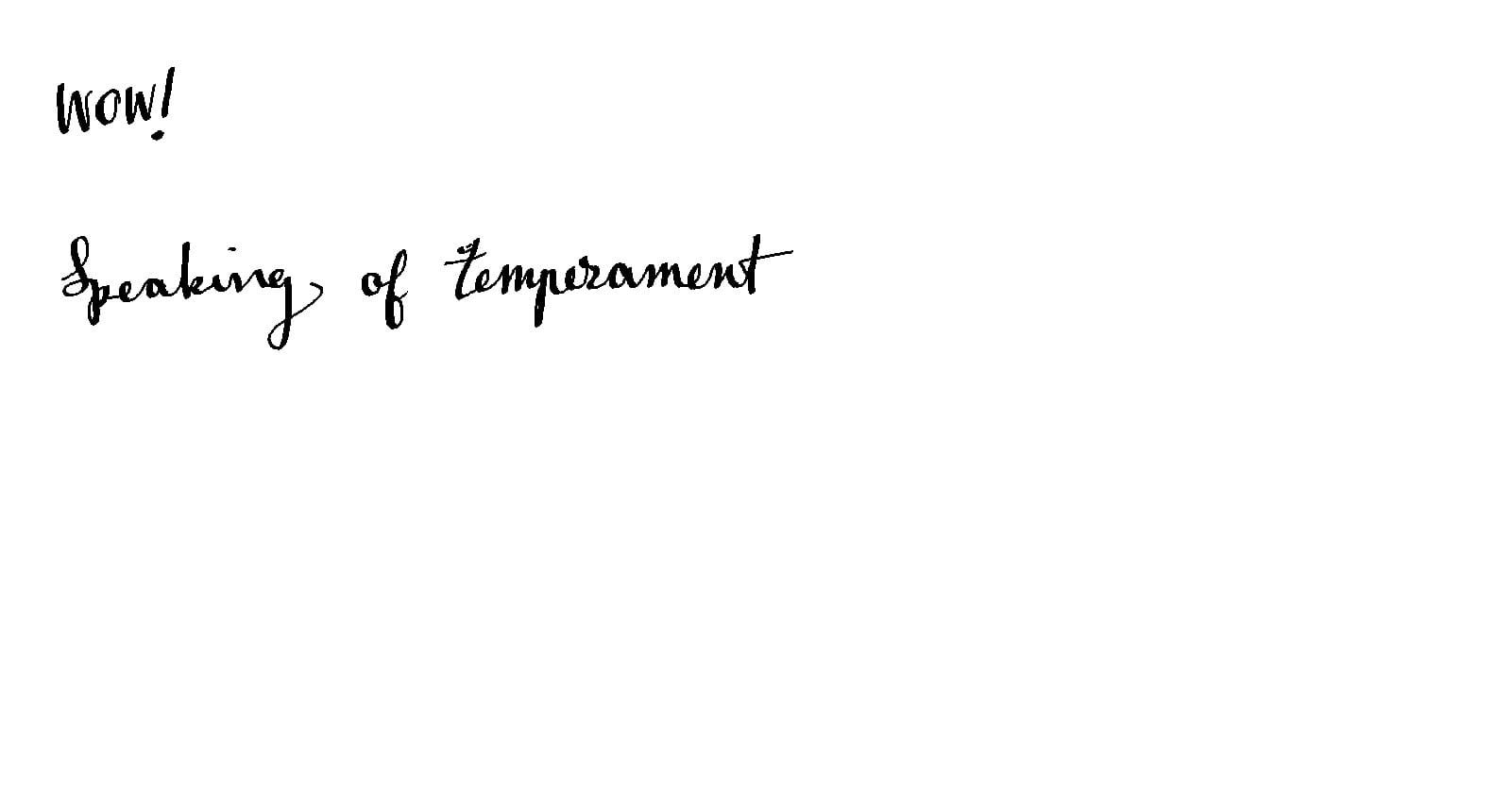
As with other complementary pairings—masculinity and femininity, East and West, liberal and conservative—humanity would be unrecognizable, and vastly diminished, without both personality styles.
If you’re not an introvert yourself, you are surely raising, managing, married to, or coupled with one.
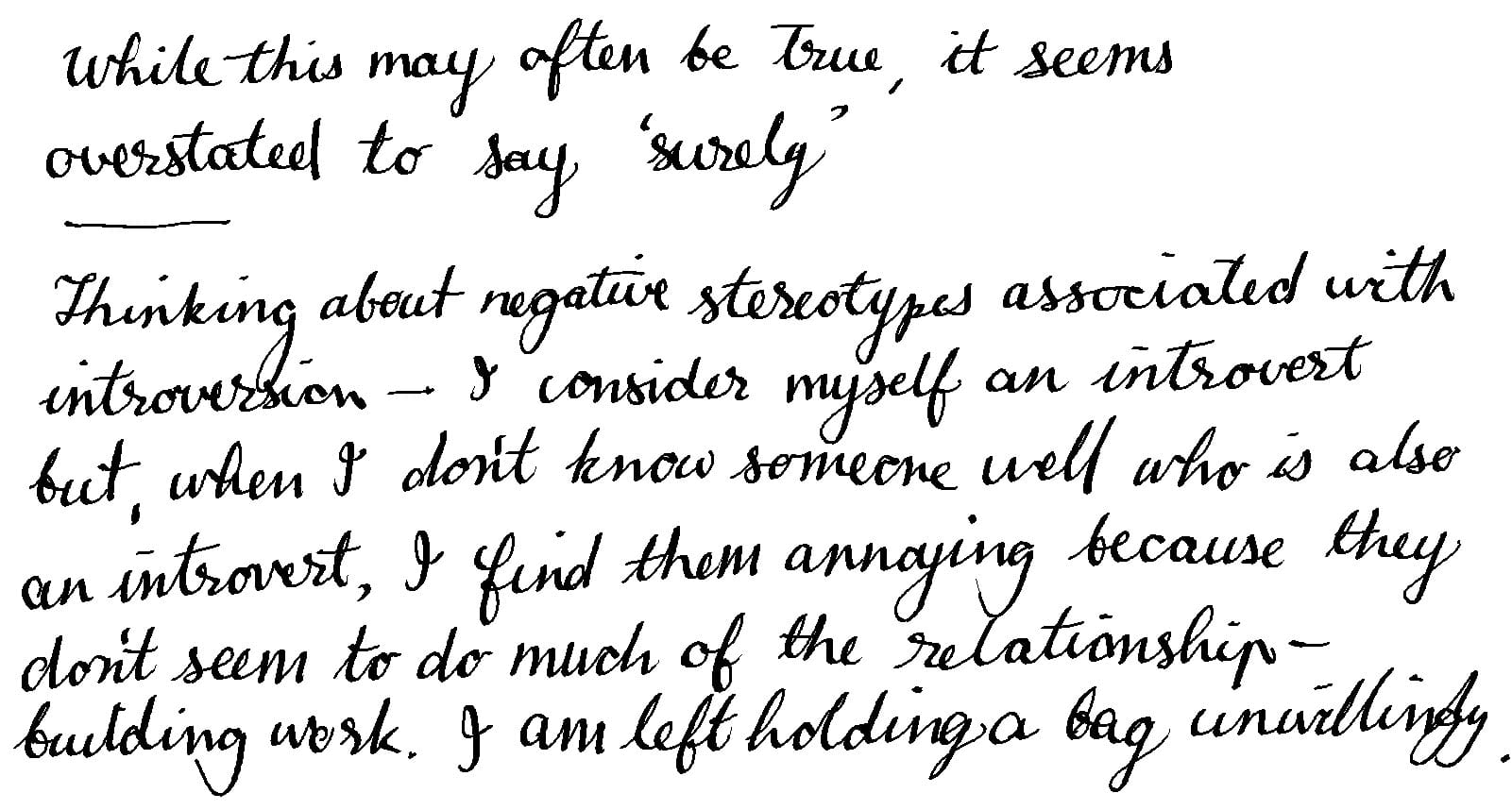
We like to think that we value individuality, but all too often we admire one type of individual—the kind who’s comfortable “putting himself out there.” Sure, we allow technologically gifted loners who launch companies in garages to have any personality they please, but they are the exceptions, not the rule, and our tolerance extends mainly to those who get fabulously wealthy or hold the promise of doing so.
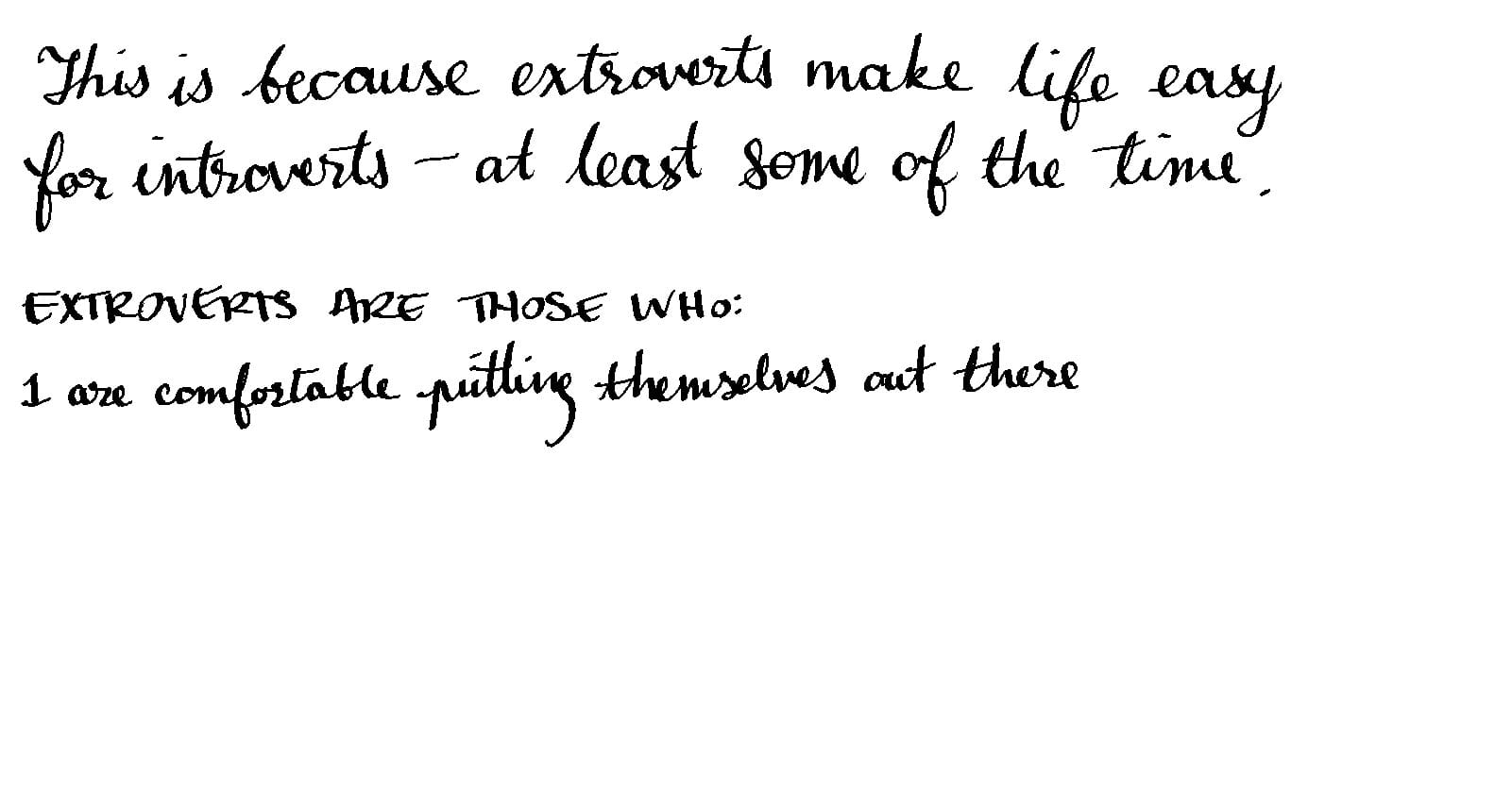

Talkative people, for example, are rated as smarter, better-looking, more interesting, and more desirable as friends. Velocity of speech counts as well as volume: we rank fast talkers as more competent and likable than slow ones.
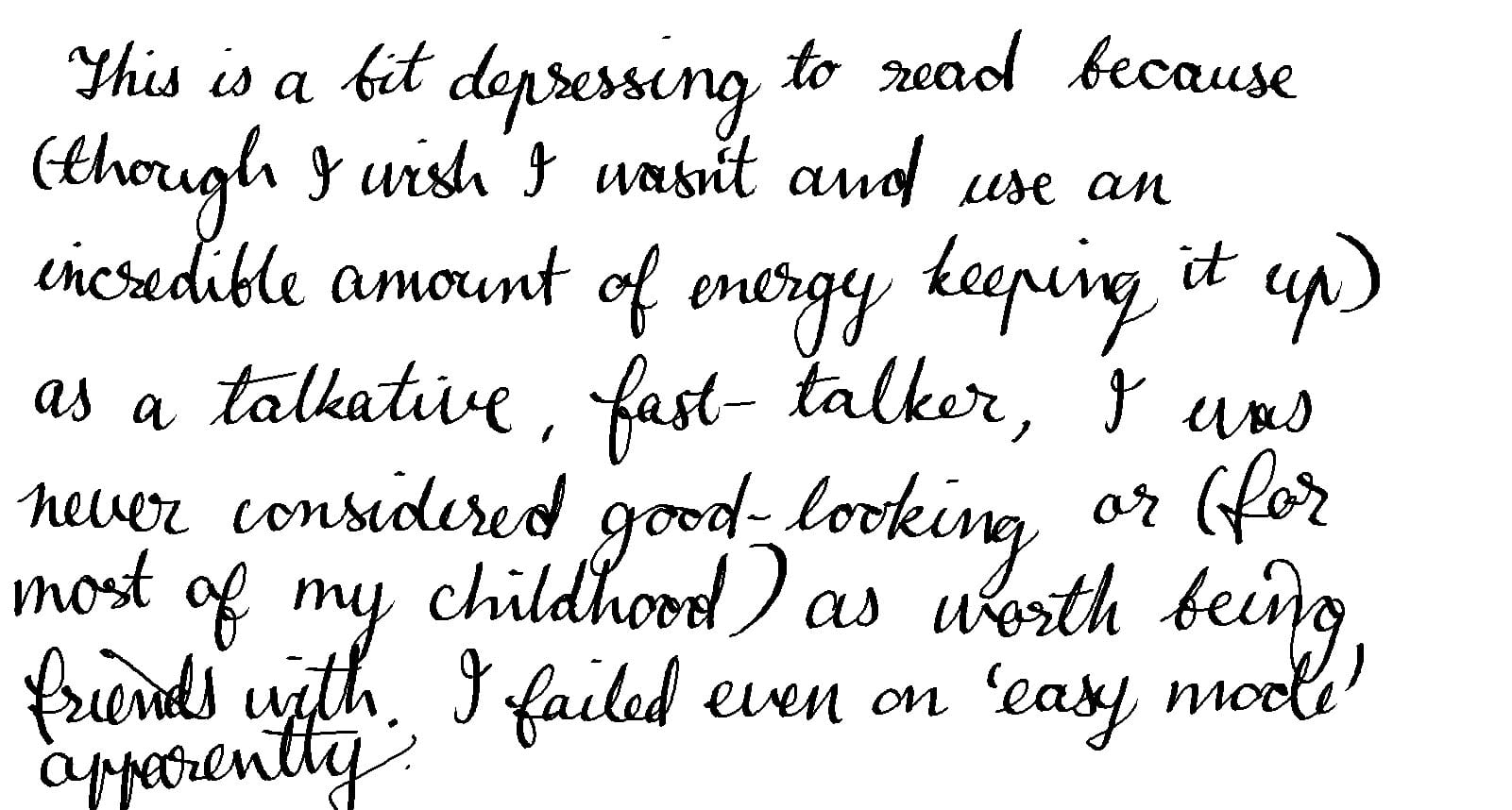
The same dynamics apply in groups, where research shows that the voluble are considered smarter than the reticent—even though there’s zero correlation between the gift of gab and good ideas.
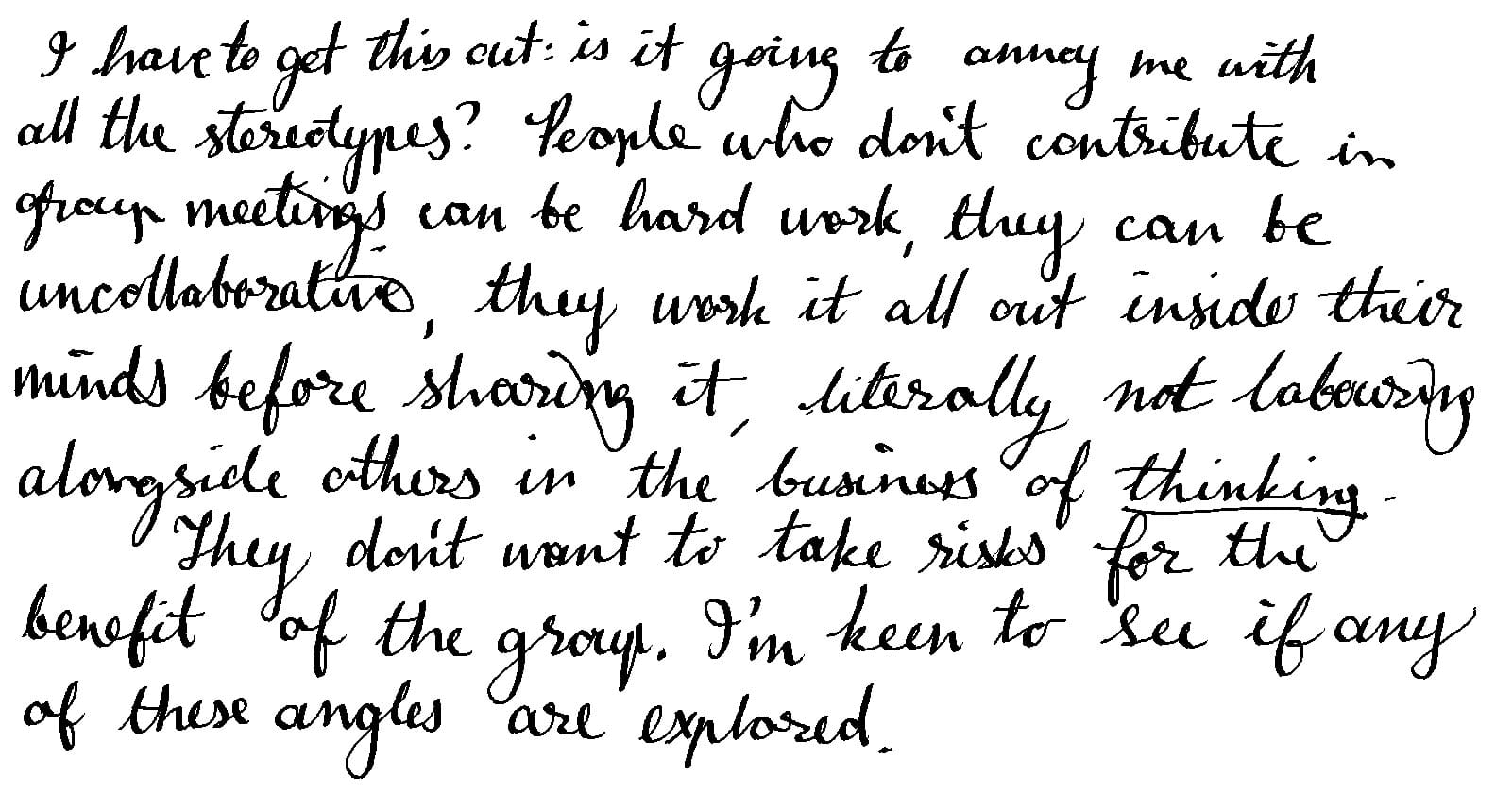
Some of our greatest ideas, art, and inventions—from the theory of evolution to van Gogh’s sunflowers to the personal computer—came from quiet and cerebral people who knew how to tune in to their inner worlds and the treasures to be found there.
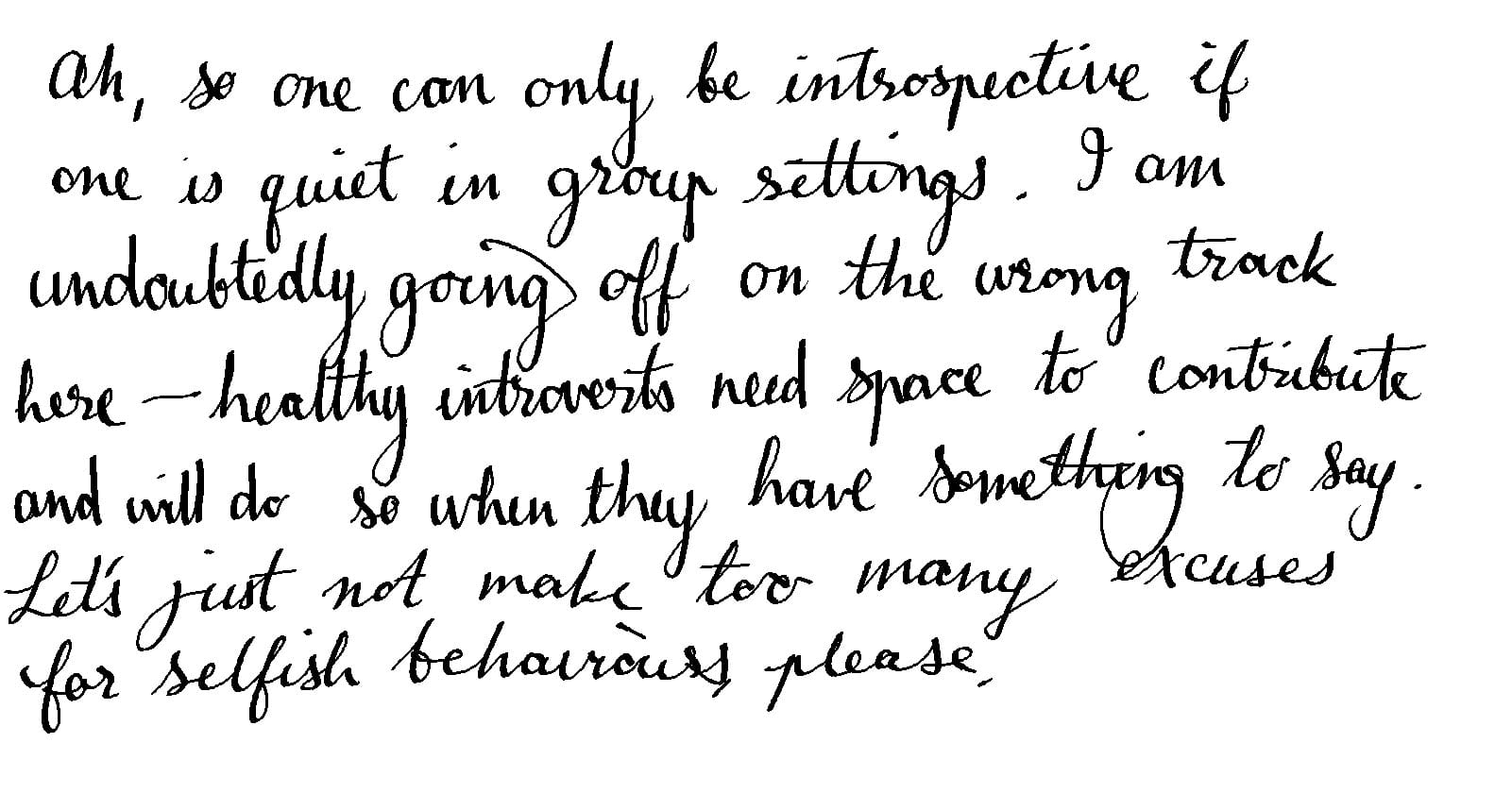
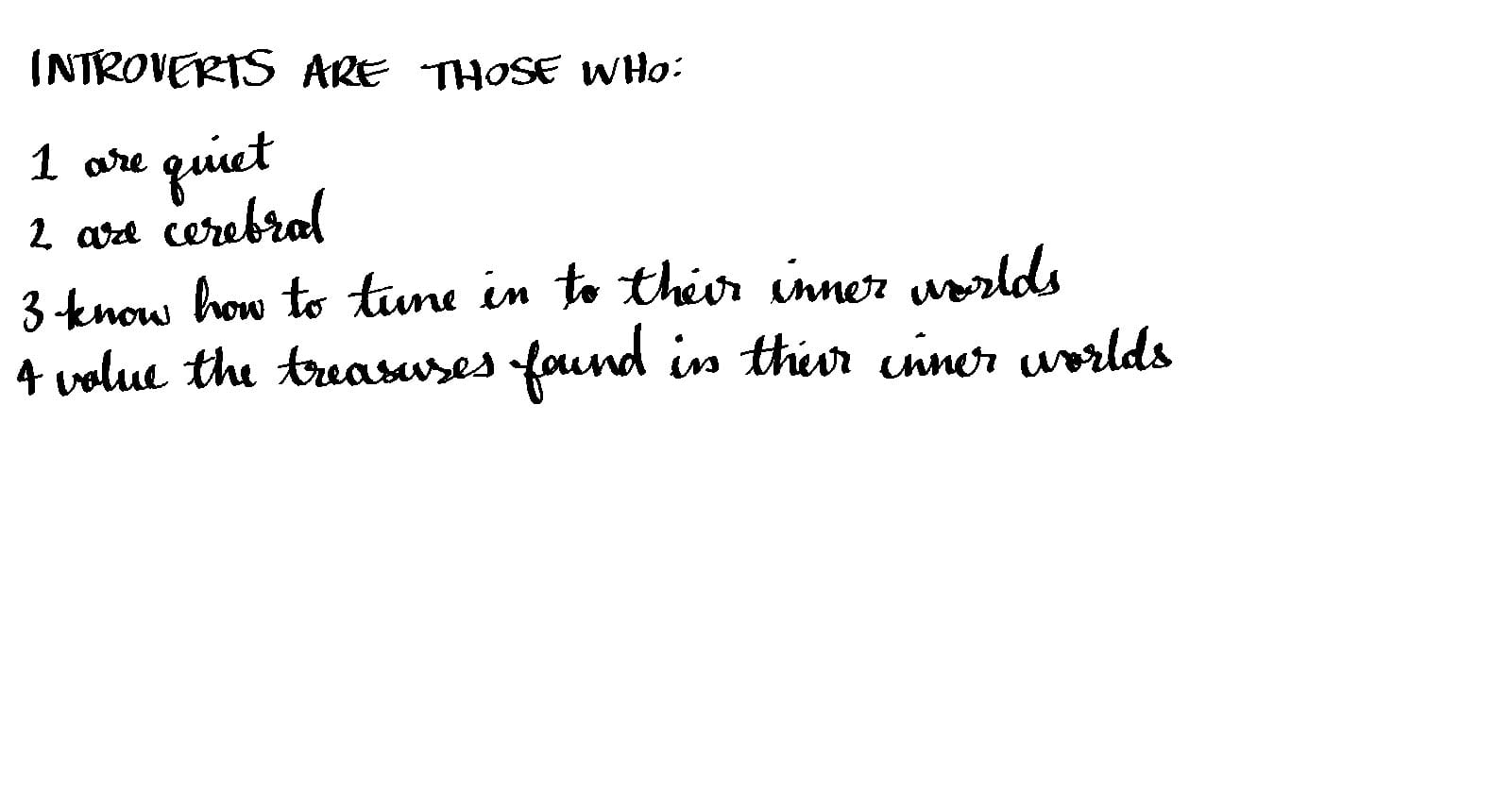
Winifred Gallagher writes: “The glory of the disposition that stops to consider stimuli rather than rushing to engage with them is its long association with intellectual and artistic achievement. Neither E = mc2 nor Paradise Lost was dashed off by a party animal.”
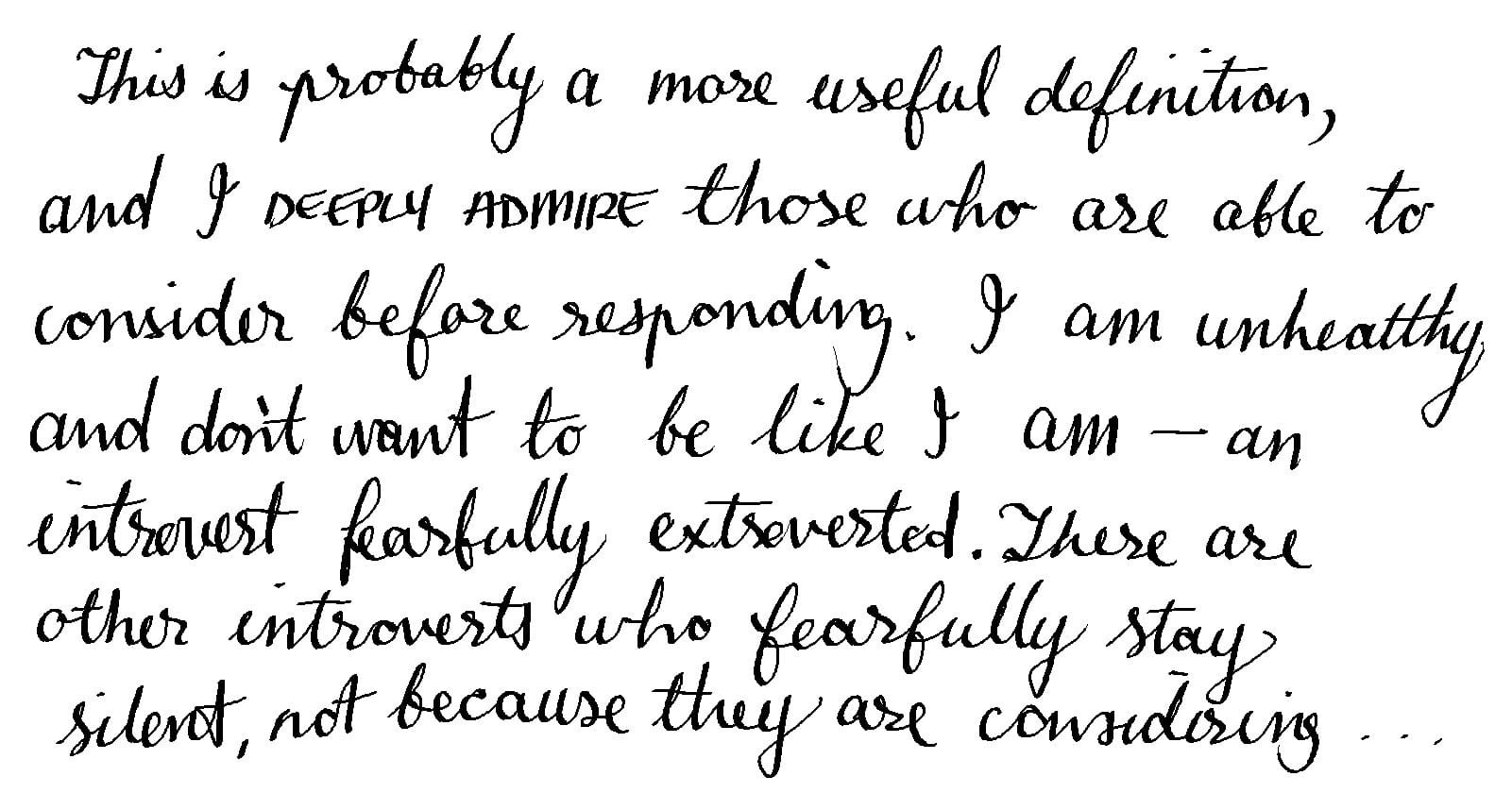
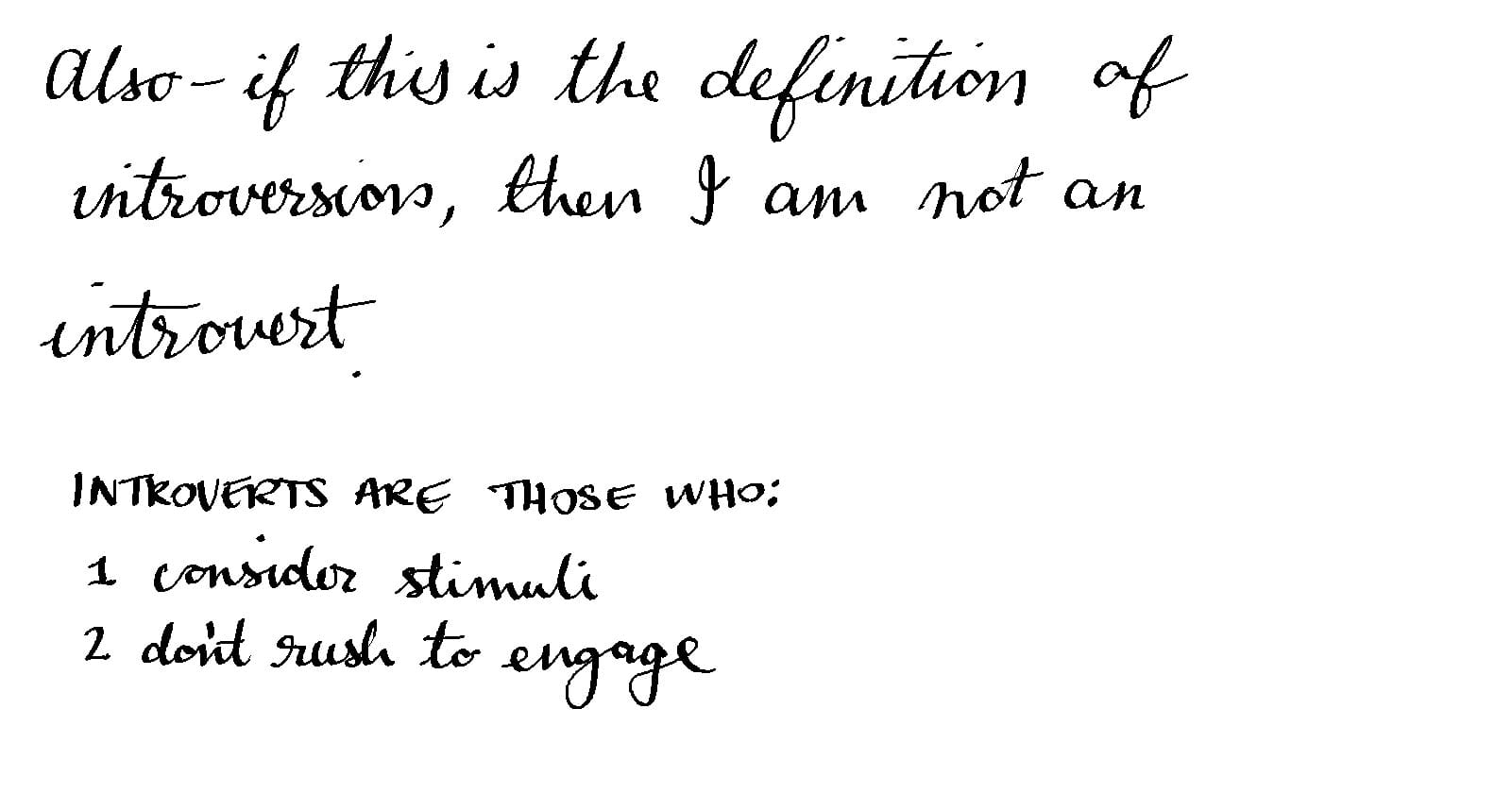
Also – if this is the definition of introversion, then I am not an introvert. Introverts are those who: 1. Consider stimuli 2. Don’t rush to engage …
… many of the most important institutions of contemporary life are designed for those who enjoy group projects and high levels of stimulation.
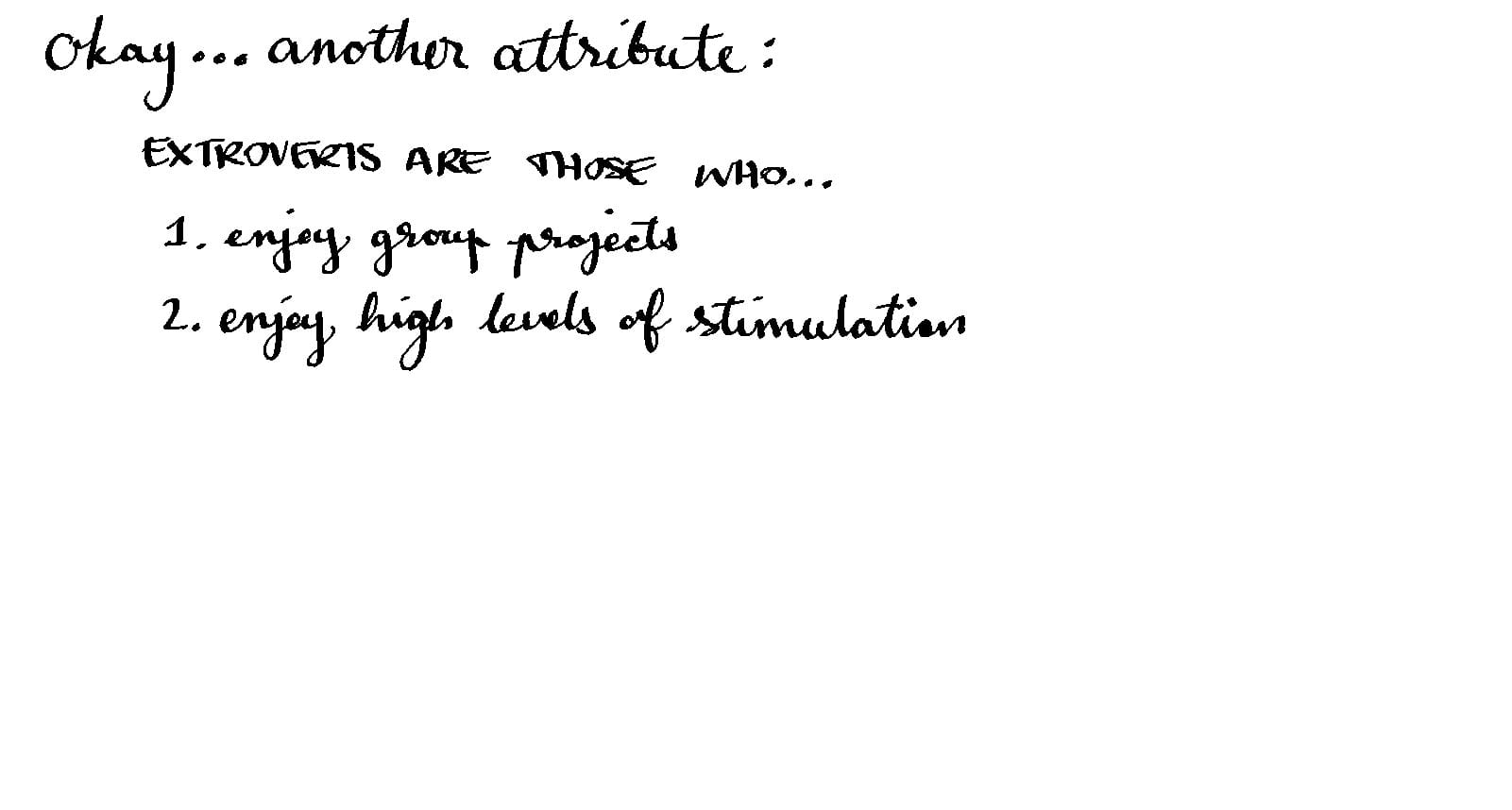
The authors whose books get published—once accepted as a reclusive breed—are now vetted by publicists to make sure they’re talk-show ready. (You wouldn’t be reading this book if I hadn’t convinced my publisher that I was enough of a pseudo-extrovert to promote it.)

If you’re an introvert, you also know that the bias against quiet can cause deep psychic pain. As a child you might have overheard your parents apologize for your shyness.
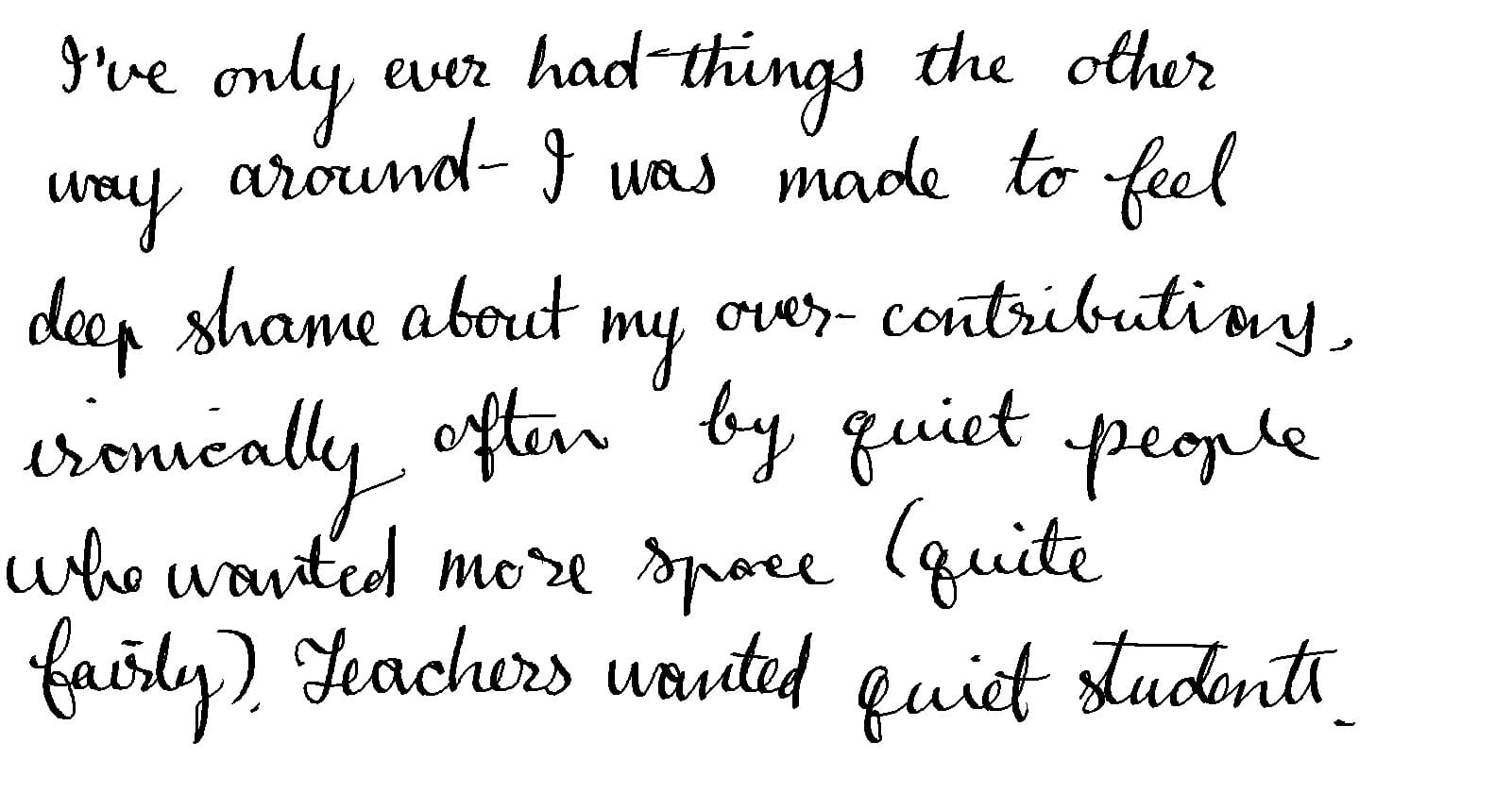
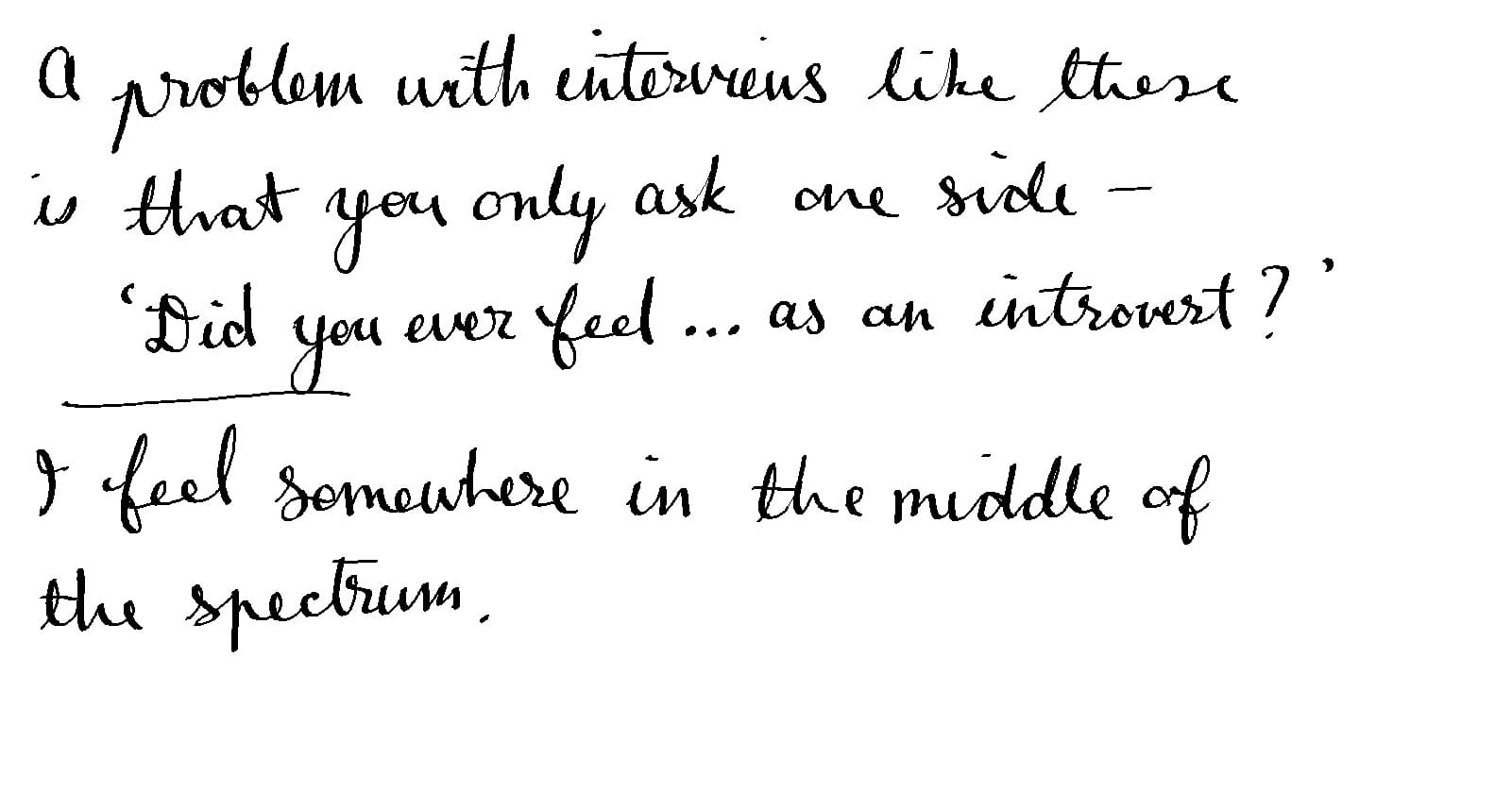
“By the time I was old enough to figure out that I was simply introverted, it was a part of my being, the assumption that there is something inherently wrong with me. I wish I could find that little vestige of doubt and remove it.”
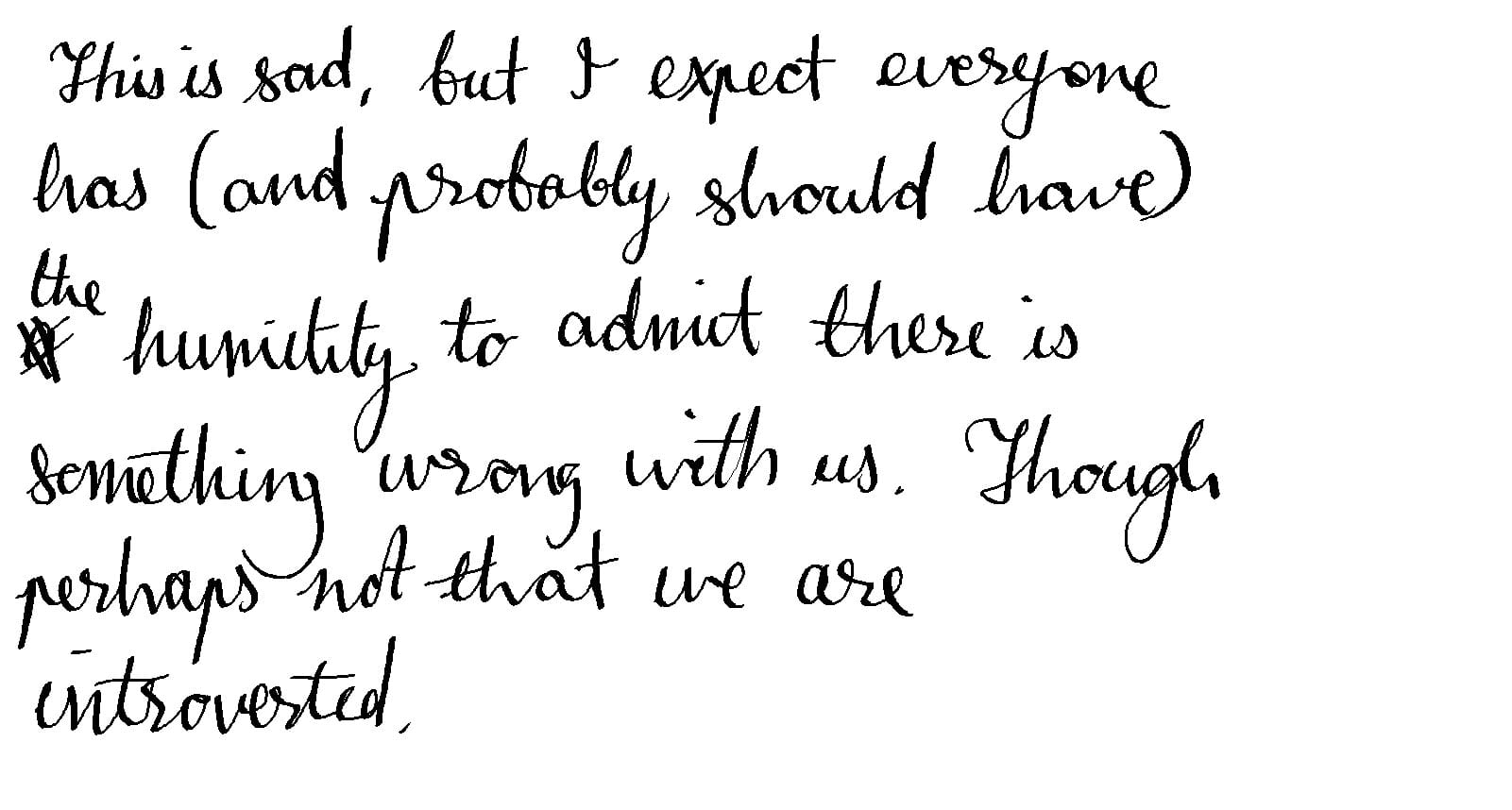
Now that you’re an adult, you might still feel a pang of guilt when you decline a dinner invitation in favor of a good book. Or maybe you like to eat alone in restaurants and could do without the pitying looks from fellow diners. Or you’re told that you’re “in your head too much,” a phrase that’s often deployed against the quiet and cerebral.
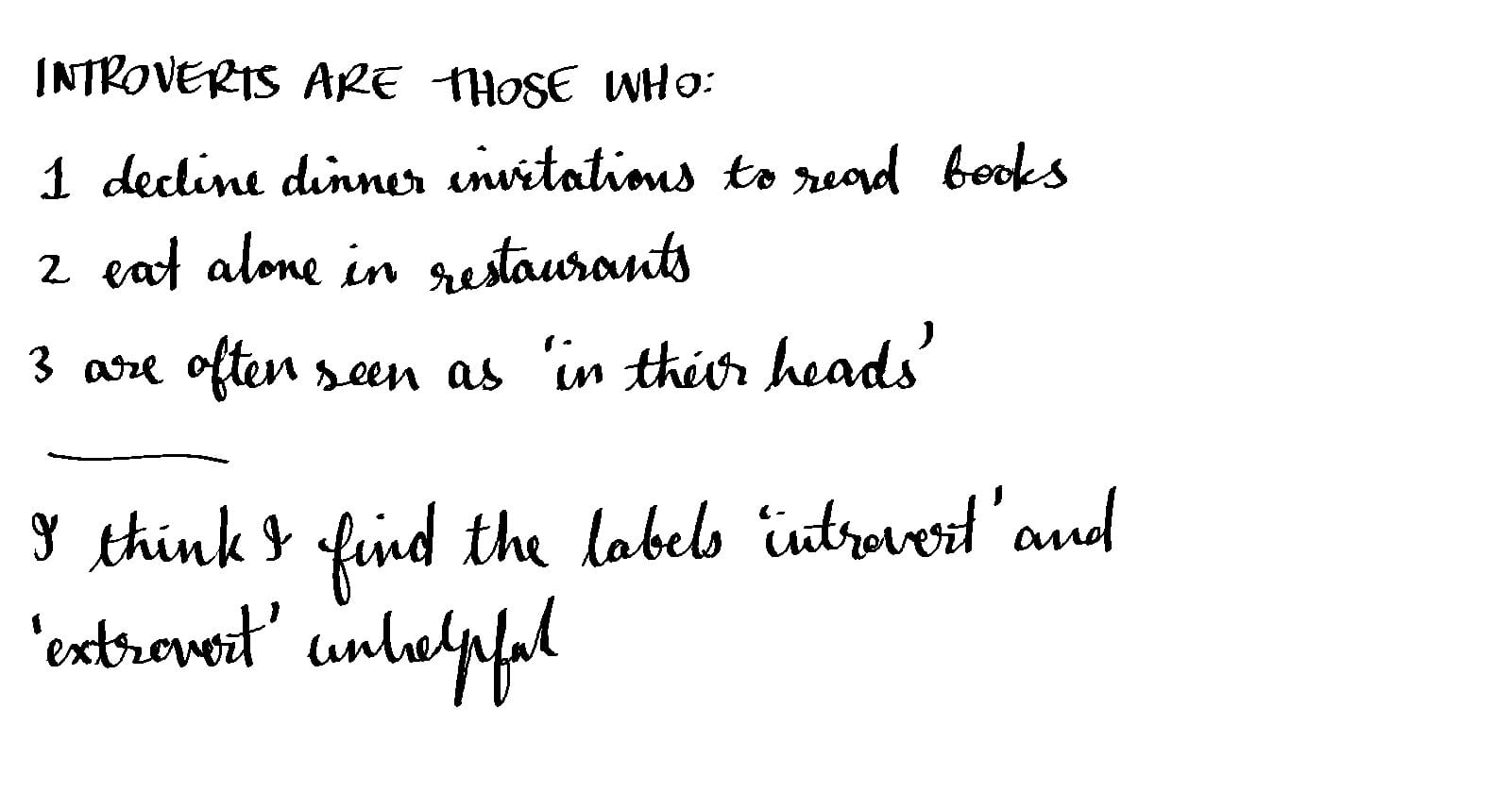
I have seen firsthand how difficult it is for introverts to take stock of their own talents, and how powerful it is when finally they do.
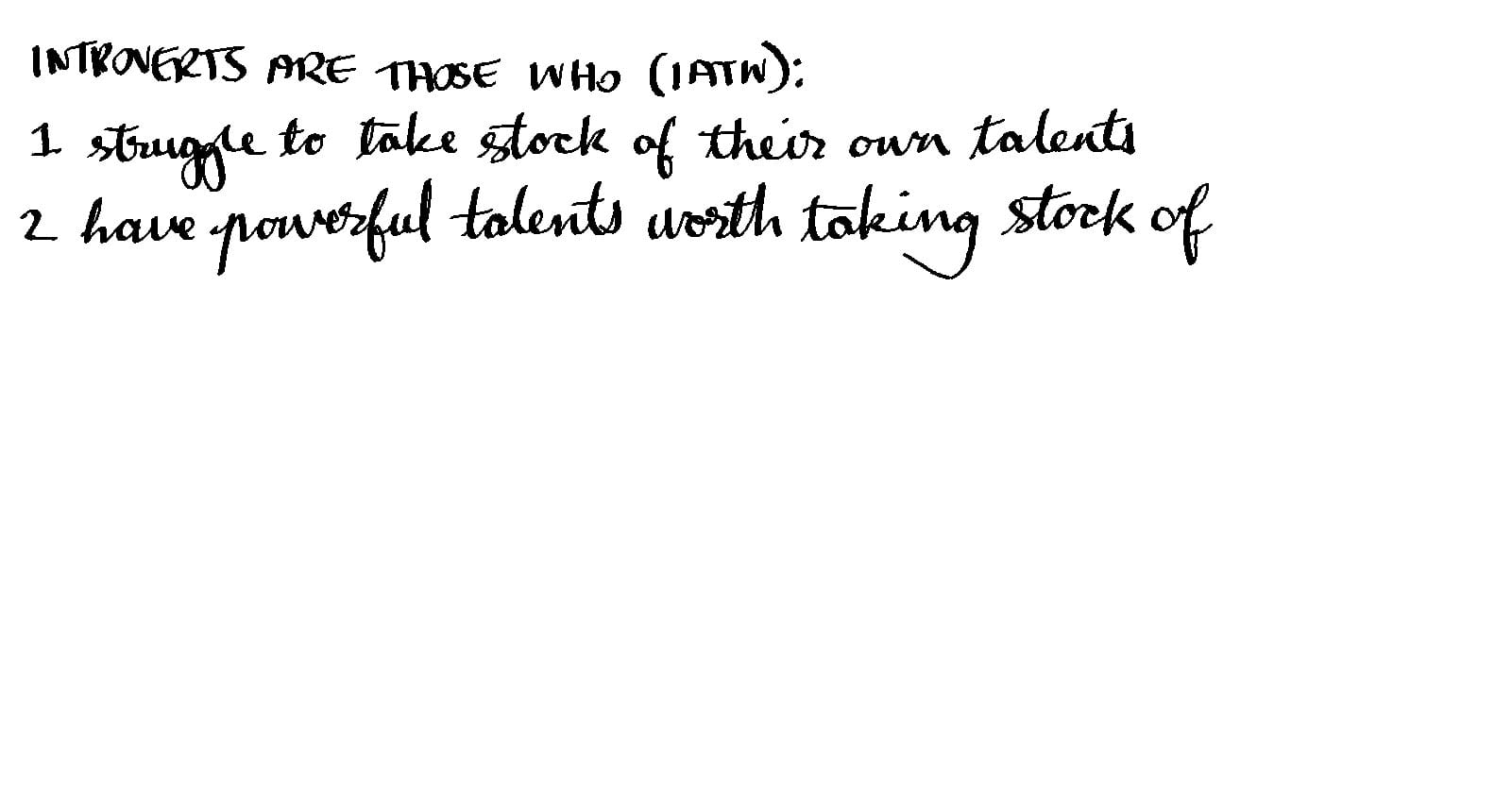
These happened to be Laura’s favorite clients: gracious and soft-spoken, very different from the master-of-the-universe types her firm usually represented. In the past, Laura had taken the general counsel to a Yankees game and the financial officer shopping for a handbag for her sister.
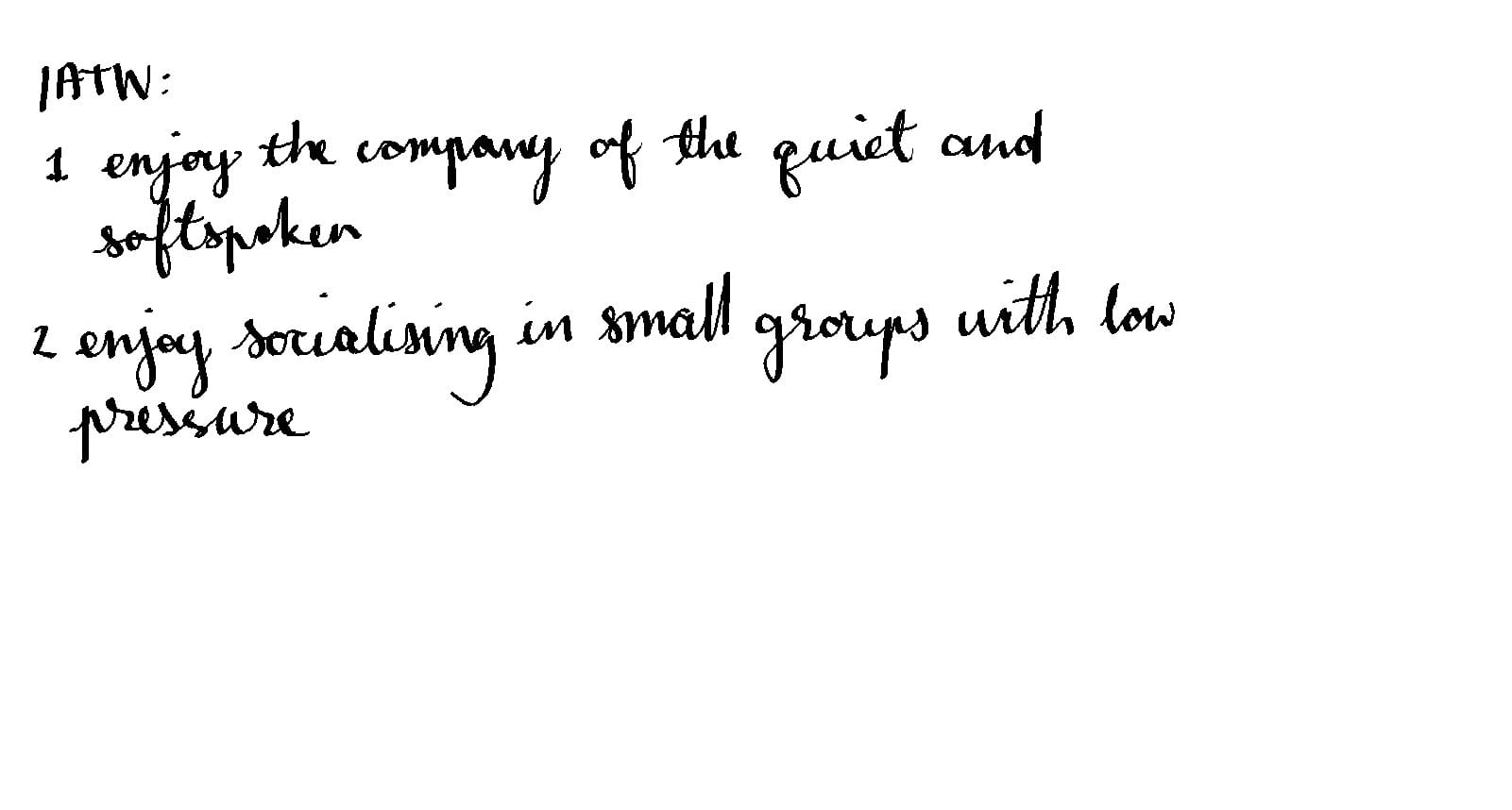
Then she remembered what I’d told her again and again: she was an introvert, and as such she had unique powers in negotiation—perhaps less obvious but no less formidable. She’d probably prepared more than everyone else. She had a quiet but firm speaking style. She rarely spoke without thinking. Being mild-mannered, she could take strong, even aggressive, positions while coming across as perfectly reasonable. And she tended to ask questions—lots of them—and actually listen to the answers, which, no matter what your personality, is crucial to strong negotiation.
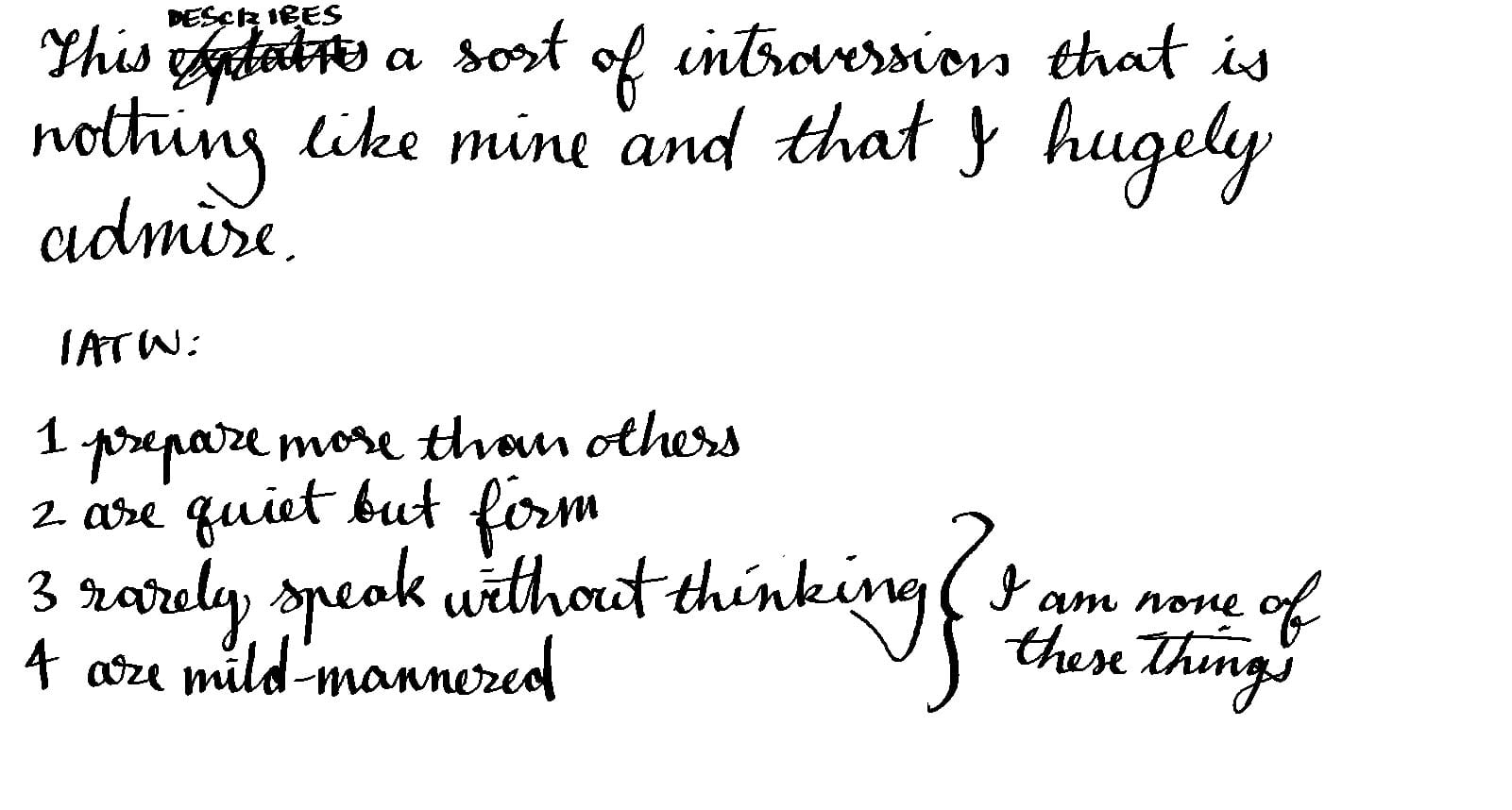
Every time the bankers made an assertion that seemed unbudgeable, Laura tried to be constructive. “Are you saying that’s the only way to go? What if we took a different approach?”

Introverts are drawn to the inner world of thought and feeling, said Jung, extroverts to the external life of people and activities. Introverts focus on the meaning they make of the events swirling around them; extroverts plunge into the events themselves. Introverts recharge their batteries by being alone; extroverts need to recharge when they don’t socialize enough.
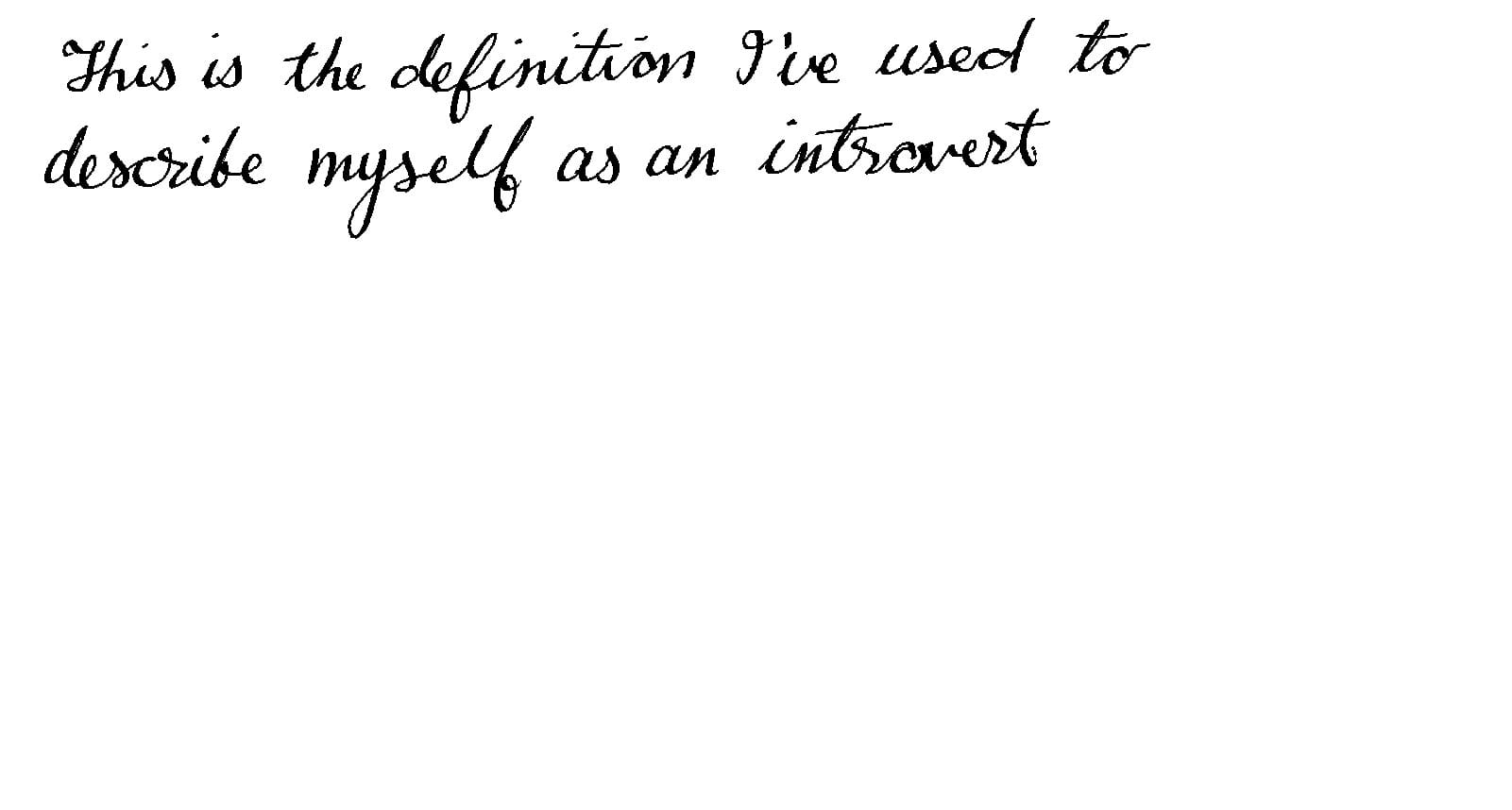
For example, adherents of the Big Five school of personality psychology (which argues that human personality can be boiled down to five primary traits) define introversion not in terms of a rich inner life but as a lack of qualities such as assertiveness and sociability.
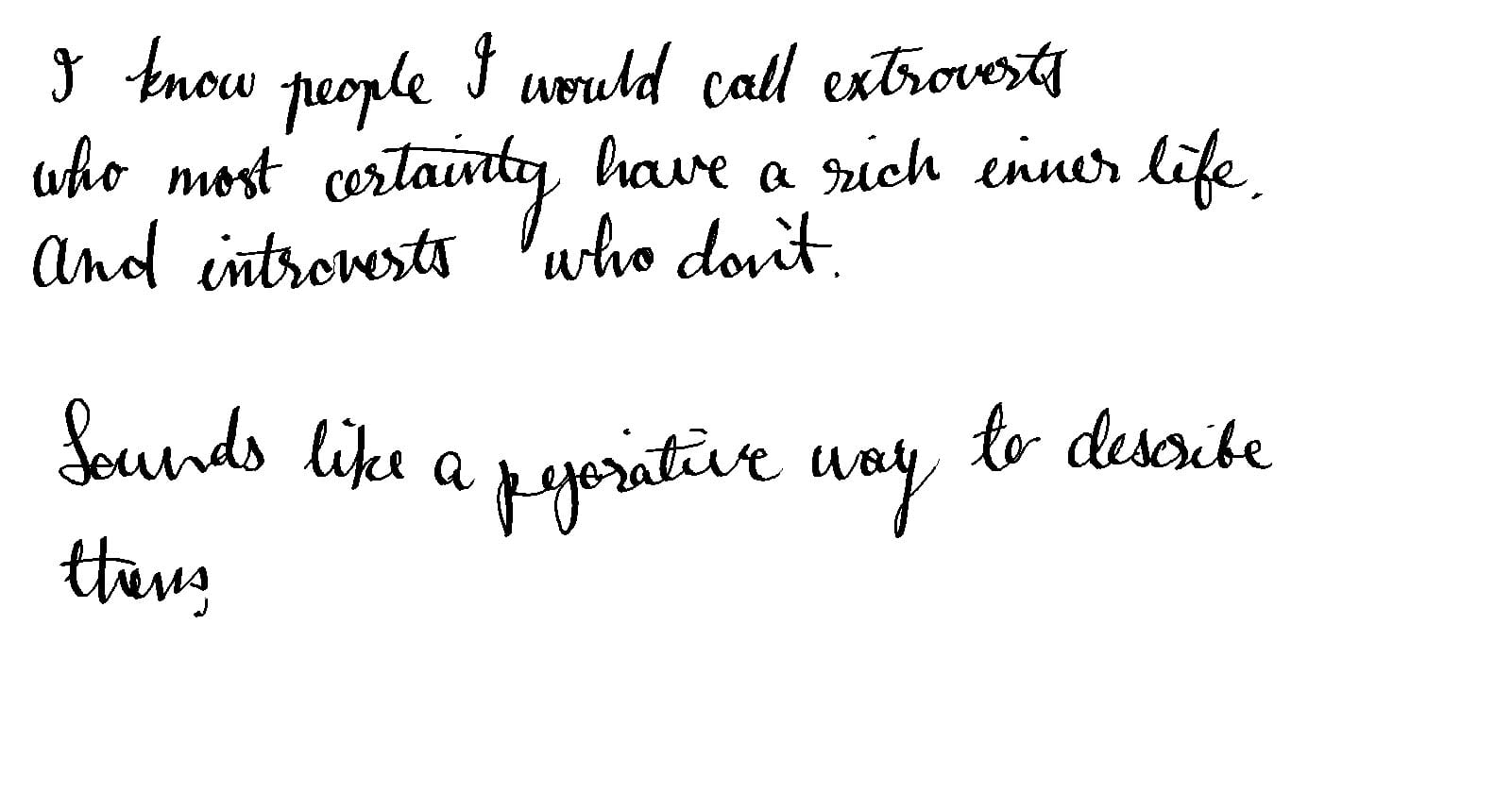
Introverts feel “just right” with less stimulation, as when they sip wine with a close friend, solve a crossword puzzle, or read a book. Extroverts enjoy the extra bang that comes from activities like meeting new people, skiing slippery slopes, and cranking up the stereo.
“Other people are very arousing,” says the personality psychologist David Winter, explaining why your typical introvert would rather spend her vacation reading on the beach than partying on a cruise ship. “They arouse threat, fear, flight, and love. A hundred people are very stimulating compared to a hundred books or a hundred grains of sand.”
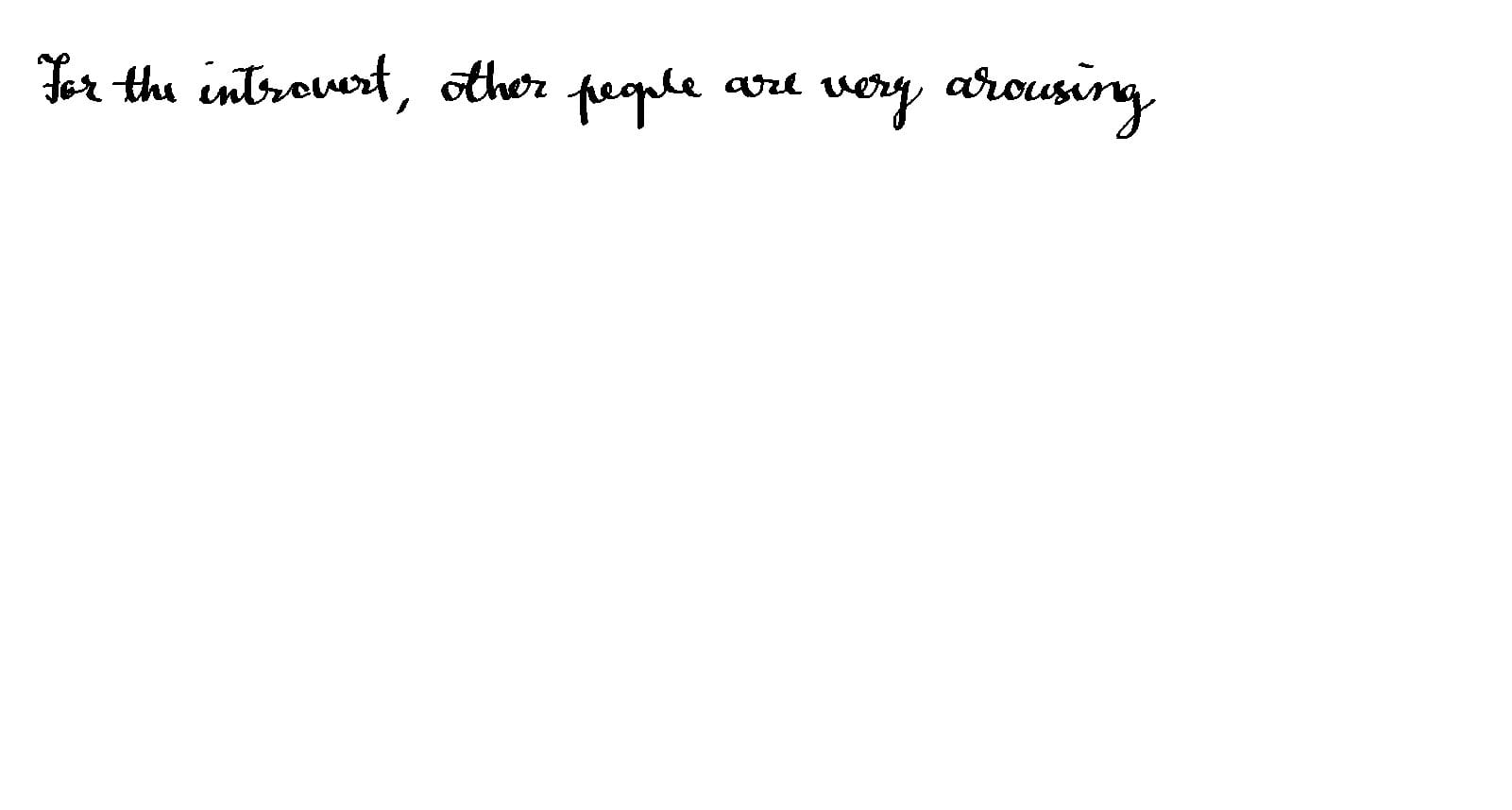
Many psychologists would also agree that introverts and extroverts work differently. Extroverts tend to tackle assignments quickly. They make fast (sometimes rash) decisions, and are comfortable multitasking and risk-taking. They enjoy “the thrill of the chase” for rewards like money and status.
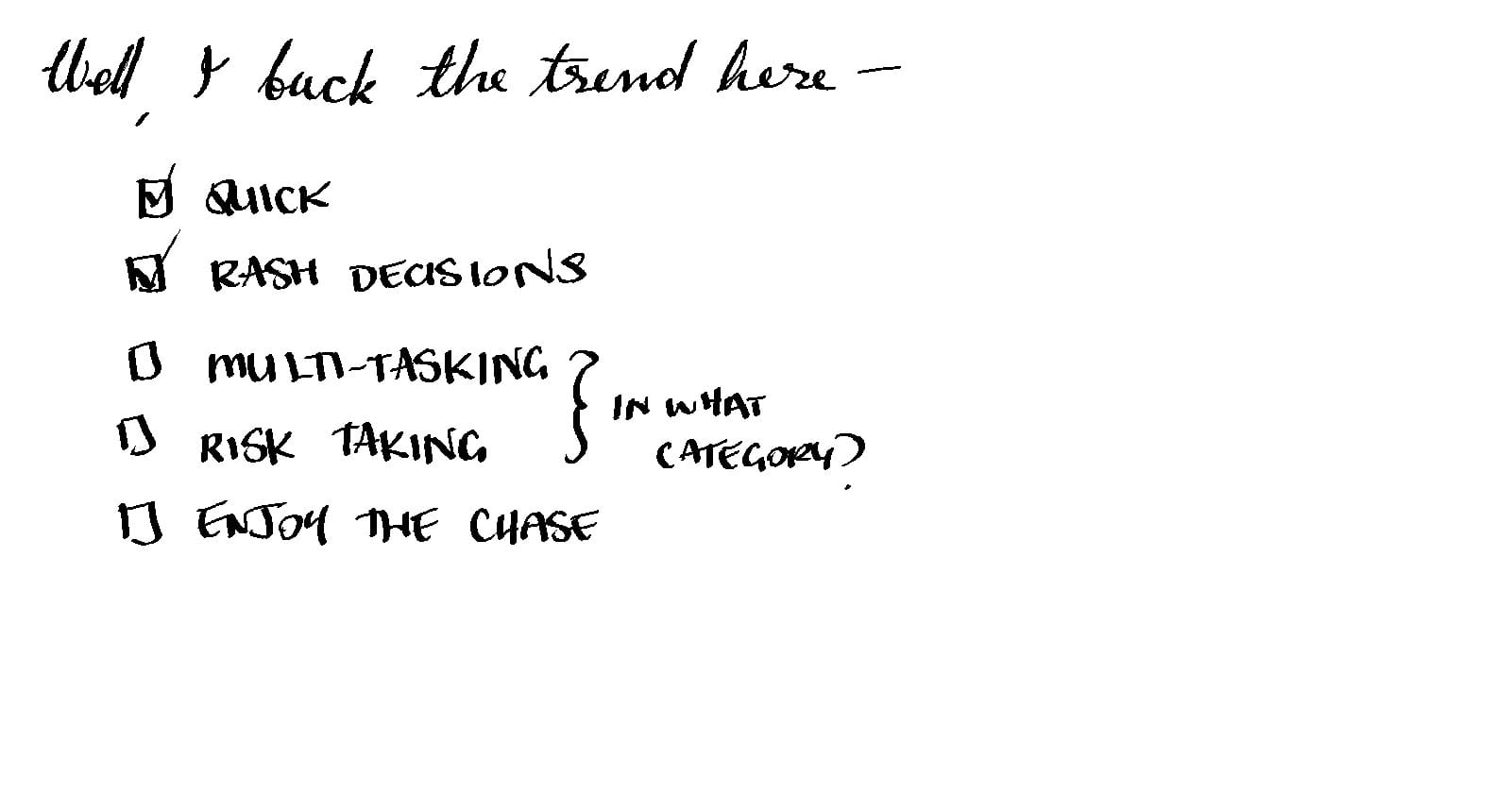
Introverts often work more slowly and deliberately. They like to focus on one task at a time and can have mighty powers of concentration. They’re relatively immune to the lures of wealth and fame.

Extroverts think out loud and on their feet; they prefer talking to listening, rarely find themselves at a loss for words, and occasionally blurt out things they never meant to say.
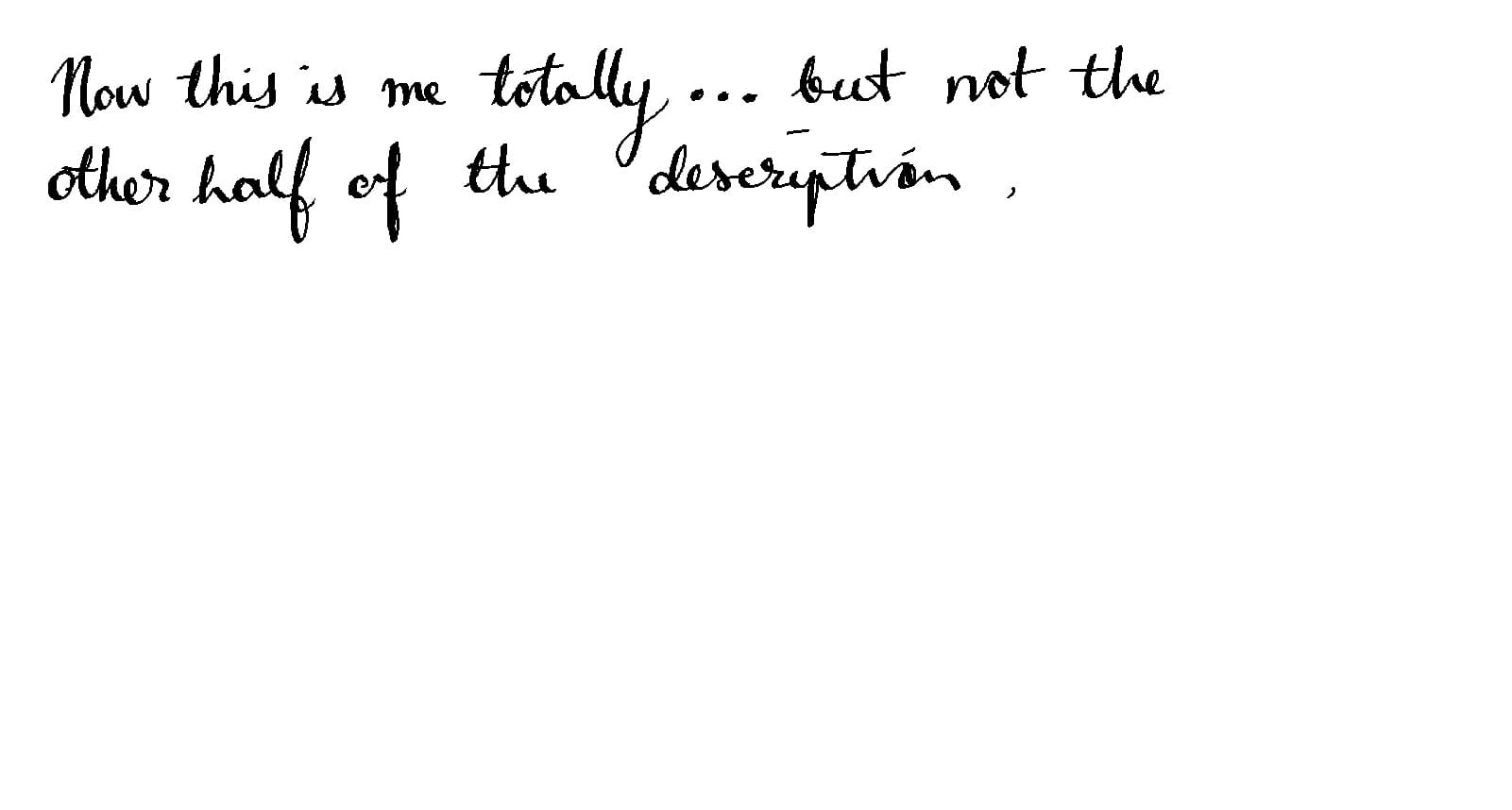
Introverts, in contrast, may have strong social skills and enjoy parties and business meetings, but after a while wish they were home in their pajamas. They prefer to devote their social energies to close friends, colleagues, and family. They listen more than they talk, think before they speak, and often feel as if they express themselves better in writing than in conversation. They tend to dislike conflict. Many have a horror of small talk, but enjoy deep discussions.
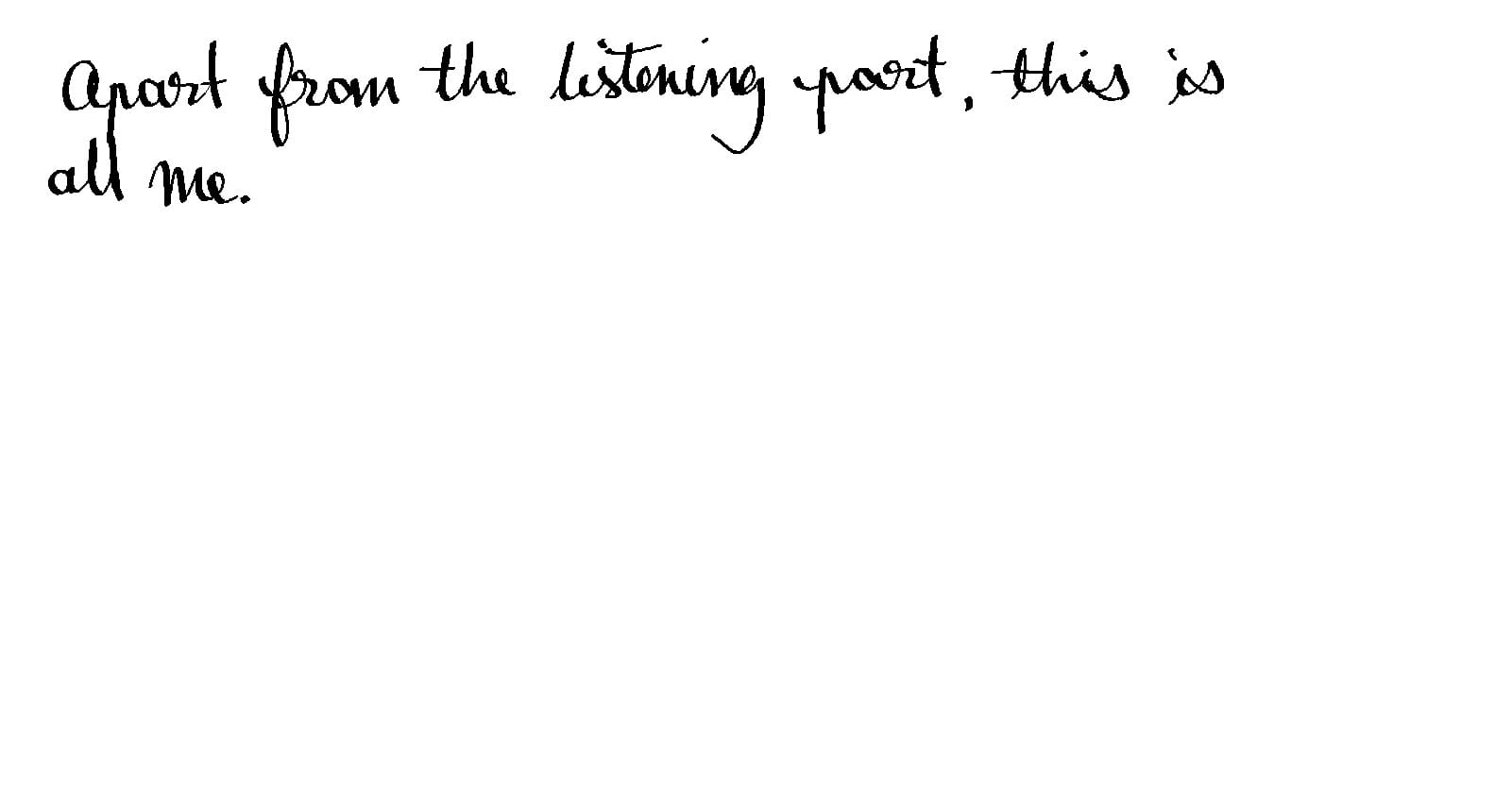
Some psychologists map the two tendencies on vertical and horizontal axes, with the introvert-extrovert spectrum on the horizontal axis, and the anxious-stable spectrum on the vertical. With this model, you end up with four quadrants of personality types: calm extroverts, anxious (or impulsive) extroverts, calm introverts, and anxious introverts.
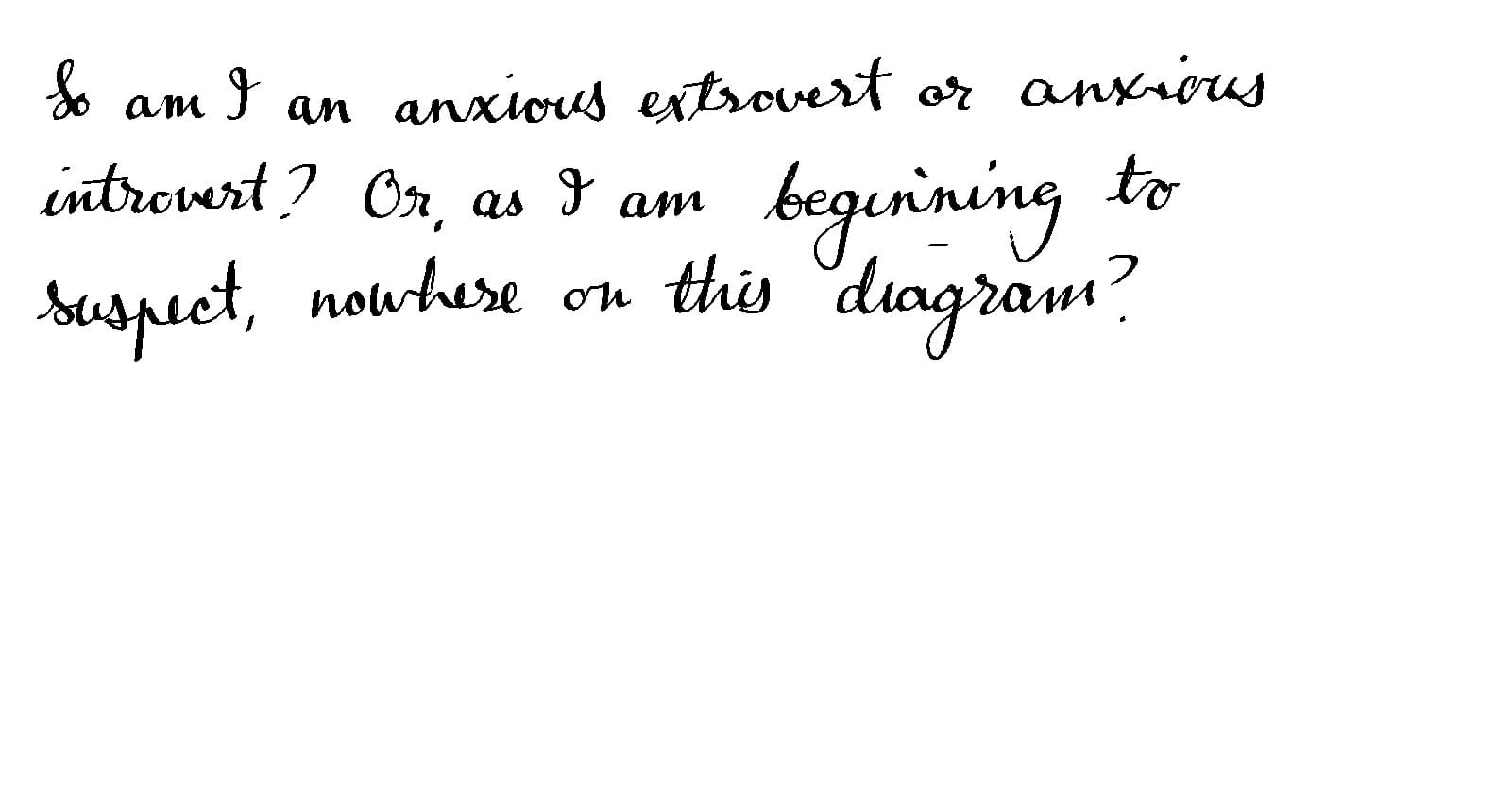
As Jung felicitously put it, “There is no such thing as a pure extrovert or a pure introvert. Such a man would be in the lunatic asylum.”Part One: The Extrovert Ideal
Part One
The Extrovert Ideal
Chapter 1: The Rise of the 'Mighty Likeable Fellow'
How Extroversion Became the Cultural Ideal
America had shifted from what the influential cultural historian Warren Susman called a Culture of Character to a Culture of Personality—and opened up a Pandora’s Box of personal anxieties from which we would never quite recover.
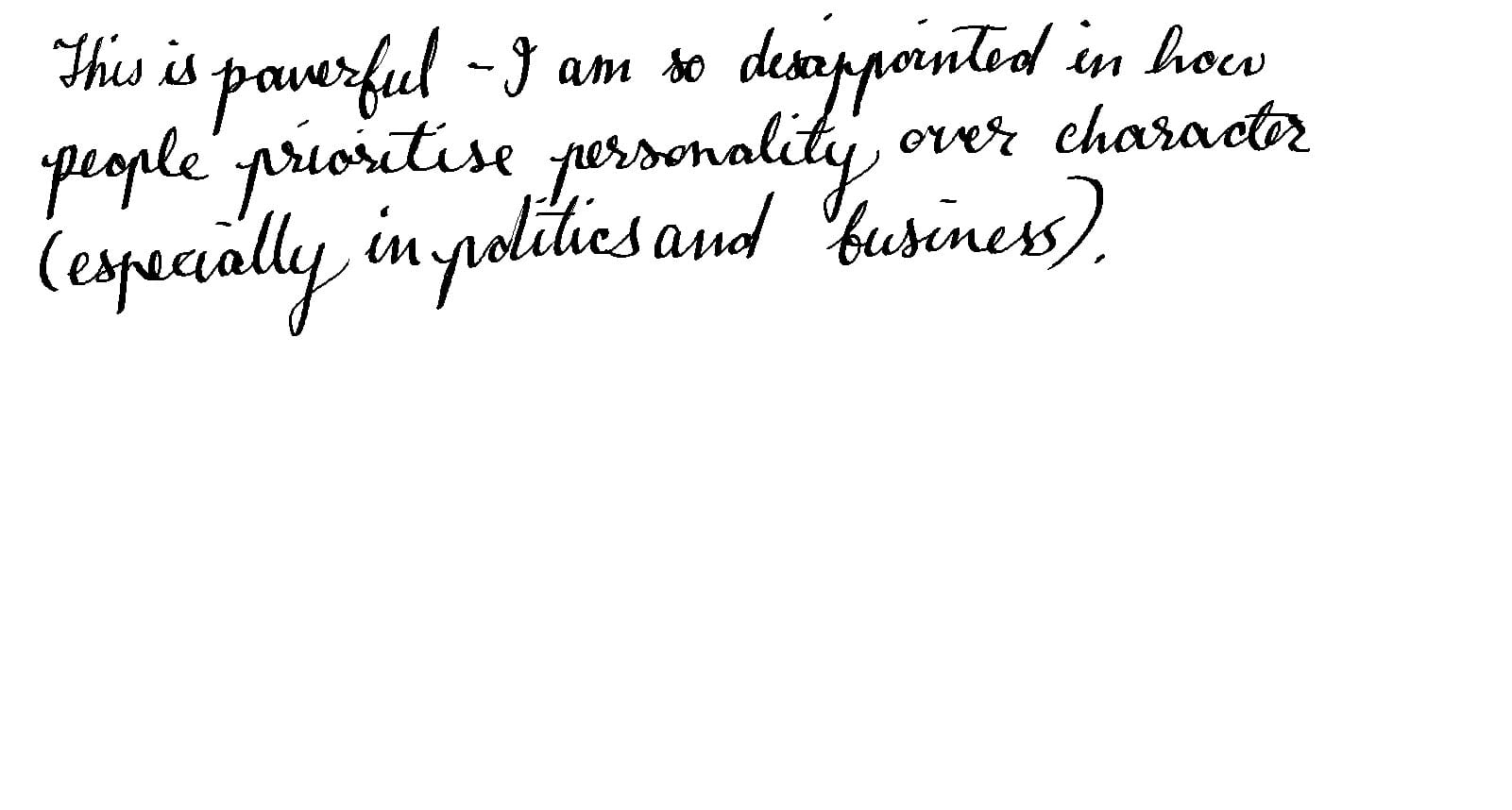
In the Culture of Character, the ideal self was serious, disciplined, and honorable. What counted was not so much the impression one made in public as how one behaved in private … But when they embraced the Culture of Personality, Americans started to focus on how others perceived them. They became captivated by people who were bold and entertaining.
… by 1920, popular self-help guides had changed their focus from inner virtue to outer charm—“ to know what to say and how to say it,” as one manual put it.
Susman counted the words that appeared most frequently in the personality-driven advice manuals of the early twentieth century and compared them to the character guides of the nineteenth century.
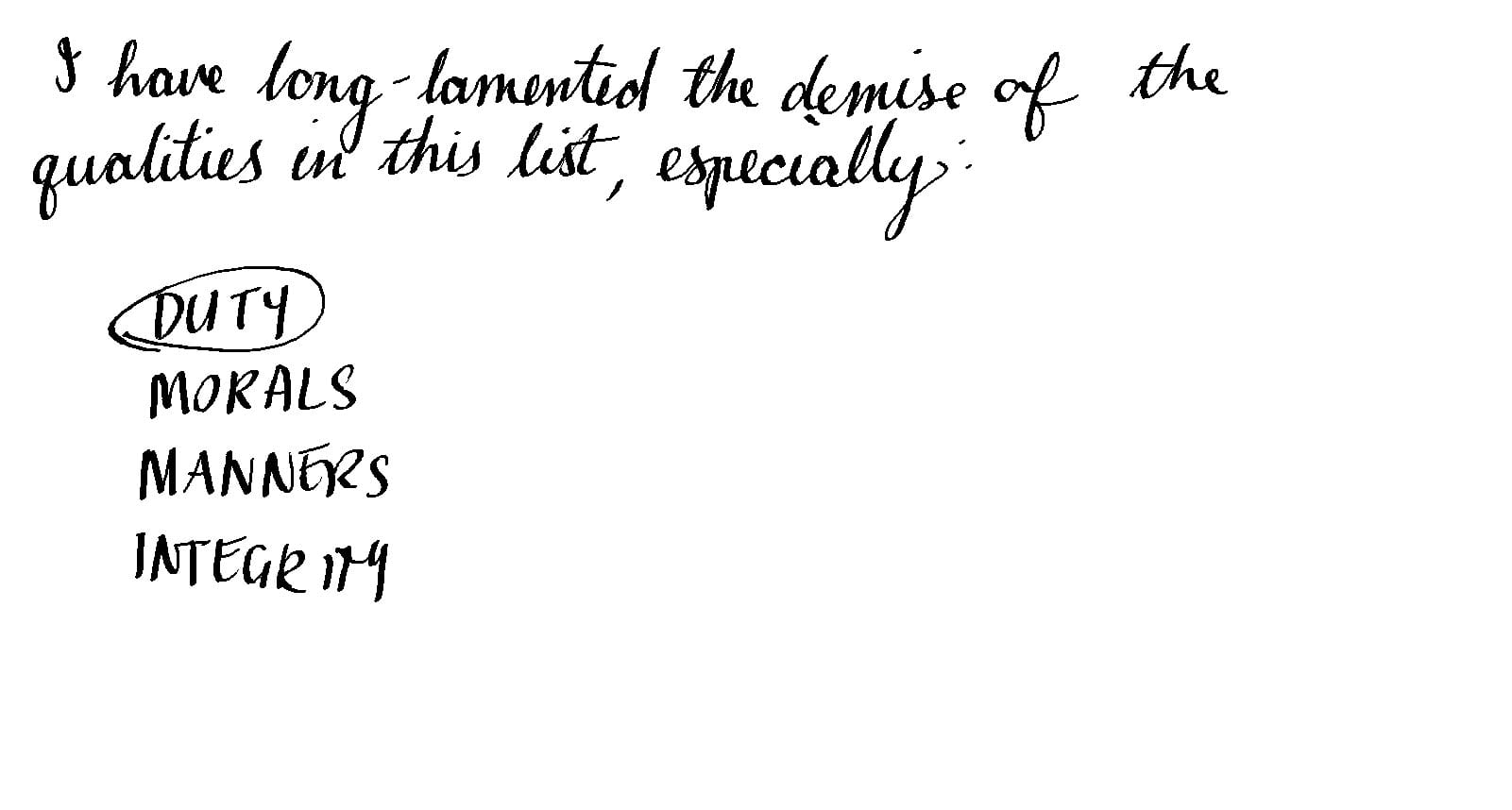
If only Joan would use Lux detergent on her lingerie, curtains, and sofa cushions, she would soon gain a “deep, sure, inner conviction of being charming.”
Shyness could lead to dire outcomes, they warned, from alcoholism to suicide, while an outgoing personality would bring social and financial success.
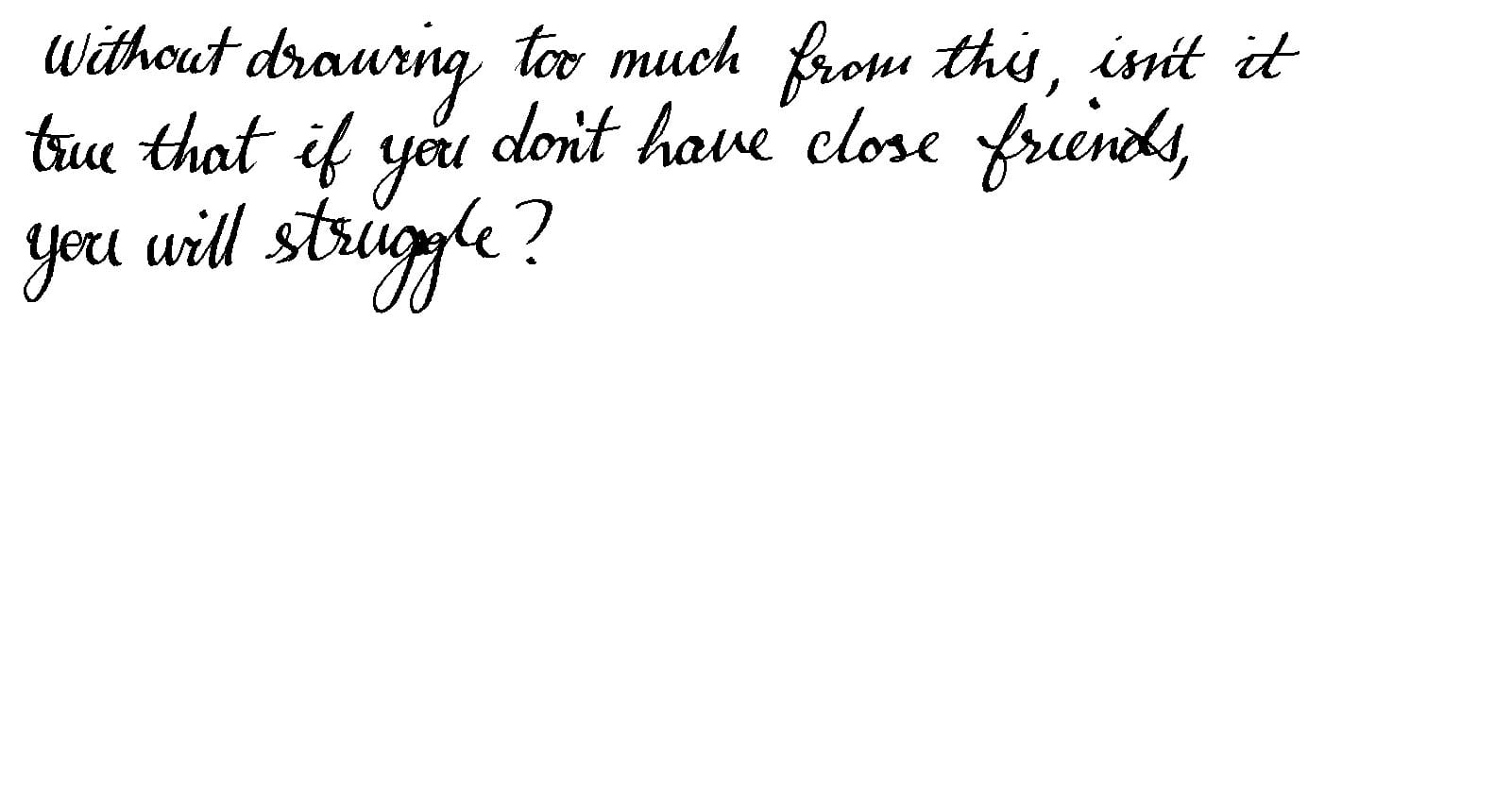
Well-meaning parents of the midcentury agreed that quiet was unacceptable and gregariousness ideal for both girls and boys.
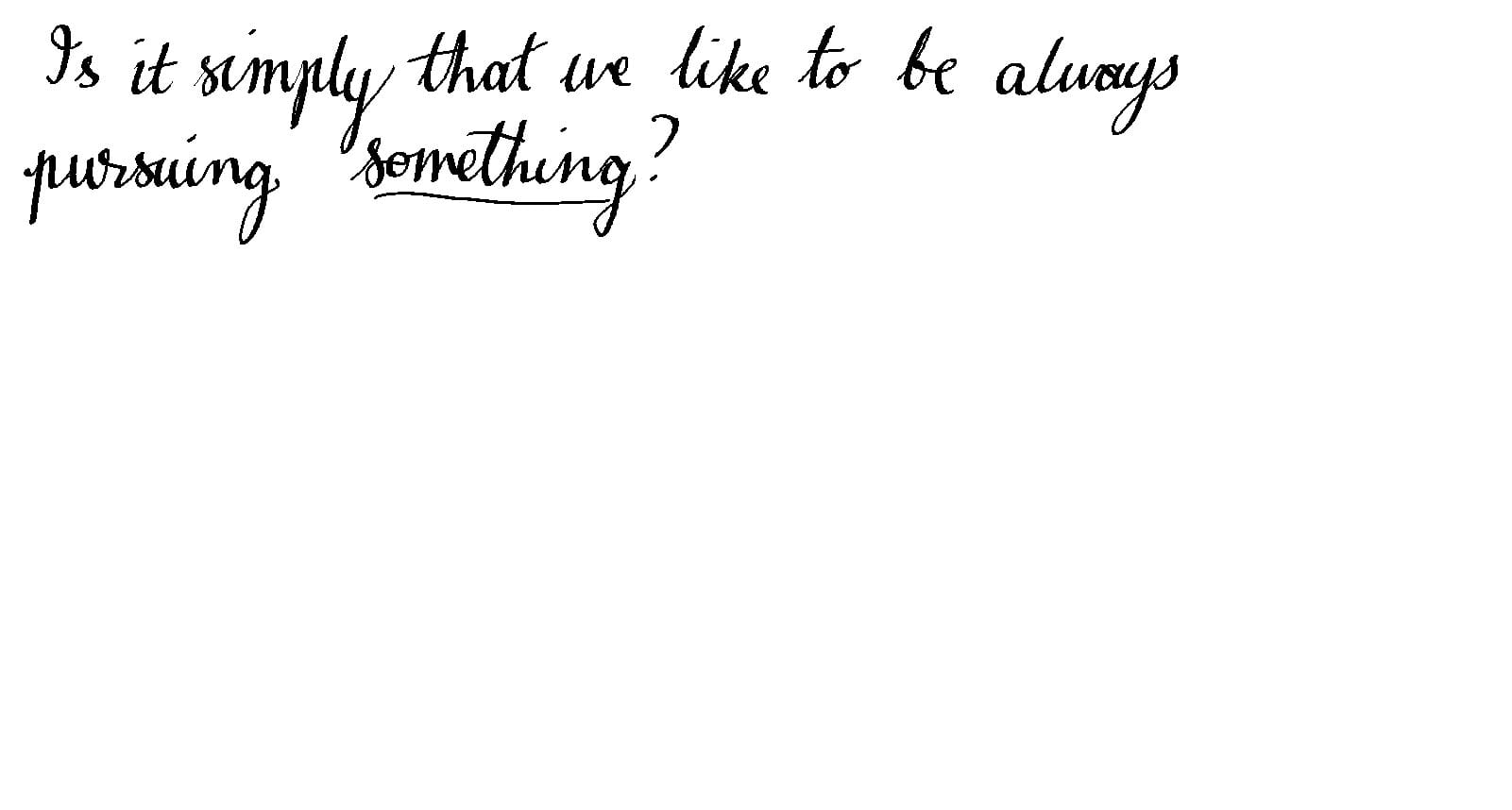
Harvard’s provost Paul Buck declared in the late 1940s that Harvard should reject the “sensitive, neurotic” type and the “intellectually over-stimulated” in favor of boys of the “healthy extrovert kind.” In 1950, Yale’s president, Alfred Whitney Griswold, declared that the ideal Yalie was not a “beetle-browed, highly specialized intellectual, but a well-rounded man.”
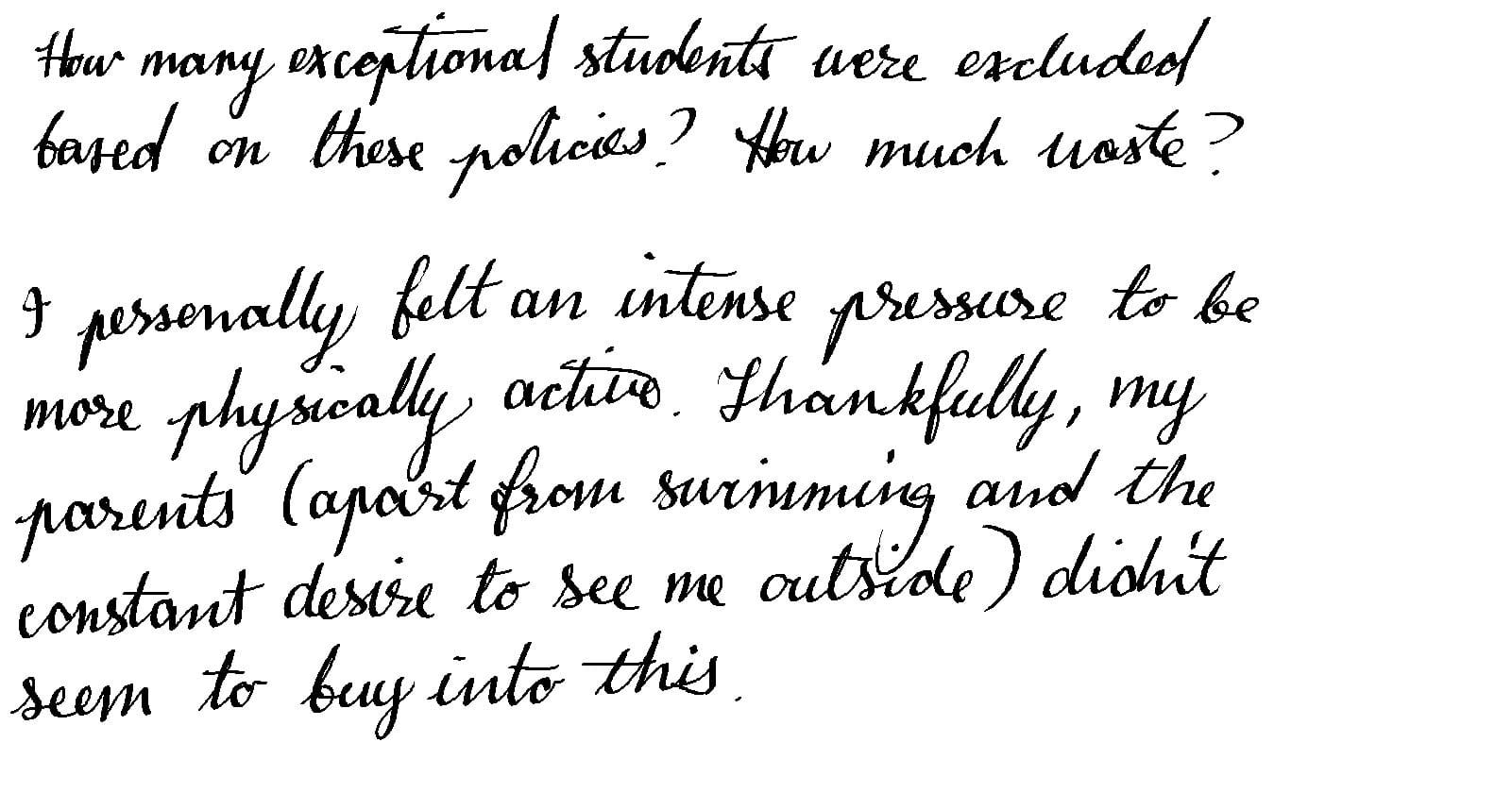
… by 1960 a third of all prescriptions from U.S. doctors were for Miltown or a similar drug called Equanil. “ANXIETY AND TENSION ARE THE COMMONPLACE OF THE AGE,” read the Equanil ad. The 1960s tranquilizer Serentil followed with an ad campaign even more direct in its appeal to improve social performance. “FOR THE ANXIETY THAT COMES FROM NOT FITTING IN,” it empathized.
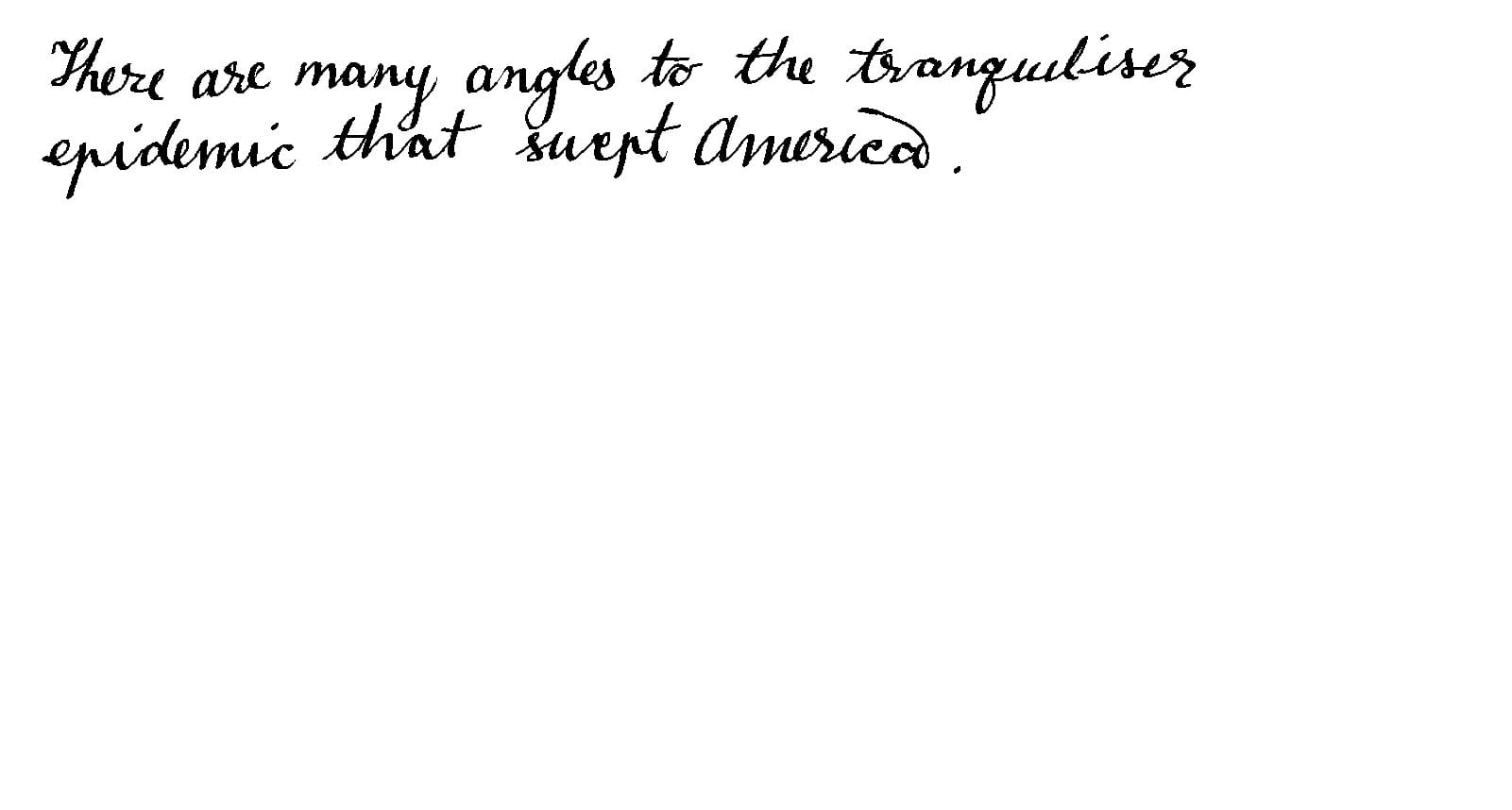
It makes sense, say these researchers, that world travelers were more extroverted than those who stayed home—and that they passed on their traits to their children and their children’s children.
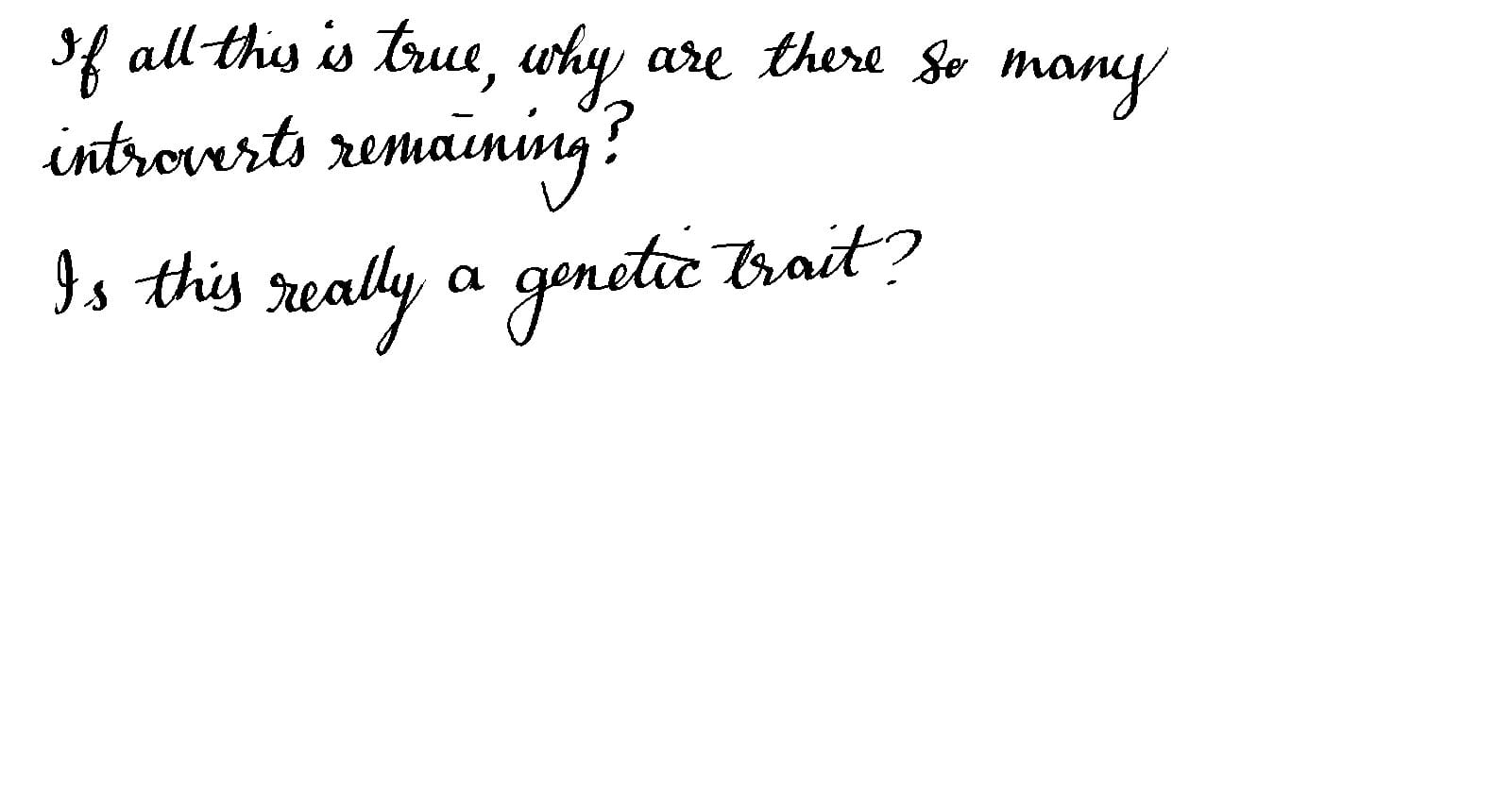
But the rise of the Culture of Personality intensified such biases, and applied them not only to political and religious leaders, but also to regular people.
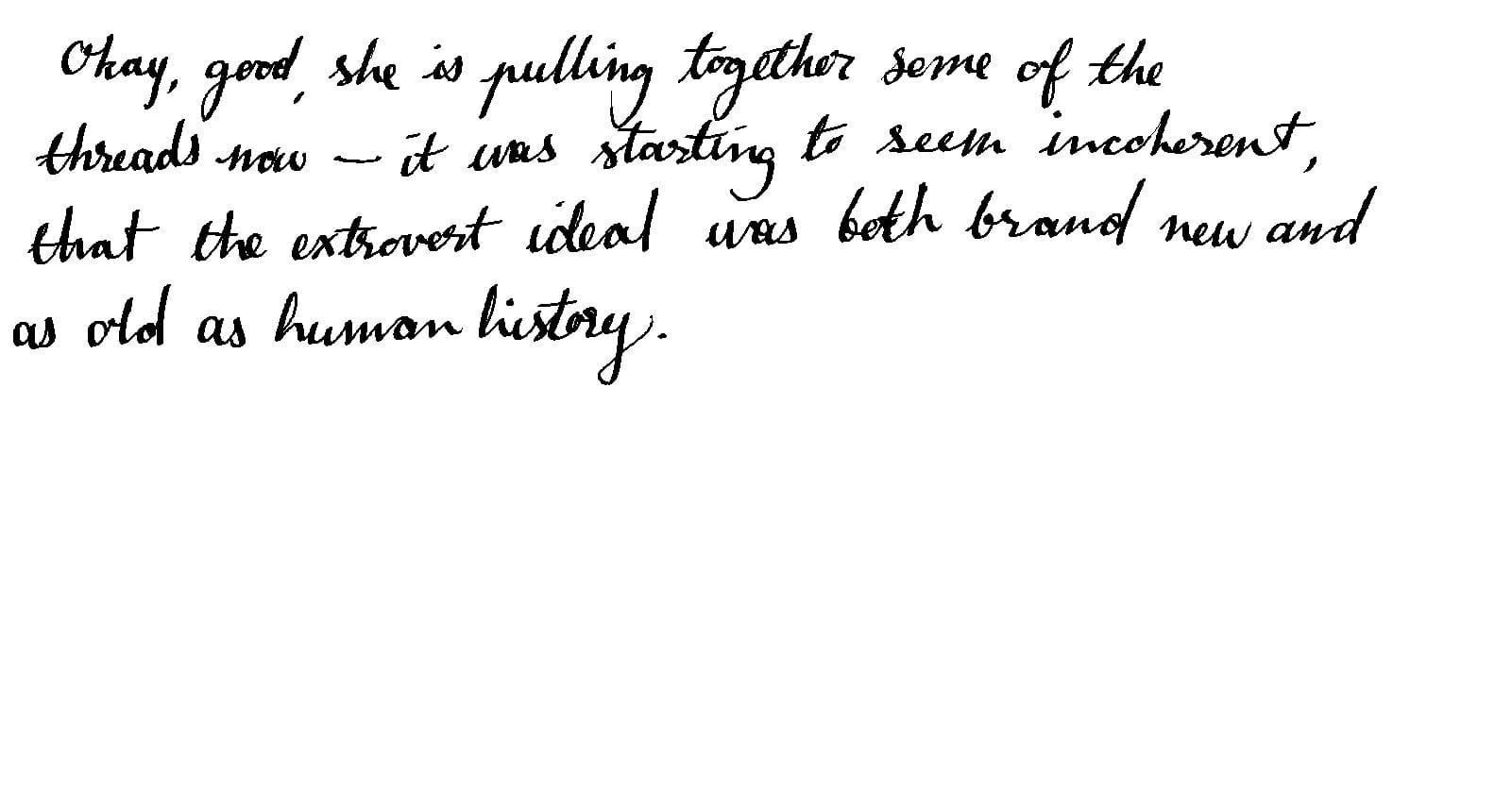
Toastmasters, the nonprofit organization established in 1924 whose members meet weekly to practice public speaking and whose founder declared that “all talking is selling and all selling involves talking,” is still thriving, with more than 12,500 chapters in 113 countries.
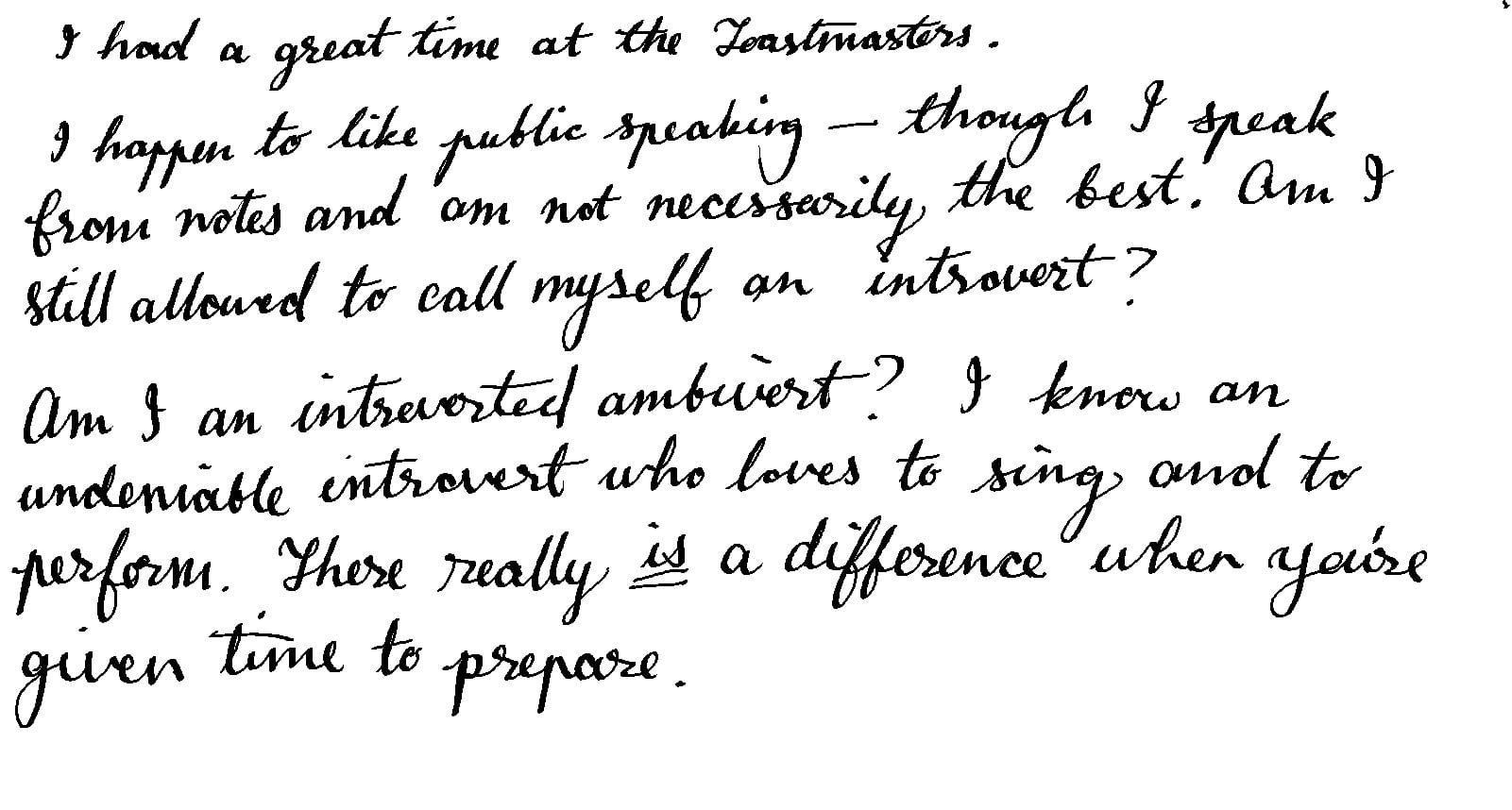
Dale’s parents had high moral standards; they wanted their son to pursue a career in religion or education, not sales. It seems unlikely that they would have approved of a self-improvement technique called “Truth or Lie.” Or, for that matter, of Carnegie’s best-selling advice on how to get people to admire you and do your bidding. How to Win Friends and Influence People is full of chapter titles like “Making People Glad to Do What You Want” and “How to Make People Like You Instantly.”
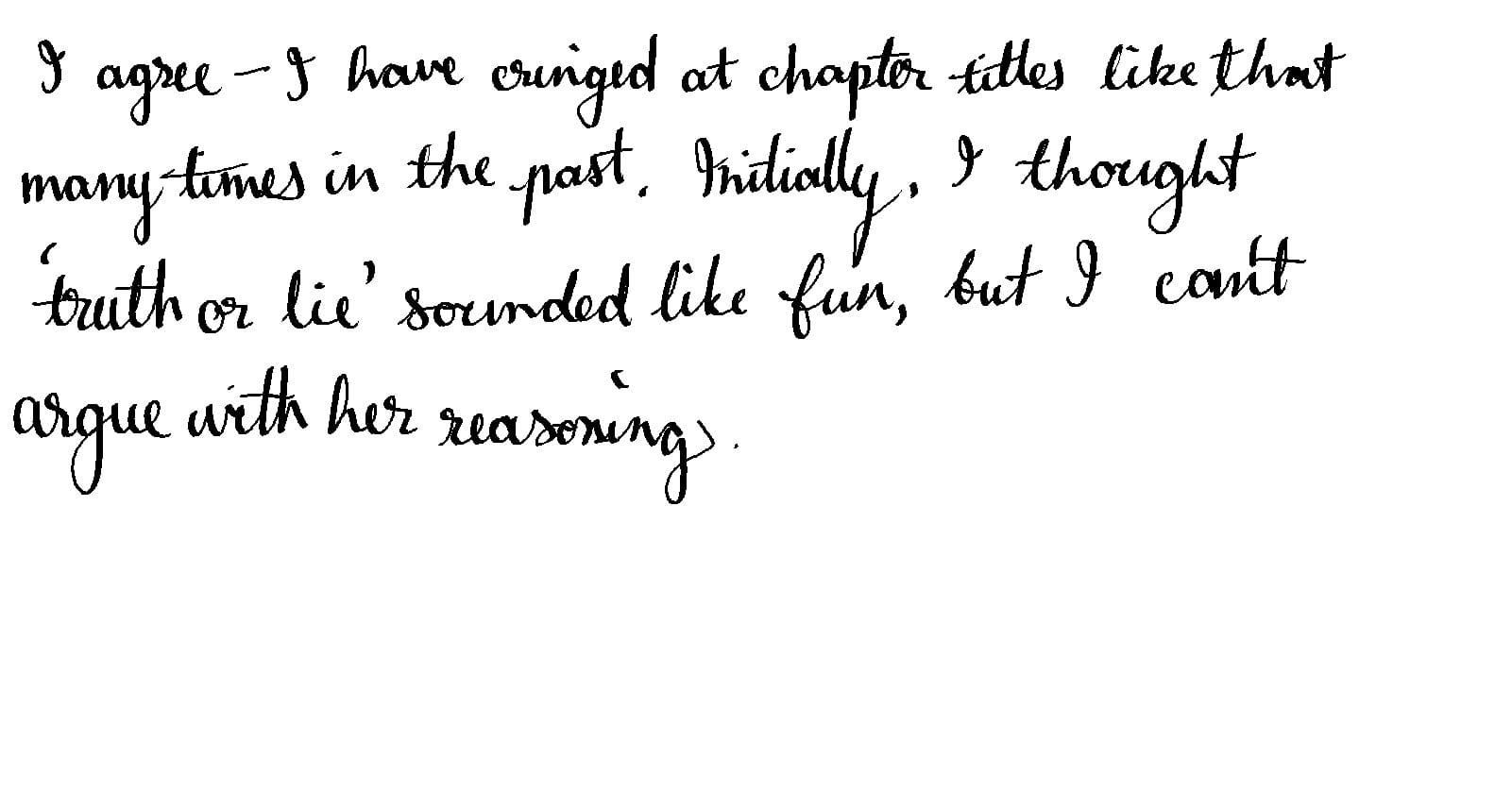
Chapter 2: The Myth of Charismatic Leadership
The Culture of Personality, a Hundred Years Later
Salesmanship as a Virtue: Live with Tony Robbins
When I bought my ticket over the phone, the account rep advised me that the people in the front rows—where “you’re looking directly at Tony for sure” instead of relying on the Megatron—are generally “more successful in life.”
But there’s also this: throughout the seminar, he constantly tries to “upsell” us. He and his sales team use the UPW event, whose attendees have already paid a goodly sum, to market multi-day seminars with even more alluring names and stiffer price tags: Date with Destiny, about $ 5,000; Mastery University, about $ 10,000; and the Platinum Partnership, which, for a cool $ 45,000 a year, buys you and eleven other Platinum Partners the right to go on exotic vacations with Tony.
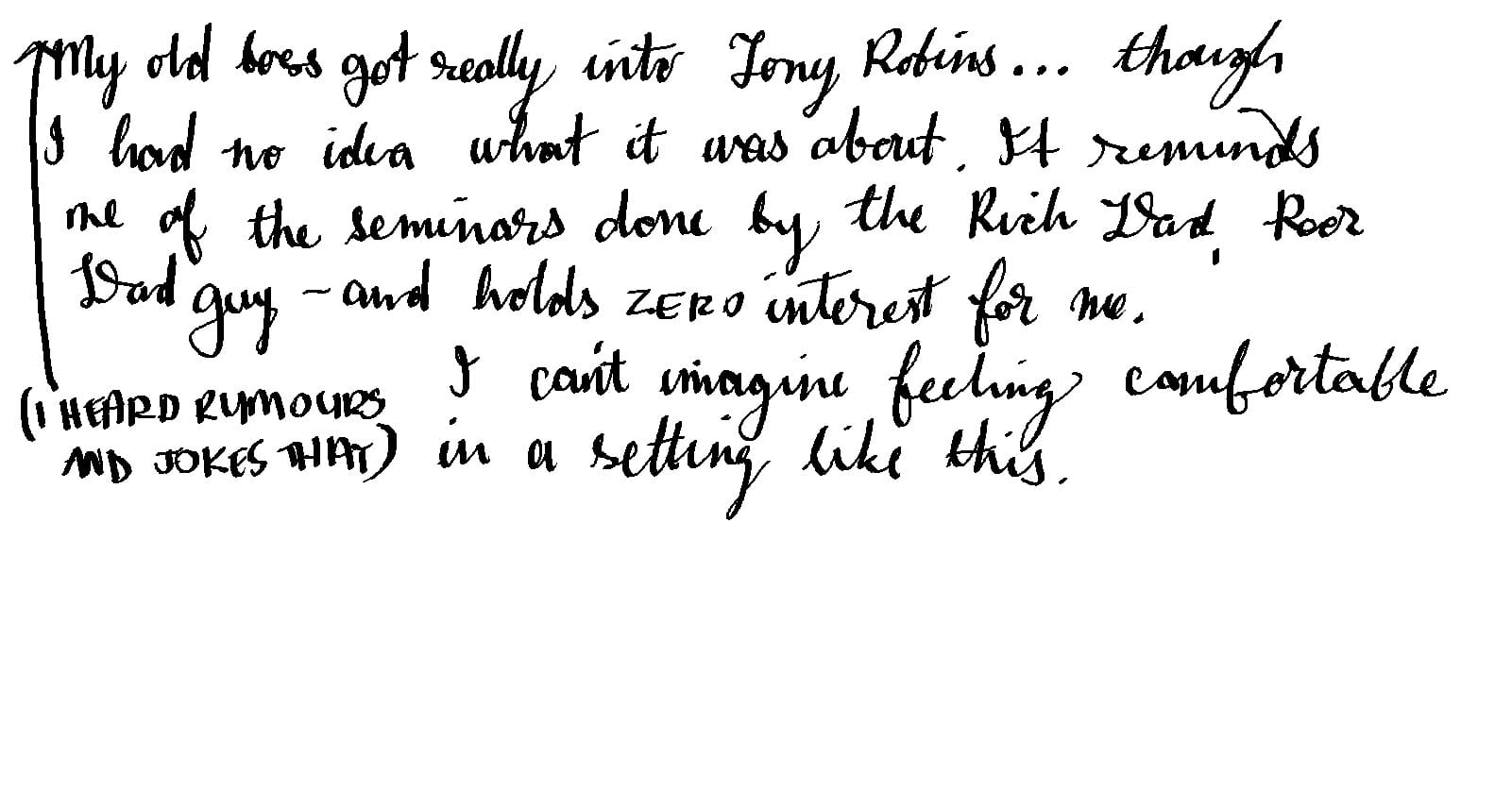
Between 2004 and 2006, 20 percent of the top three executives at the Fortune 500 companies were HBS grads.
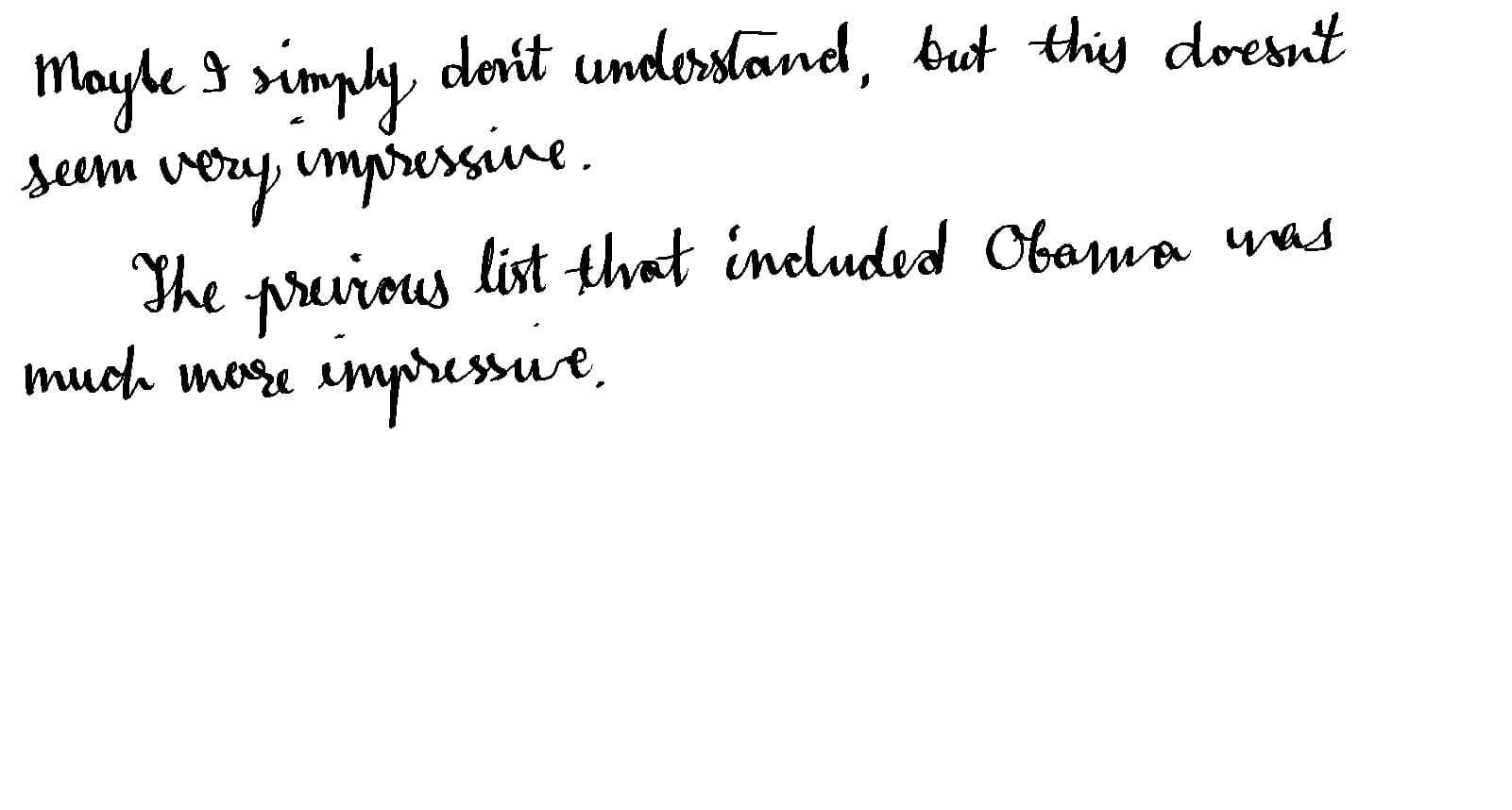
The teaching method plays with an age-old question: If you don’t have all the facts—and often you won’t—should you wait to act until you’ve collected as much data as possible? Or, by hesitating, do you risk losing others’ trust and your own momentum?
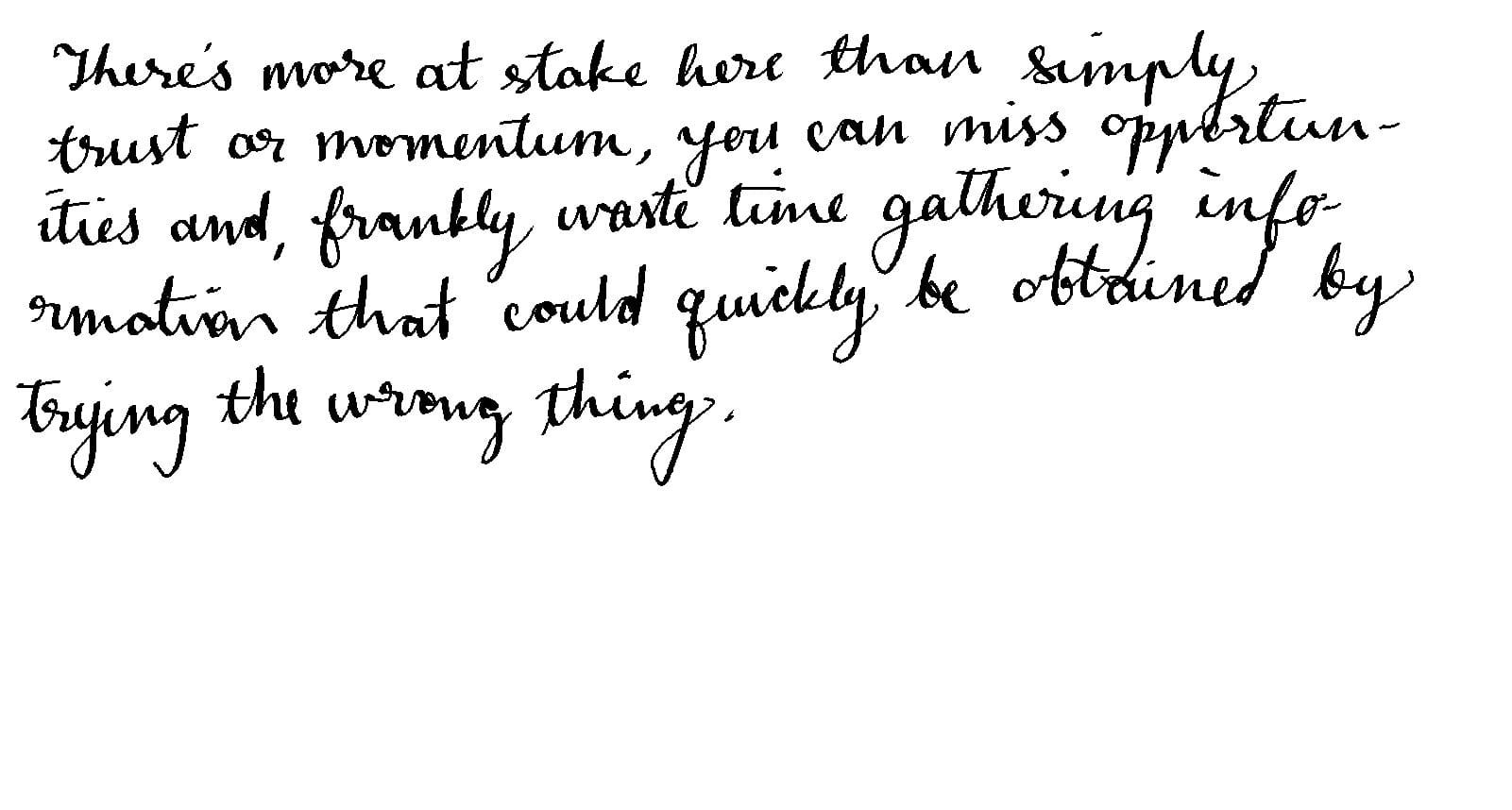
Half of the students’ grade, and a much larger percentage of their social status, is based on whether they throw themselves into this fray. If a student talks often and forcefully, then he’s a player; if he doesn’t, he’s on the margins.
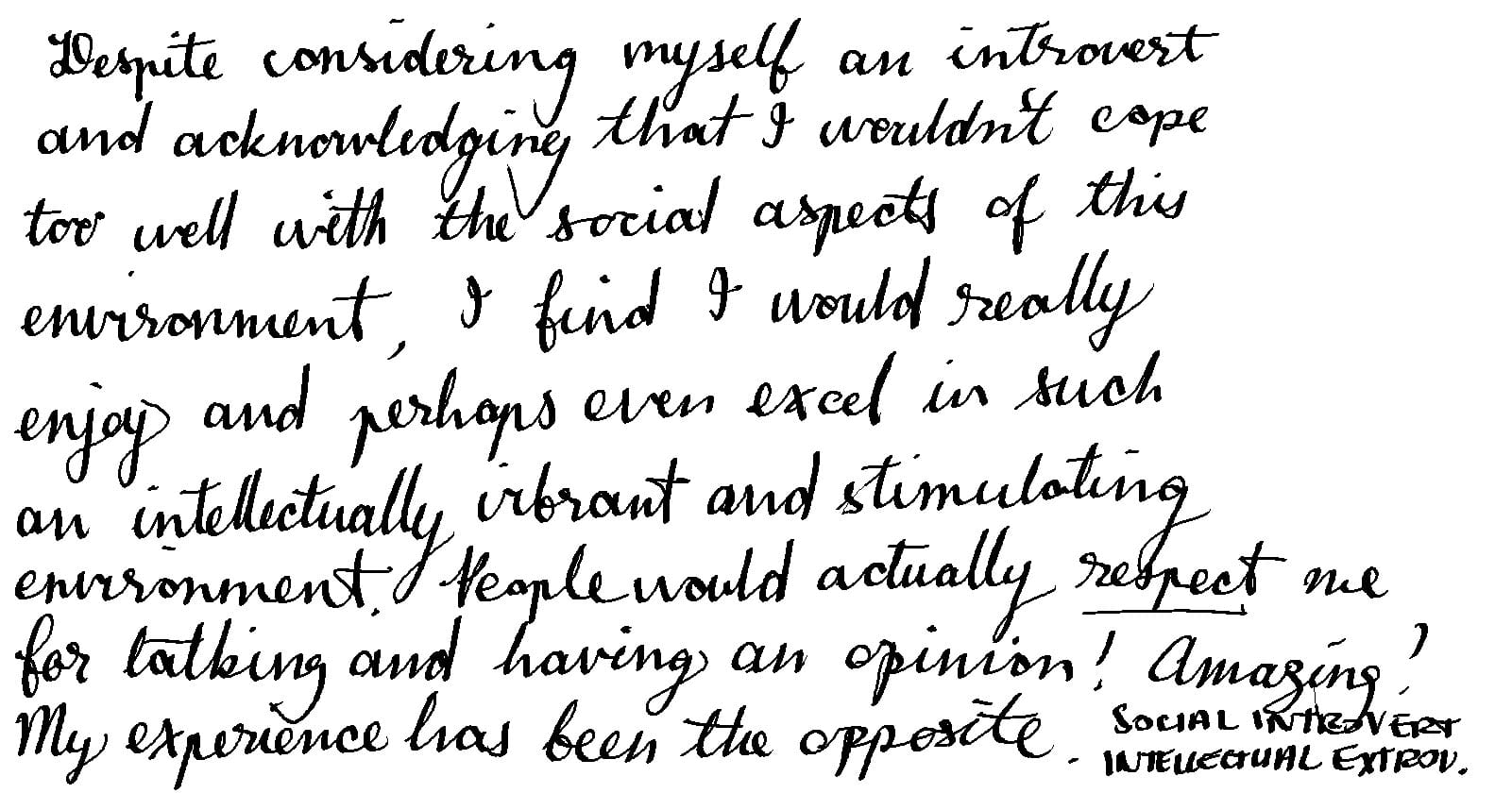
“If someone doesn’t speak by the end of the semester, it’s problematic,” Professor Michel Anteby told me. “It means I didn’t do a good job.”
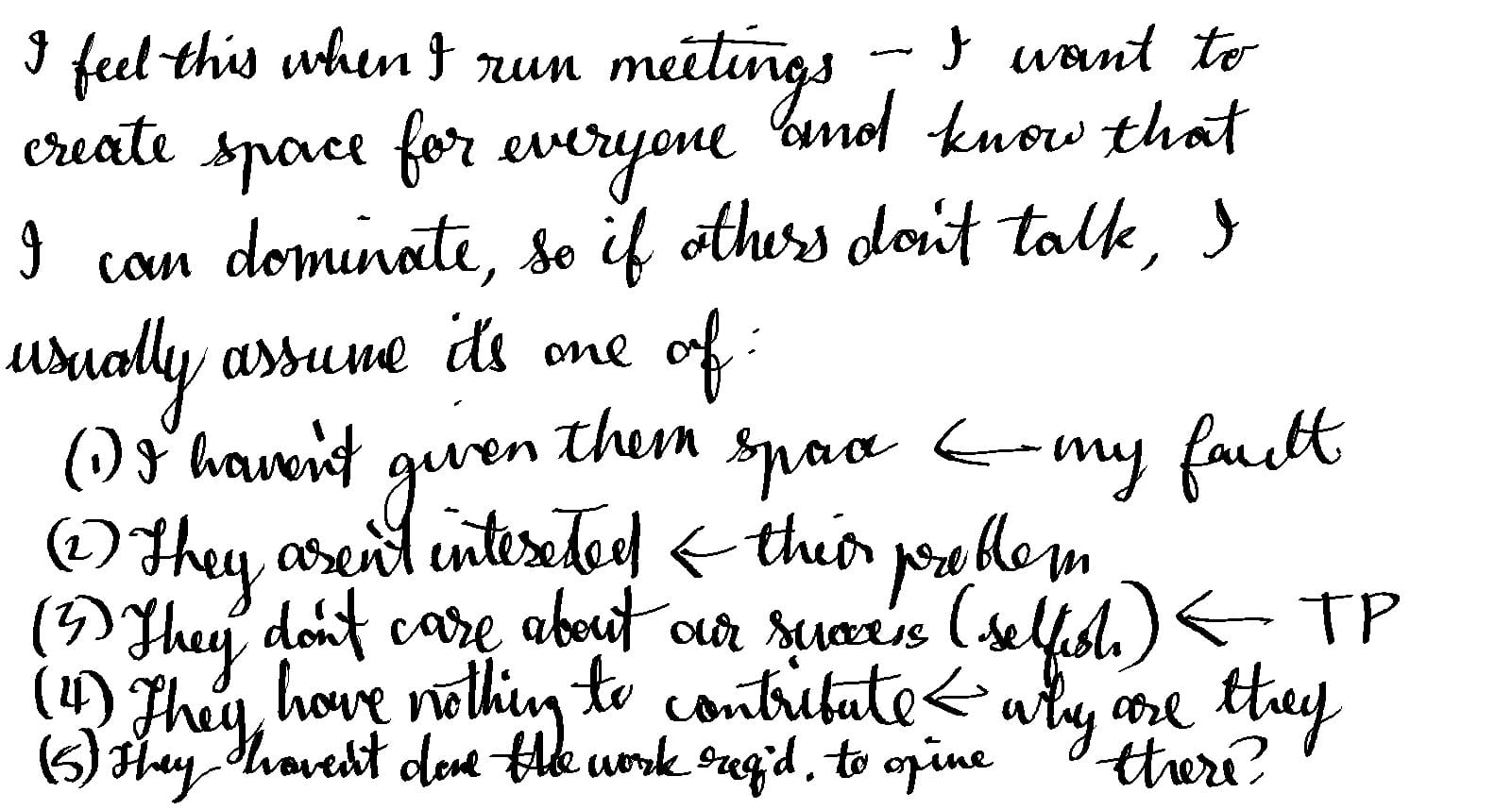
“If you’re preparing alone for class, then you’re doing it wrong. Nothing at HBS is intended to be done alone.”
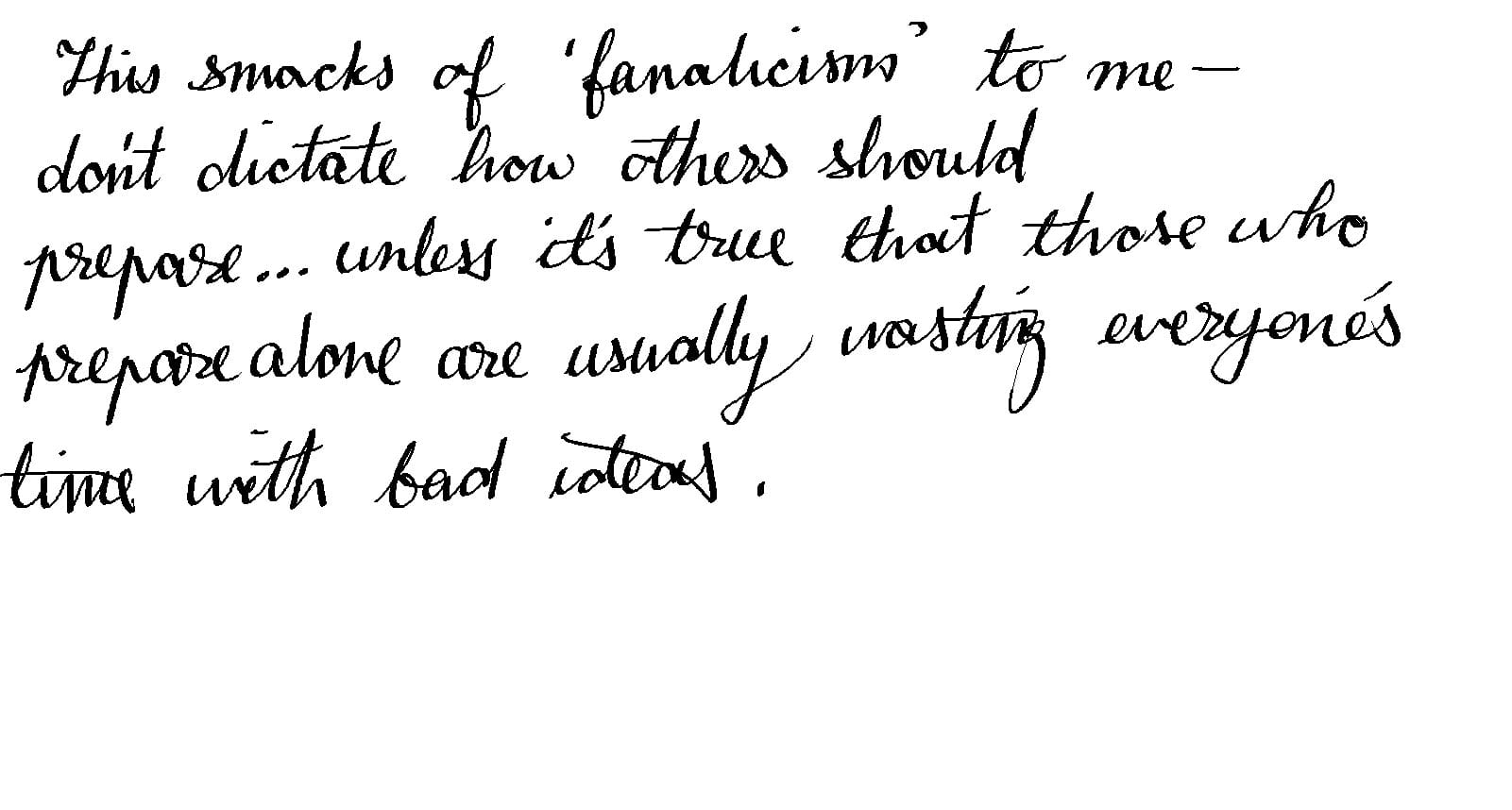
After class, most people eat lunch at the Spangler dining hall, which one grad describes as “more like high school than high school.”
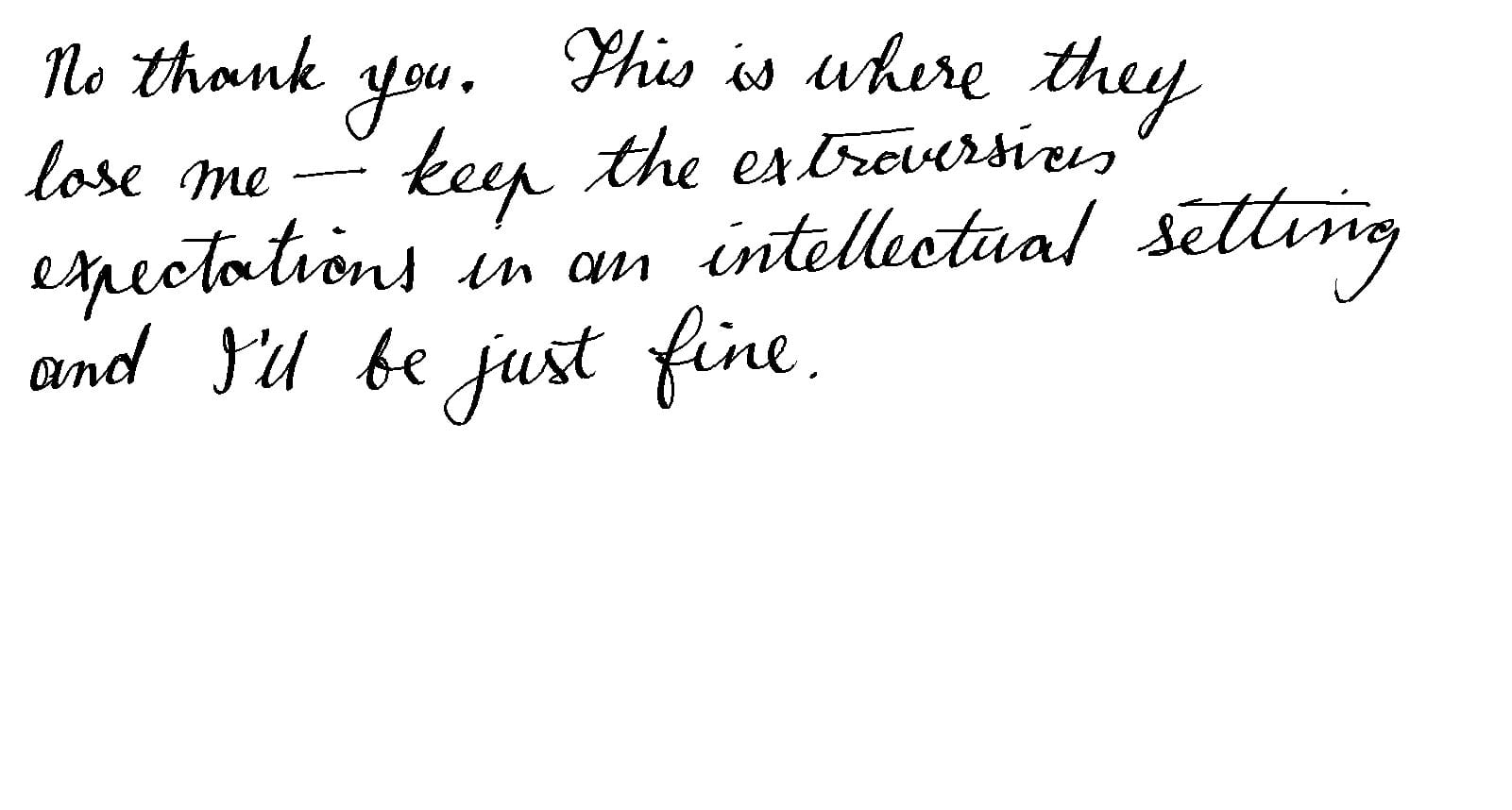
In China there was more emphasis on listening, on asking questions rather than holding forth, on putting others’ needs first. In the United States, he feels, conversation is about how effective you are at turning your experiences into stories, whereas a Chinese person might be concerned with taking up too much of the other person’s time with inconsequential information.
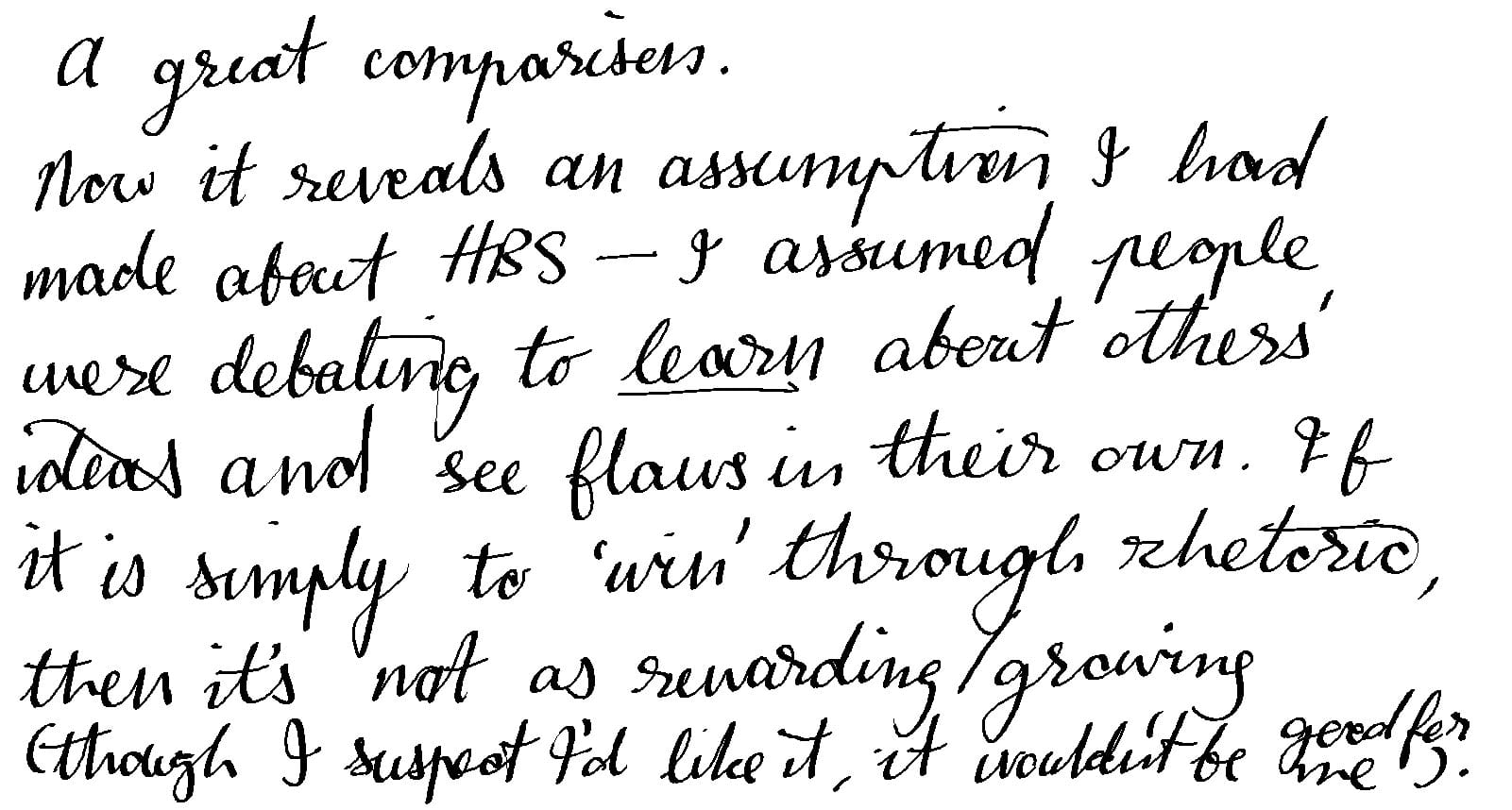
Unless they’re self-employed or able to telecommute, many adults work in offices where they must take care to glide down the corridors greeting their colleagues warmly and confidently.
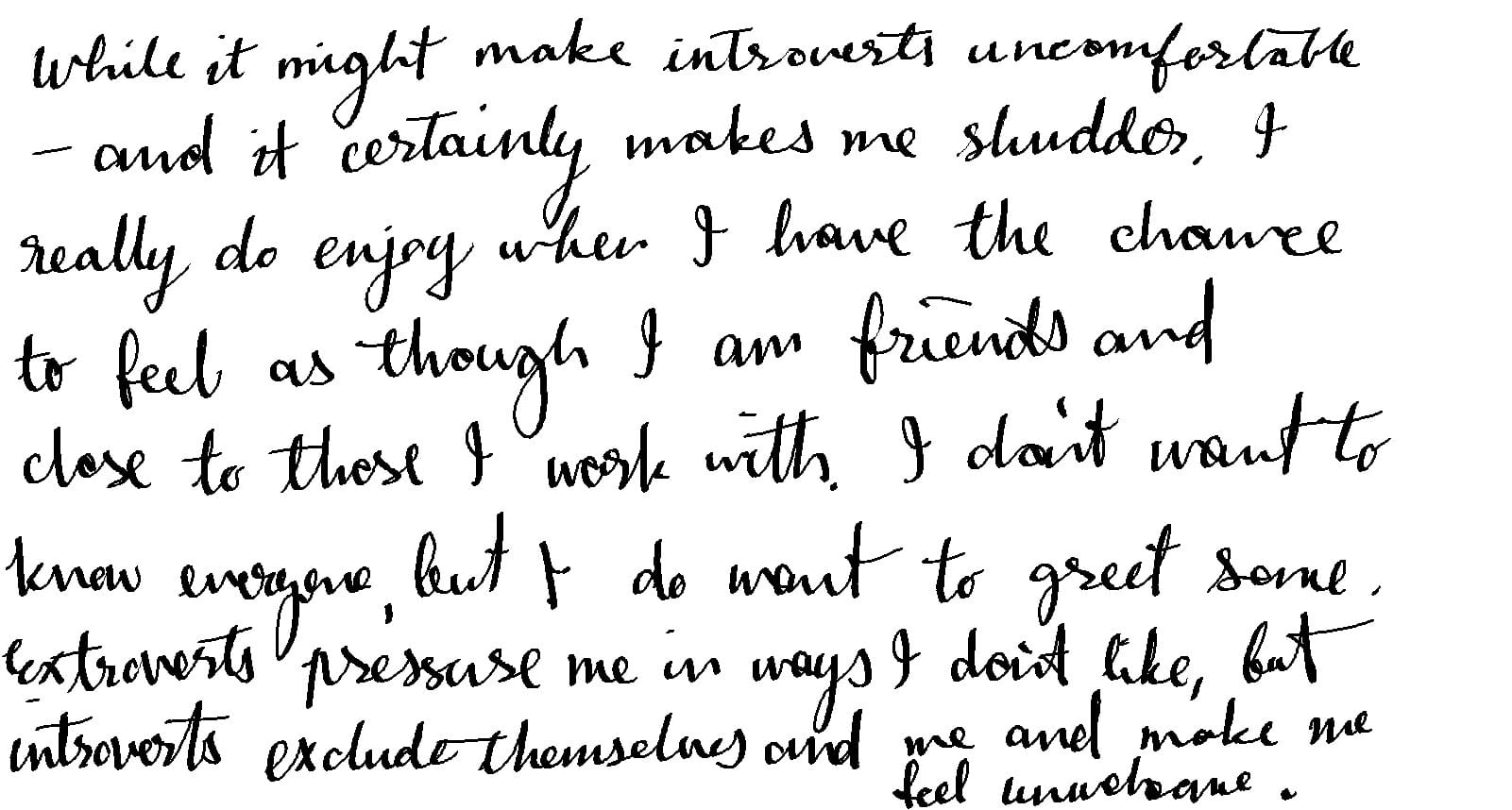
“We want to attract creative people,” the director of human resources at a major media company told me. When I asked what she meant by “creative,” she answered without missing a beat. “You have to be outgoing, fun, and jazzed up to work here.”
If we assume that quiet and loud people have roughly the same number of good (and bad) ideas, then we should worry if the louder and more forceful people always carry the day. This would mean that an awful lot of bad ideas prevail while good ones get squashed.
A well-known study out of UC Berkeley by organizational behavior professor Philip Tetlock found that television pundits—that is, people who earn their livings by holding forth confidently on the basis of limited information—make worse predictions about political and economic trends than they would by random chance.
“I worry that there are people who are put in positions of authority because they’re good talkers, but they don’t have good ideas,” he said. “It’s so easy to confuse schmoozing ability with talent. Someone seems like a good presenter, easy to get along with, and those traits are rewarded. Well, why is that? They’re valuable traits, but we put too much of a premium on presenting and not enough on substance and critical thinking.”
Agreed. I like that they admit these are valuable traits and agree that there are so many leaders out there who seem to have more pizzazz that substance.
He describes a software company called Rite-Solutions that successfully asks employees to share ideas through an online “idea market,” as a way of focusing on substance rather than style.
“Among the most effective leaders I have encountered and worked with in half a century,” the management guru Peter Drucker has written, “some locked themselves into their office and others were ultra-gregarious. Some were quick and impulsive, while others studied the situation and took forever to come to a decision.… The one and only personality trait the effective ones I have encountered did have in common was something they did not have: they had little or no ‘charisma’ and little use either for the term or what it signifies.”

Everyone said this was a huge mistake, and Wall Street downgraded Kimberly-Clark’s stock. But Smith, unmoved by the crowd, did what he thought was right. As a result, the company grew stronger and soon outpaced its rivals.
We tell these stories to support whatever point we are trying to make. No doubt introverted people can make good CEOs – I've seen it – but this example tells us nothing more than that it can happen. Especially if you get lucky with the right intuition. I'm sure that there are many stories where a leader has tried this and massively failed. I think that great leaders can be those who don't listen to industry pundits or to Wall Street – the conventional wisdom will rarely get you somewhere better than mediocre.
When he started his research, all he wanted to know was what characteristics made a company outperform its competition. He selected eleven standout companies to research in depth.
I haven't read Collins' book, but it seems to me that there is a bias at work here. I've thought this so often, especially in the popular non-fiction books that I read. What was Collins' methodology? Did he investigate how many failed companies also had these traits? Failed companies might be much harder to investigate because they often don't exist any more, but you should still try. This would be a good idea for a blog post. Pretty sure Taleb has written something good on this topic.
The lesson, says Collins, is clear. We don’t need giant personalities to transform companies. We need leaders who build not their own egos but the institutions they run.
Agreed. And a good lesson to take away.
He gave subordinates input into key decisions, implementing the ideas that made sense, while making it clear that he had the final authority. He wasn’t concerned with getting credit or even with being in charge; he simply assigned work to those who could perform it best.
This is much more valuable than any introversion or extroversion. The proposal would have to be that introverts do this more naturally, is that right?
Second, these studies were often based on people’s perceptions of who made a good leader, as opposed to actual results. And personal opinions are often a simple reflection of cultural bias.
Good point. However... there would be lots of really terrible leaders like the Wing Commander who don't have the intelligence or knowledge to spot good ideas, etc.
They discovered that the weekly profits of the stores managed by extroverts were 16 percent higher than the profits of those led by introverts—but only when the employees were passive types who tended to do their job without exercising initiative. Introverted leaders had the exact opposite results. When they worked with employees who actively tried to improve work procedures, their stores outperformed those led by extroverts by more than 14 percent.
This is a significant result. Leaders succeed or fail based on the people they've got. Extroverted leaders need to be really good themselves – they need to drive their own success. While introverted leaders can simply have good people, though you've either got to be good enough to know who is good (not a simple task at all) or just get lucky. You'd also have to drop the passive people or teach them to be less passive. Is there any correlation between passivity and introversion? Does an introvert leader work well when they have extroverted employees? Does an extrovert leader work well when they have introverted employees? Or are they not connected at all? I think that you don't have to be extroverted to work hard to improve things and to share your ideas, so most likely they are not related.
“I wonder if there’s a more efficient way to do this.” … The results were striking. The introverted leaders were 20 percent more likely to follow the suggestion—and their teams had 24 percent better results than the teams of the extroverted leaders. When the followers were not proactive, though—when they simply did as the leader instructed without suggesting their own shirt-folding methods—the teams led by extroverts outperformed those led by the introverts by 22 percent.
The thing here that comes back to my mind is about the followers' introversion or extroversion. It seems pretty dang extroverted to say to your leader that you might have a better way to do something, especially in a group like this where you haven't had any time to build up relationships and trust. Am I right? In which case, we need each other.
proactive employees who take advantage of opportunities in a fast-moving, 24/ 7 business environment, without waiting for a leader to tell them what to do, are increasingly vital to organizational success.
Agreed. And I love working with proactive team members. But what about when their ideas really are bad? If the team members have big egos, then it goes badly. As an introverted leader, it's hard to argue with someone with a big ego who so desperately wants to see their ideas get done. And they can be introverted or extroverted.
Extroverted leaders, on the other hand, “may wish to adopt a more reserved, quiet style,” Grant writes. They may want to learn to sit down so that others might stand up.
We tend to write Moses’ true personality out of the Exodus story. (Cecil B. DeMille’s classic, The Ten Commandments, portrays him as a swashbuckling figure who does all the talking, with no help from Aaron.) We don’t ask why God chose as his prophet a stutterer with a public speaking phobia. But we should. The book of Exodus is short on explication, but its stories suggest that introversion plays yin to the yang of extroversion; that the medium is not always the message; and that people followed Moses because his words were thoughtful, not because he spoke them well.
I like this. It means we need each other. Nobody can do it alone. In fact, I think that might be the overriding point of this whole chapter: introvert leaders need outspoken employees, and vice versa; Rosa Parks needed Martin Luther King, Jr. and vice versa; Moses needed Aaron and Aaron needed Moses. That is a beautiful picture of not one type vs another, but of us working together.
Yet Newmark also happens to be the founder and majority owner of Craigslist, the eponymous website that—well—connects people with each other.
But this is a totally different kind of connector than the other guy. The other guy's connections were based on personal relationships. Not to discount the power and value of Craigslist, but they're not the same.
Here’s one answer: social media has made new forms of leadership possible for scores of people who don’t fit the Harvard Business School mold.
Craigslist (and the Internet generally) allows people to lead who aren't extroverts. If that's the point (instead of Newmark, its founder, being the great connector), then I am on board.
Studies have shown that, indeed, introverts are more likely than extroverts to express intimate facts about themselves online that their family and friends would be surprised to read, to say that they can express the “real me” online, and to spend more time in certain kinds of online discussions.
Interesting. This is another point in the camp of me not being an introvert. I'd much prefer to share these details with someone close to me in a non-permanent way, that can't be written down or recorded, than to have it forever enshrined on the Internet where everyone can see it, even if nobody ever knows it was me, I would know, and I would feel exposed. There are some things I'm happy to share online, but they'd be the same things I would share publicly in person as well.
What would have happened if the Subarctic Survival Situation had been conducted online, with the benefit of all the voices in the room—the Rosa Parkses and the Craig Newmarks and the Darwin Smiths? What if it had been a group of proactive castaways led by an introvert with a gift for calmly encouraging them to contribute? What if there had been an introvert and an extrovert sharing the helm, like Rosa Parks and Martin Luther King Jr.? Might they have reached the right result?
I like this. Many founder stories consist of partnerships of introverts and extroverts. I also see that we are connecting introverts with the less outspoken, which I was considering earlier. Is the job of an extrovert to make sure others get their fair share of time? And the job of an introvert to make sure that they take up their fair share of time? I like that. It doesn't put one against the other, but accepts and values everybody. Also, I struggle with the introvert / extrovert labels again here. I'm an introvert who operates as an extrovert in the arena when he feels comfortable (and who often regrets it later).
Saddleback also has one more thing in common with Harvard Business School: its debt to—and propagation of—the Culture of Personality.
Agreed. Though I happen to respect and value Rick Warren along with his personality, as far as I know it anyway.
“The priest must be … an extrovert who enthusiastically engages members and newcomers, a team player,” reads an ad for a position as associate rector of a 1,400-member parish.
It's so obvious that there would be much more value than just greeting people that a pastor could bring.
A senior priest at another church confesses online that he has advised parishes recruiting a new rector to ask what his or her Myers-Briggs score is. “If the first letter isn’t an ‘E’ [for extrovert],” he tells them, “think twice … I’m sure our Lord was [an extrovert].”
This is not good.
McHugh doesn’t fit this description. He discovered his introversion as a junior at Claremont McKenna College, when he realized he was getting up early in the morning just to savor time alone with a steaming cup of coffee.
A man after my own heart.
At first McHugh felt good about carving out more time for himself. But then he got active in evangelicalism and began to feel guilty about all that solitude. He even believed that God disapproved of his choices and, by extension, of him.
Been there.
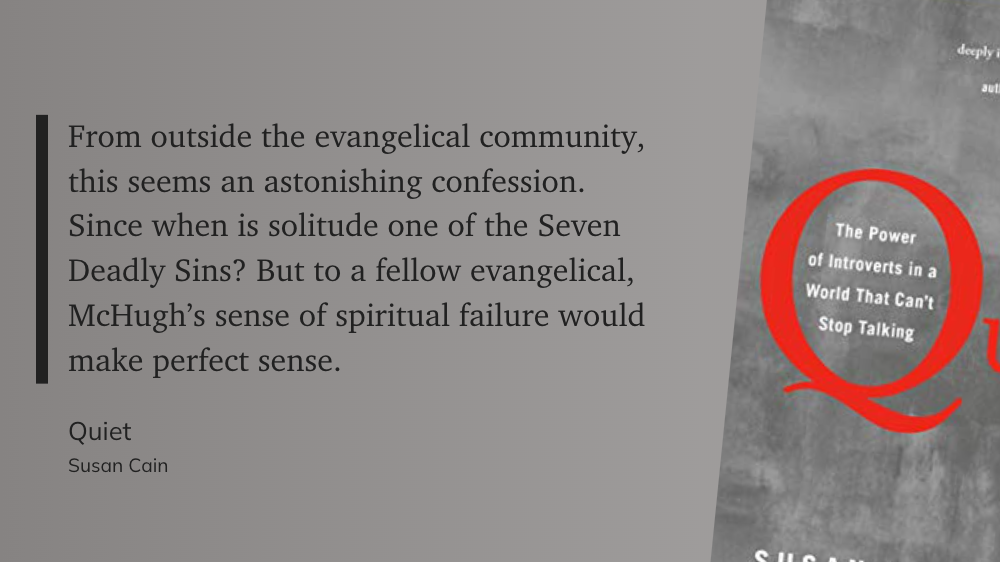
In fact, solitude is a beautiful spiritual practice of Jesus (and many other Christians). My church is currently doing a series over four months on silence and solitude. It's one of the keys to a faithful Christian life, I believe. I had forgotten what it was like to be part of a church like this and I'm so thankful I no longer am.
They focused on one-on-one and small group interactions rather than on large groups, and McHugh helped the students find rhythms in their lives that allowed them to claim the solitude they needed and enjoyed, and to have social energy left over for leading others. He urged them to find the courage to speak up and take risks in meeting new people.
I think this is a great path. Introverts have value to bring to others and some of my favourite introverts took the courage to reach out to me and establish connection (or to deepen connection when I reached out to them). Don't just hide away being silent in groups and never connecting with others, I think that's a selfish way of doing things. But also don't feel even a little guilty about taking the time you need for yourself. It will yield dividends. God will use it.
One blogger wrote about his “cry from the heart wondering how to fit in as an introvert in a church that prides itself on extroverted evangelism. There are probably quite a few [of you] out there who are put on guilt trips each time [you] get a personal evangelism push at church. There’s a place in God’s kingdom for sensitive, reflective types. It’s not easy to claim, but it’s there.”
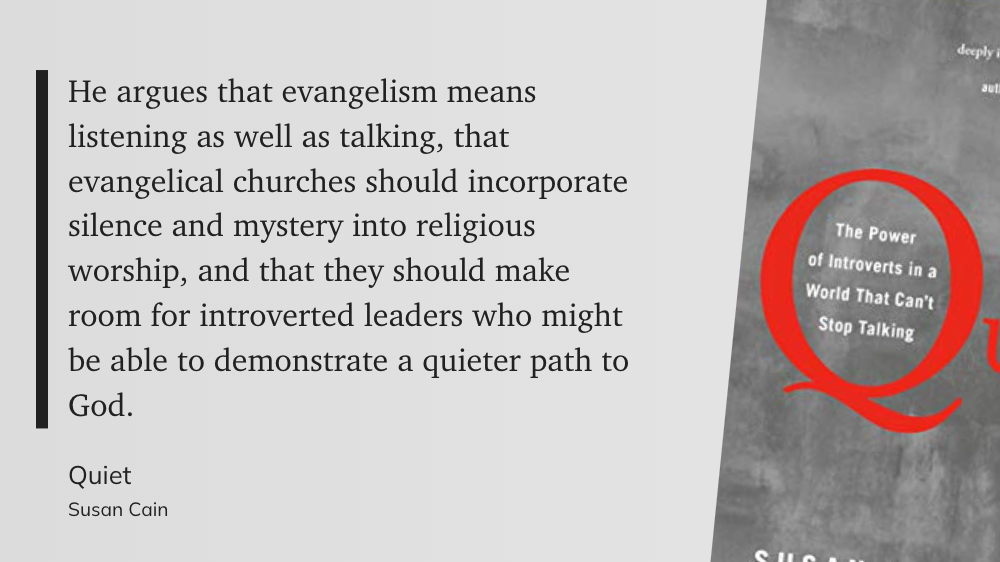
Agree. Agree. Agree.
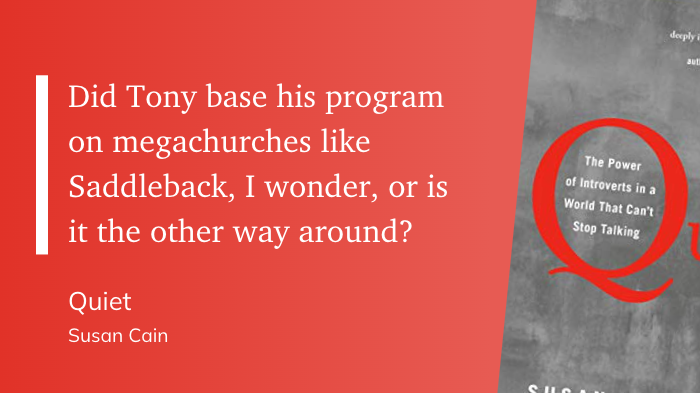
A poignant observation.
Like Tony Robbins, Pastor Warren seems truly well-meaning; he’s created this vast Saddleback ecosystem out of nothing, and he’s done good works around the world. But at the same time I can see how hard it must be, inside this world of Luau worship and Jumbotron prayer, for Saddleback’s introverts to feel good about themselves.
I don't want to see Warren and Robbins as the same. I hope they're not. One is about building churches to spread a message of hope and the idea that there is something greater than ourselves (that I happen to agree with) and the other is about spreading a message of success and power and the all-importance of the individual, at least that's how I see it.
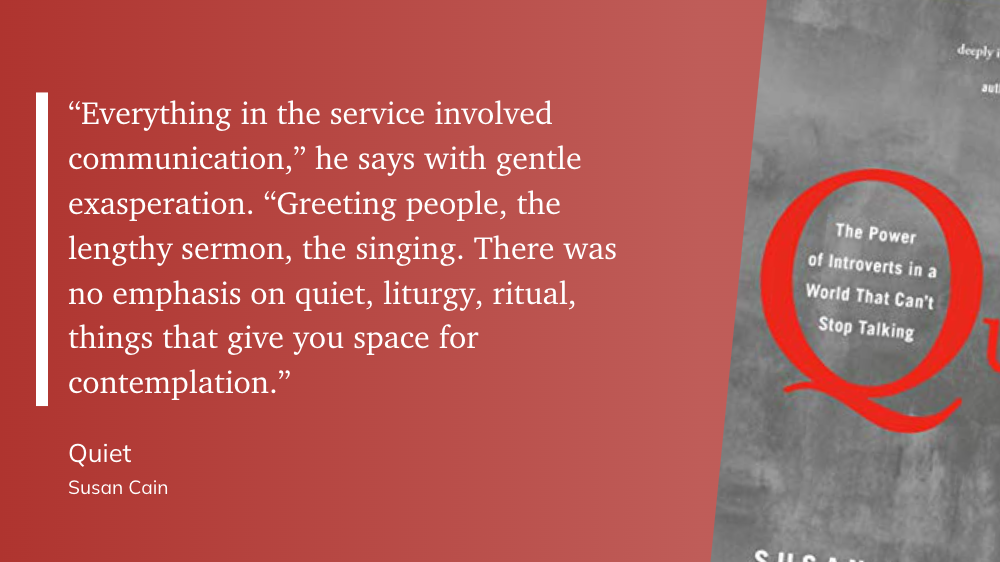
Another deep and valuable insight. I love liturgy. I love how it frees us from having to perform or create or present. It's a pure joy to be in a church sharing moments of contemplation and spiritual communion. I am not a member of a megachurch and I've been at churches like this, I value what they offer, I do, but I see that God and the Christian life has so much more to offer. For me, I'm part of a church that is a bit of a mix, I wish we had more liturgy and times for reflection where we didn't have to create or generate the content ourselves, and maybe one day we'll get there. For now, I can do this alone, but I love when I get to do it with others.
At a place like Saddleback, you can start questioning your own experience of God. Is it really as strong as that of other people who look the part of the devout believer?”
If you don’t love Jesus out loud, then it must not be real love. It’s not enough to forge your own spiritual connection to the divine; it must be displayed publicly.
Righteous behavior is not so much the good we do behind closed doors when no one is there to praise us; it is what we “put out into the world.”
What a gross statement. Not what the author is saying but a commentary on evangelicalism. If true, it goes against Jesus' teaching.
Chapter 3: When Collaboration Kills Creativity
The Rise of the New Groupthink and the Power of Working Alone
You might conclude that people who hope to be innovative should work in highly social workplaces. And you might be wrong.
He’d arrive around 6: 30 a.m. and, alone in the early morning, read engineering magazines, study chip manuals, and prepare designs in his head. After work, he’d go home, make a quick spaghetti or TV dinner, then drive back to the office and work late into the night. He describes this period of quiet midnights and solitary sunrises as “the biggest high ever.”
I can see that. I've had some vaguely similar experiences about getting something done. But... when you're new or don't know what you're doing, you need other people. Doesn't that make it important to give back to others when you can? Certainly Woz has given back so much. And he couldn't do it alone either, he needed the outlets of others' creative work like the engineering manuals, he just didn't need to talk with them in real time. Is it not arrogant to say that you don't need the input from others to get something done? I've been in both positions and sometimes you might not think you need input from others, but if they're on the same wavelength and sufficiently skilled, that's almost always wrong... at least at my level. Perhaps at Woz's level, he didn't need anyone else. I think projects go in phases. But everyone admits that great things occur because you're standing on the shoulders of giants.
Intentionally so. In his memoir, he offers this advice to kids who aspire to great creativity: Most inventors and engineers I’ve met are like me—they’re shy and they live in their heads. They’re almost like artists. In fact, the very best of them are artists. And artists work best alone where they can control an invention’s design without a lot of other people designing it for marketing or some other committee. I don’t believe anything really revolutionary has been invented by committee. If you’re that rare engineer who’s an inventor and also an artist, I’m going to give you some advice that might be hard to take. That advice is: Work alone. You’re going to be best able to design revolutionary products and features if you’re working on your own. Not on a committee. Not on a team.
Perhaps he's right, though he admits it's rare.
One of the most interesting findings, echoed by later studies, was that the more creative people tended to be socially poised introverts. They were interpersonally skilled but “not of an especially sociable or participative temperament.” They described themselves as independent and individualistic. As teens, many had been shy and solitary.
introverts prefer to work independently, and solitude can be a catalyst to innovation.
I can believe this. It might not let you get the best work done. But if you know what you need to know about the topic, working on it alone will mean you're not tied down by what others think is the right answer. I've experienced that, it'll sound arrogant I fear, but essentially those meetings where you need everyone to stop talking so you can get your idea out. And of course, I've been in meetings where I was the one who needed to stop talking so that someone else's idea could get out.
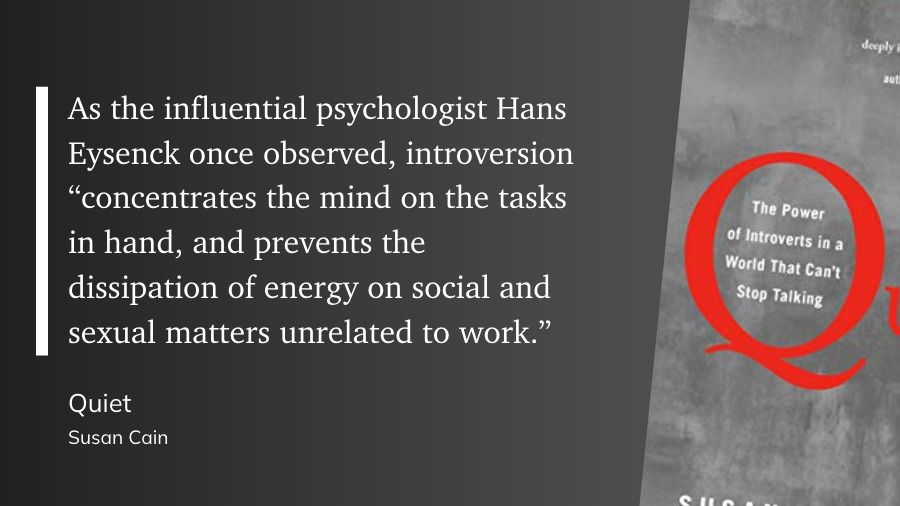
Why does it have to be an either-or? Why, if I'm with other people, can't we all be thinking about work? I don't think about sexual matters when I'm with my colleagues. Do others? I do think about the social aspects of things and, like any other introvert, find other people to be highly stimulating. It takes a lot of energy to be with others. But sometimes it's worth it. I can do great work alone, and I can do great work with others. Is there an element that the introverts described here don't want to allow others into their thought processes?
I'd say I'm about 70/30. If I get no feedback or collaboration, I tend to feel stifled and alone - depending on the project. If I get no time alone, then I tend not to make much progress. I prefer periods of working alone and then sharing with the group. I don't usually have the (what I view as arrogant) assumption that I could come up with the right answer alone and need nothing from others.
There aren't many things of value that I've done that I could do entirely without the help of others. When I do collaborate, I prefer to do it alongside others that I know and trust, people who are smart and interested in helping me along. I think of C. S. Lewis, J. R. R. Tolkien, and others, in the Inklings group.
This makes me think there might be a perfect combination of the two options: do your work alone, then come back to the group to present it, have it critiqued and enjoyed, and to enjoy the work of others.
If this is true—if solitude is an important key to creativity—then we might all want to develop a taste for it.
I'd say that both solitude and collaboration are important keys to creativity. Perhaps I'm ambiverted when it comes to intellectual collaboration, I believe that iron sharpens iron. I believe that things are better when you get to share them with the someone. Some of the most powerfully creative people have worked in close partnership with another.
The New Groupthink elevates teamwork above all else. It insists that creativity and intellectual achievement come from a gregarious place.
I have experienced this. While I wouldn't go so far as Cain (I do think great ideas and creativity can come from a group), I have seldom experienced randomly being put into a team to be a productive exercise. If I get to choose one or two collaborators, then I can be very successful, especially if I get the chance to do some pre-work – and they do it too.
By 2000 an estimated half of all U.S. organizations used teams, and today virtually all of them do,
Is there another way?
Today’s employees inhabit open office plans, in which no one has a room of his or her own,
I have always loved and wanted my own office. Somewhere where I had permission to close the door. Somewhere I could go to work and to think. I love working from home for this very reason. But, I still feel a need to collaborate.
The amount of space per employee shrank from 500 square feet in the 1970s to 200 square feet in 2010, according to Peter Miscovich, a managing director at the real estate brokerage firm Jones Lang LaSalle.
Surely this is at least in part because there are more than twice as many people in the world since then? Real estate is much more expensive.
“There has been a shift from ‘I’ to ‘we’ work,” Steelcase CEO James Hackett told Fast Company magazine in 2005.
My immediate reaction to this is that it's great. I'm sorry it leaves some people behind but at least we can try to shift away from the celebration of anti-social ego-driven people who think they're the only ones who matter. And by anti-social I don't necessarily mean they don't like socialising, I am talking about people who view themselves and their ideas and their work as all-important over and above valuing others.
In many elementary schools, the traditional rows of seats facing the teacher have been replaced with “pods” of four or more desks pushed together to facilitate countless group learning activities.
I wish this hadn't happened. It would be great for some, I'm sure, but I would not have thrived in such an environment.
In one fourth-grade classroom I visited, a big sign announced the “Rules for Group Work,” including, YOU CAN’T ASK A TEACHER FOR HELP UNLESS EVERYONE IN YOUR GROUP HAS THE SAME QUESTION.
Gross
“This style of teaching reflects the business community,” one fifth-grade teacher in a Manhattan public school told me, “where people’s respect for others is based on their verbal abilities, not their originality or insight.
Well there are problems on both sides of this. Originally is not something I think we should put up on a pedestal. It shouldn't be about their verbal abilities, either. Neither of these should win the day, the most effective solution should. Insight is valuable for this, originality is sometimes valuable, verbal skills are important but only if you have something worth saying.
This teacher was kind and well-intentioned, but I wonder whether students like the young safety officer would be better off if we appreciated that not everyone aspires to be a leader in the conventional sense of the word—that some people wish to fit harmoniously into the group, and others to be independent of it.
Agreed
These collective productions, exponentially greater than the sum of their parts, were so awe-inspiring that we came to revere the hive mind, the wisdom of crowds, the miracle of crowdsourcing. Collaboration became a sacred concept—the key multiplier for success.
As soon as Cain introduces the phrase ‘the hive mind’, I start to see the downsides.
Instead of distinguishing between online and in-person interaction, we used the lessons of one to inform our thinking about the other.
Agreed. One difference that comes to mind is that on the internet, people choose when to engage and when to disengage. You can take the time to think through your responses in a way that you can’t in person. If it’s true that many introverts prefer written to other types of communication, then the Internet is a lot more easy to navigate than in-person interactions.
“It’s a truism in tech that open source attracts introverts,” says Dave W. Smith, a consultant and software developer in Silicon Valley, referring to the practice of producing software by opening the source code to the online public and allowing anyone to copy, improve upon, and distribute it.
I’m surprised to learn this – it always seemed to me rather an extroverted thing to do to contribute to open-source software.

Despite my earlier misgivings, I agree.
But the two best groups spent most of their music-related time practicing in solitude: 24.3 hours a week, or 3.5 hours a day, for the best group, compared with only 9.3 hours a week, or 1.3 hours a day, for the worst group. The best violinists rated “practice alone” as the most important of all their music-related activities. Elite musicians—even those who perform in groups—describe practice sessions with their chamber group as “leisure” compared with solo practice, where the real work gets done.
Of course this is true. I’m not so sure that it proves any point one way or the other. When you are alone, you can spend as long as you like practicing that problem passage and nobody else will start to lose interest or get annoyed. Nevertheless, performers who didn’t at least enjoy performing in groups would not be likely to succeed, would they?

To see Deliberate Practice in action, we need look no further than the story of Stephen Wozniak … he built his expertise step by painstaking step. Because he entered countless science fairs.
Now this is another key element of success: don’t just do it _alone_, but do it somewhere where you will be judged, where you are forced to share your work, where there is an impetus to get better.
I have felt this when it comes to pretty much anything, if you’re not forced to share it with others, you won’t be able to properly focus your attention on improving it. Certainly this is true with most thinking tasks, if not musical performance.
He would never have learned so much about computers, Woz says now, if he hadn’t been too shy to leave the house.
I resonate with this. I haven’t done anything remarkable with my life, but what little I have achieved, I believe that it is at least partly because I wasn’t distracted by the normal socialising that took up so much time. Not by my own choice.
top performers overwhelmingly worked for companies that gave their workers the most privacy, personal space, control over their physical environments, and freedom from interruption.
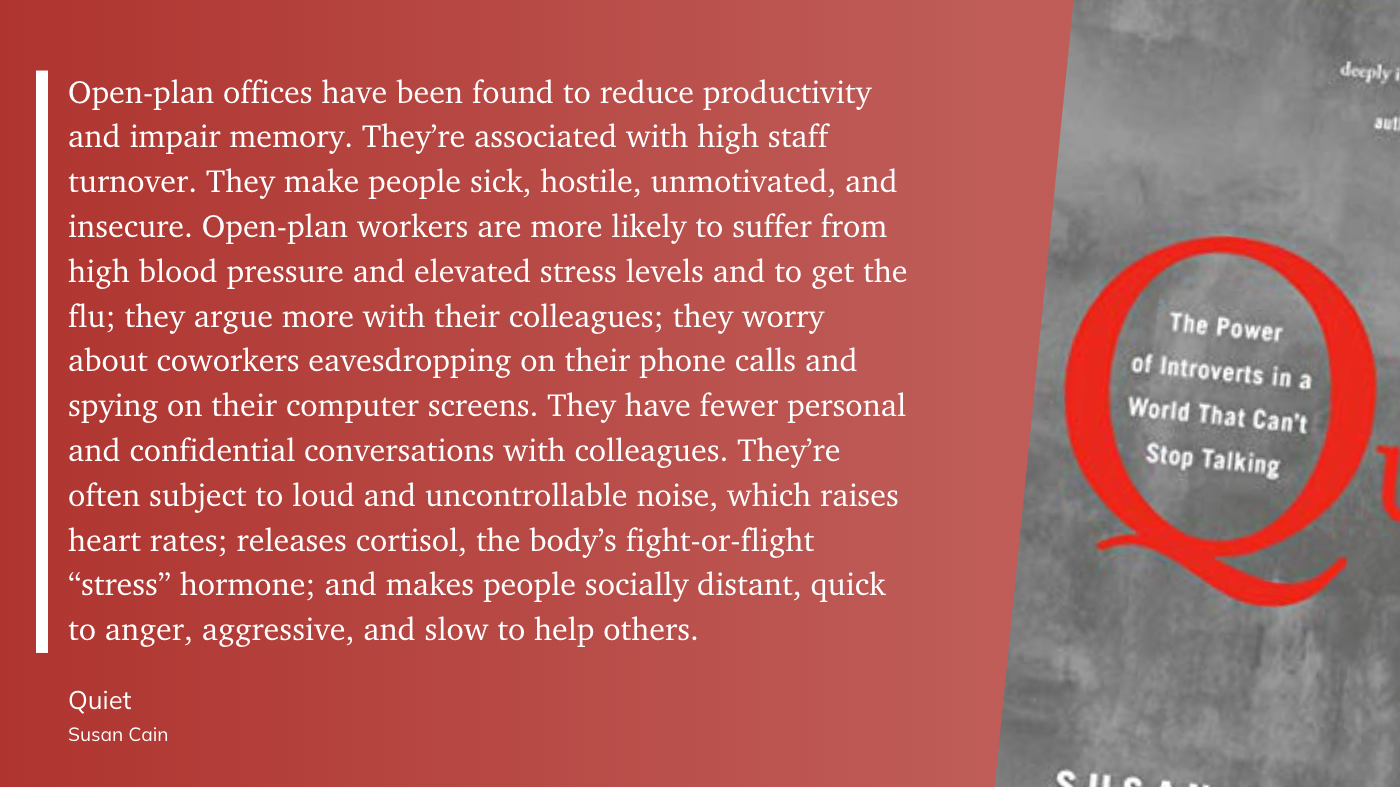
Mr. Osborn … wrote several books during the 1940s and 1950s … his employees were not creative enough. They had good ideas, Osborn believed, but were loath to share them for fear of their colleagues’ judgment … He invented the concept of brainstorming, a process in which group members generate ideas in a nonjudgmental atmosphere.
There’s only one problem with Osborn’s breakthrough idea: group brainstorming doesn’t actually work. … The results were unambiguous. The men in twenty-three of the twenty-four groups produced more ideas when they worked on their own than when they worked as a group. They also produced ideas of equal or higher quality when working individually.
One study – is that enough to convince us that brainstorming doesn’t work? It had pretty compelling results. Maybe for the sorts of questions that were being asked? I’ve experienced so many occasions where my idea sparked someone else or someone else’s idea sparked something in me that was better than what either of us would come up with alone. But I’ve also experienced being shut down and criticised and feeling very reluctant to participate. Depends on the people in the group maybe?
Studies have shown that performance gets worse as group size increases: groups of nine generate fewer and poorer ideas compared to groups of six, which do worse than groups of four.
I do believe this. Once you get above a critical mass (and if you have certain types of personalities in the group), you don’t get much of anything useful out of larger groups. I, certainly, prefer to be in a group of two to four when brainstorming or working on something, and even then, we can each go away to really dig into different parts of it and come back together again.
The one exception to this is online brainstorming. Groups brainstorming electronically, when properly managed, not only do better than individuals, research shows; the larger the group, the better it performs.
But we’re so impressed by the power of online collaboration that we’ve come to overvalue all group work at the expense of solo thought.
Indeed, after all these years of evidence that conventional brainstorming groups don’t work, they remain as popular as ever.
I can think of one reason that group brainstorming sessions _absolutely crushes_ individual work – people actually do it. At least most people actually do it. When it comes to voluntary organisations where you can’t force people to prepare in their own time or even workplaces where not doing a particular task could go unnoticed, if you run a group brainstorming session, you have people’s attention and they actually participate. I haven’t found a way to get people to participate, even at work, reliably, without actually having a meeting.
Psychologists usually offer three explanations for the failure of group brainstorming. The first is social loafing: in a group, some individuals tend to sit back and let others do the work.
💯 I’ve experienced this a lot.
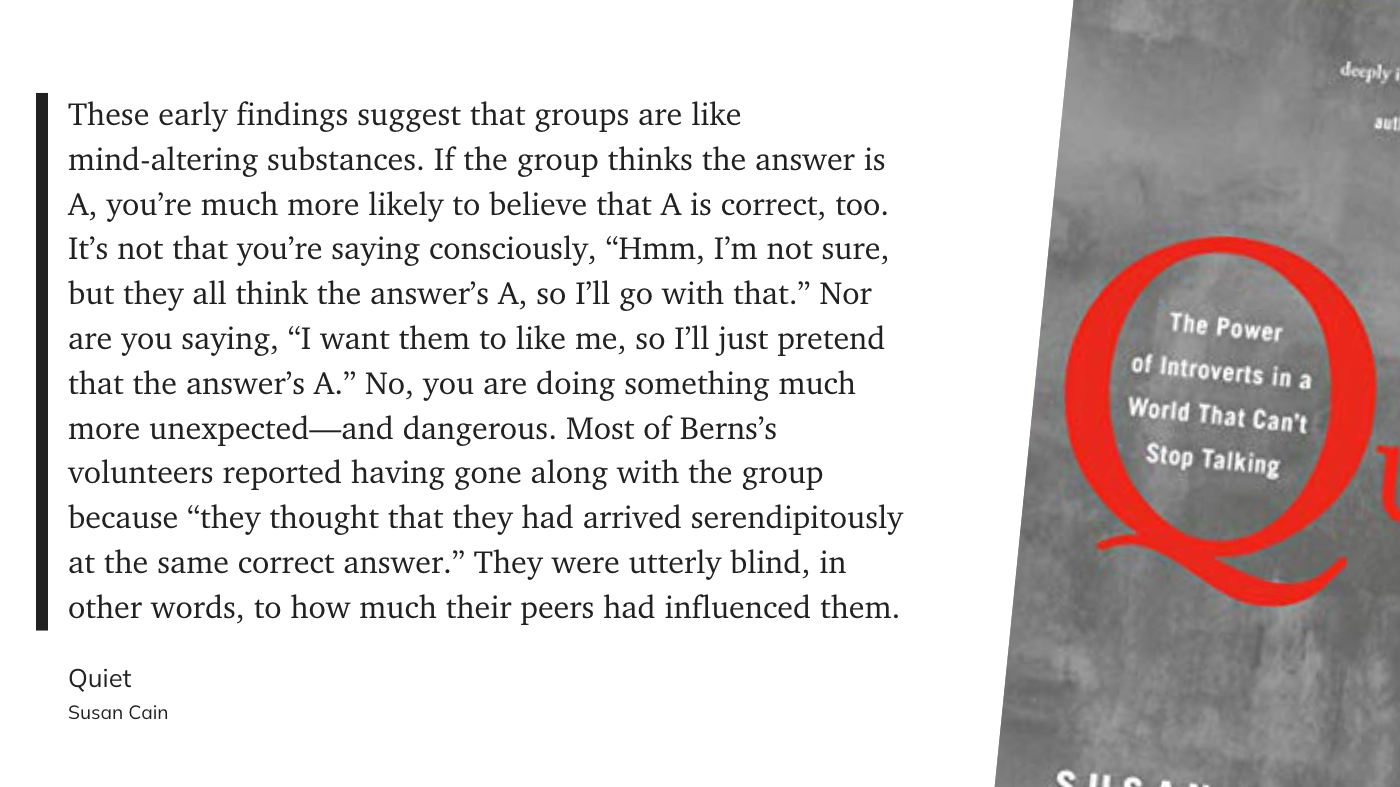

Wow. And definitely relates to what I’ve seen and experienced.
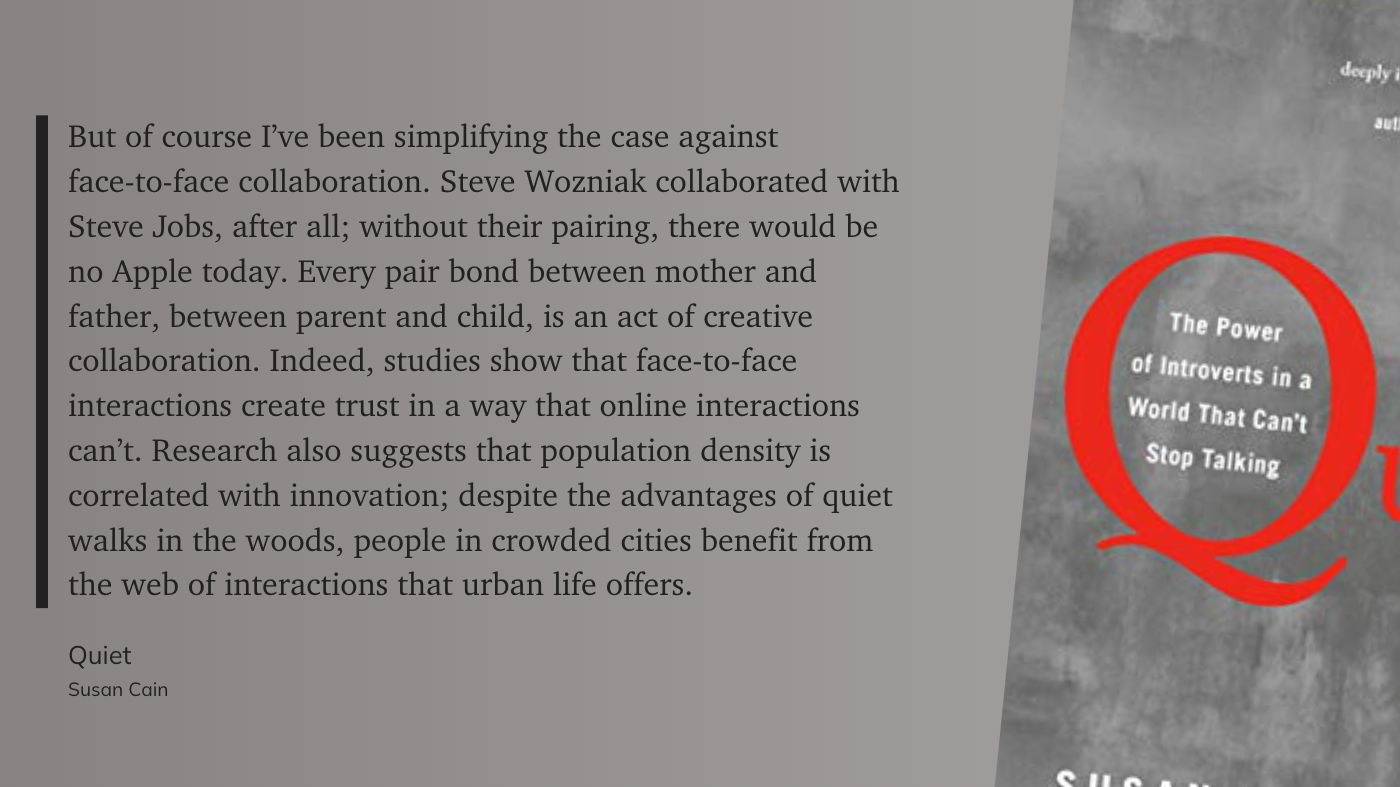
I have had the sense that things were being over-simplified. I’m glad Cain included this paragraph.
The way forward, I’m suggesting, is not to stop collaborating face-to-face, but to refine the way we do it.
The most effective teams are composed of a healthy mix of introverts and extroverts, studies show, and so are many leadership structures.
We also need to create settings in which people are free … to disappear into their private workspaces when they want to focus or simply be alone.
Part Two
Your Biology, Your Self
Chapter 4: Is Temperament Destiny?
Nature, Nurture, and the Orchid Hypothesis
In a startlingly counterintuitive hypothesis, Kagan predicted that it was the infants in the high-reactive group—the lusty arm-pumpers—who were most likely to grow into quiet teenagers.
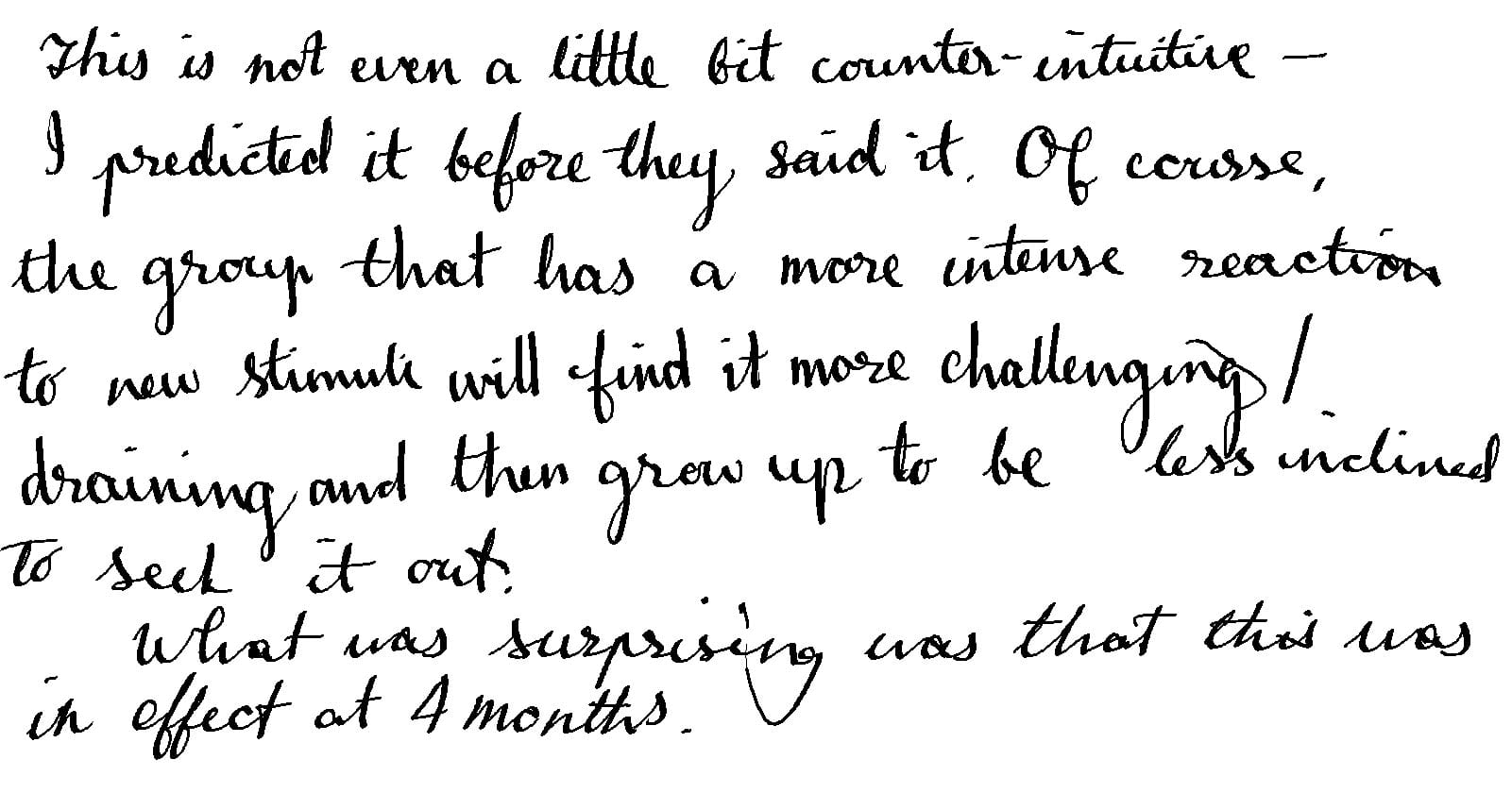
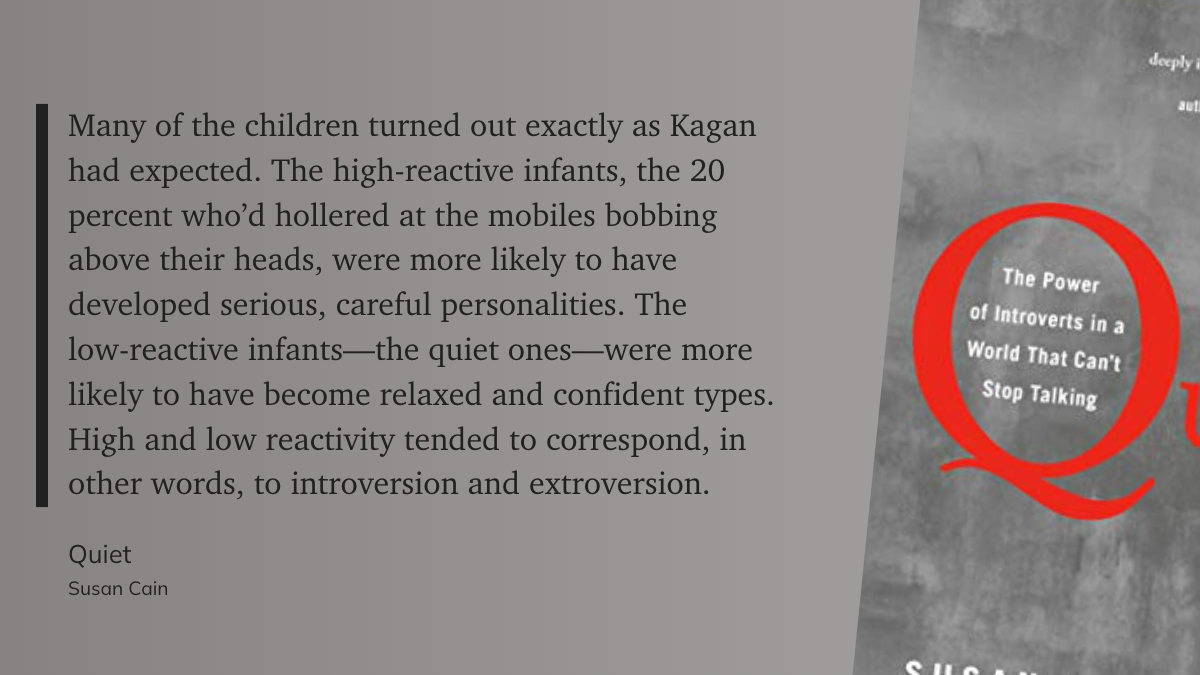
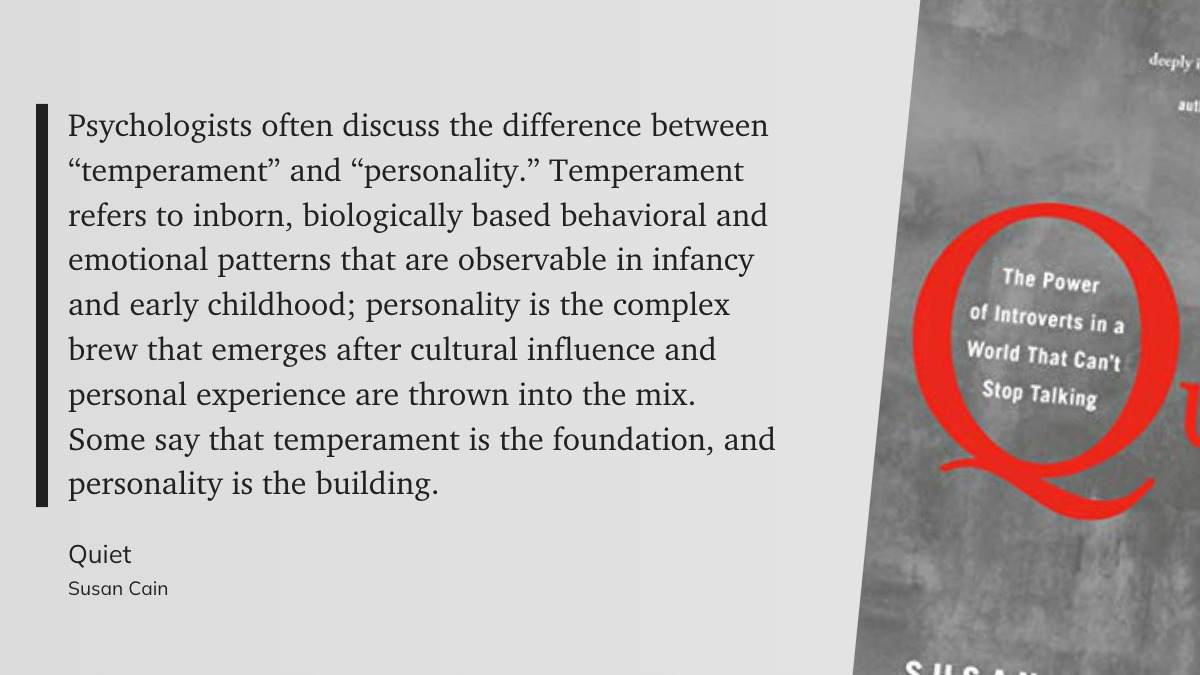
The more reactive a child’s amygdala, the higher his heart rate is likely to be, the more widely dilated his eyes, the tighter his vocal cords, the more cortisol (a stress hormone) in his saliva—the more jangled he’s likely to feel when he confronts something new and stimulating.
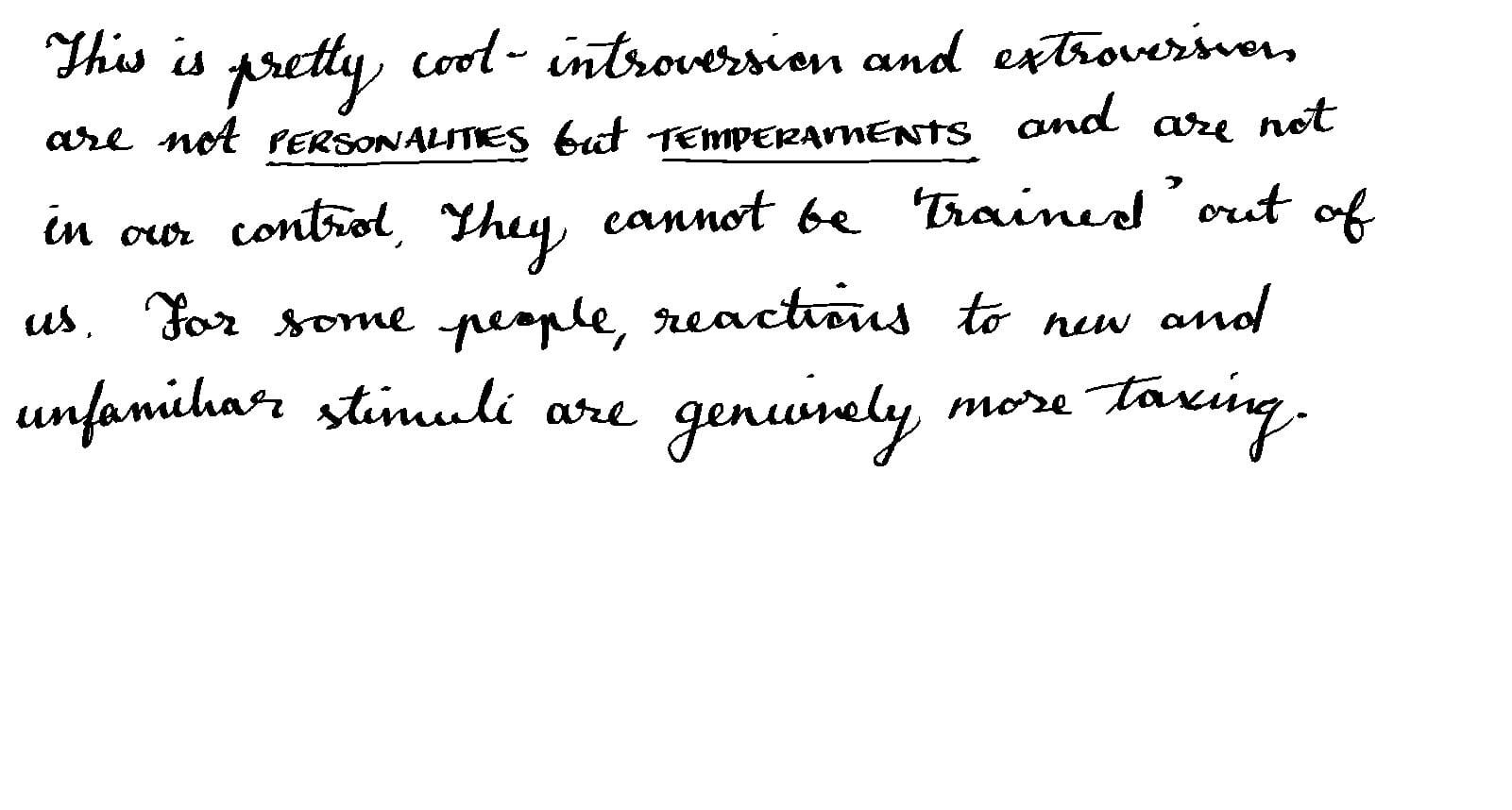
High-and low-reactivity are probably not the only biological routes to introversion and extroversion. There are plenty of introverts who do not have the sensitivity of a classic high-reactive, and a small percentage of high-reactives grow up to be extroverts.

Extroverts are sometimes credited with being “pro-social”—meaning caring about others—and introverts disparaged as people who don’t like people. But the reactions of the infants in Kagan’s tests had nothing to do with people. These babies were shouting (or not shouting) over Q-tips.
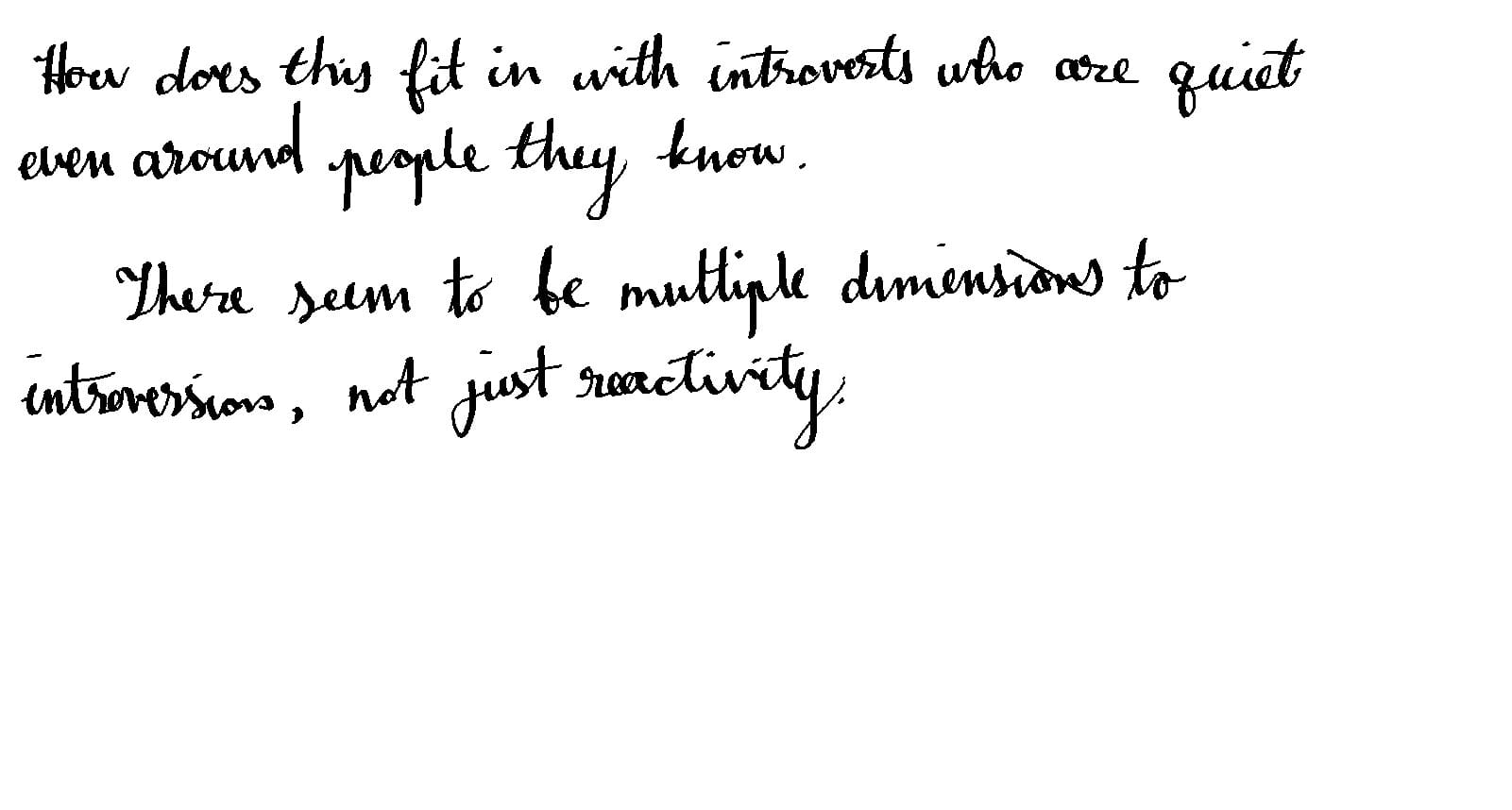
If a high-reactive toddler breaks another child’s toy by mistake, studies show, she often experiences a more intense mix of guilt and sorrow than a lower-reactive child would.
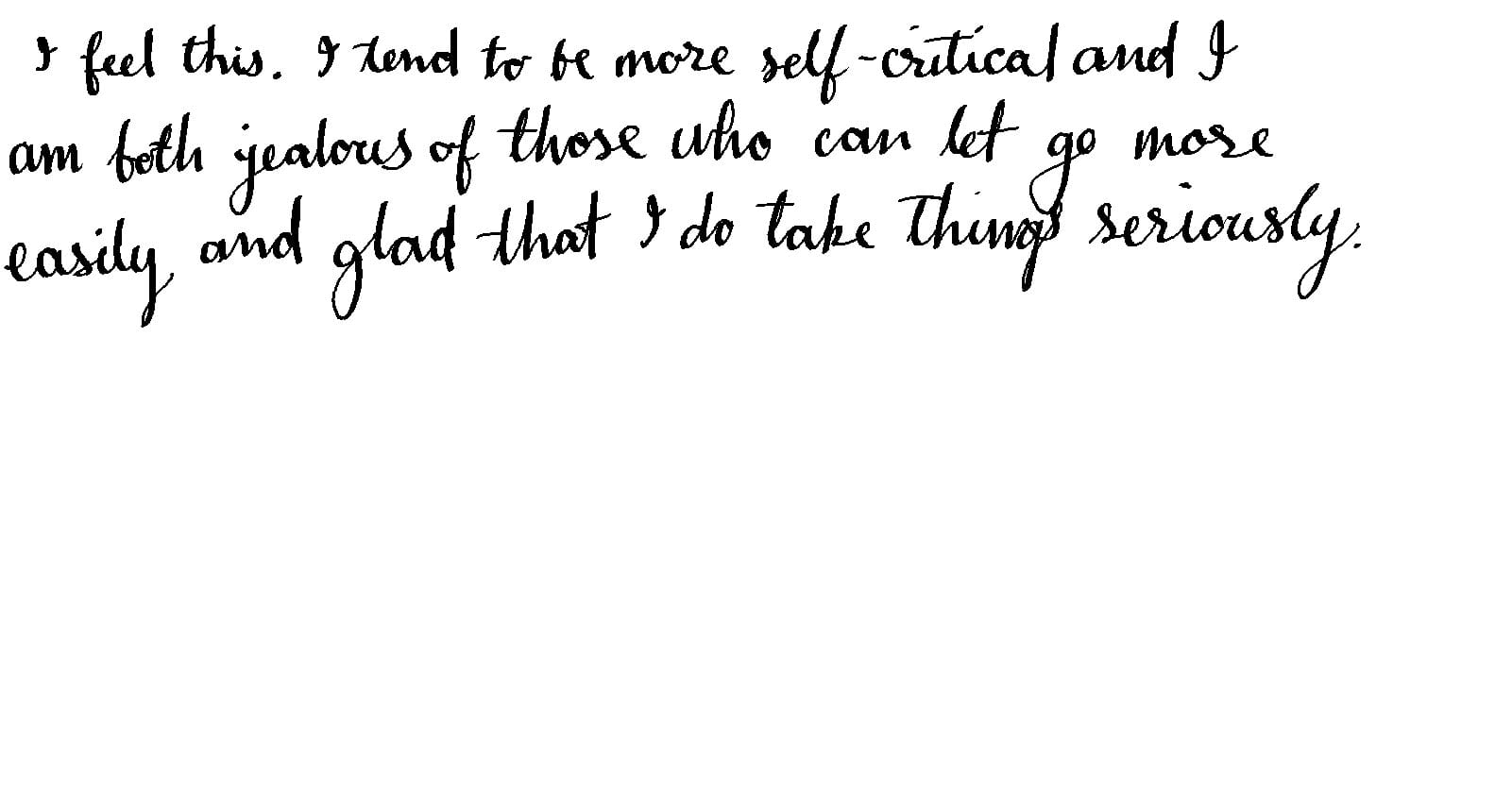
For example, he believes, based on his data, that high reactivity is associated with physical traits such as blue eyes, allergies, and hay fever, and that high-reactive men are more likely than others to have a thin body and narrow face.
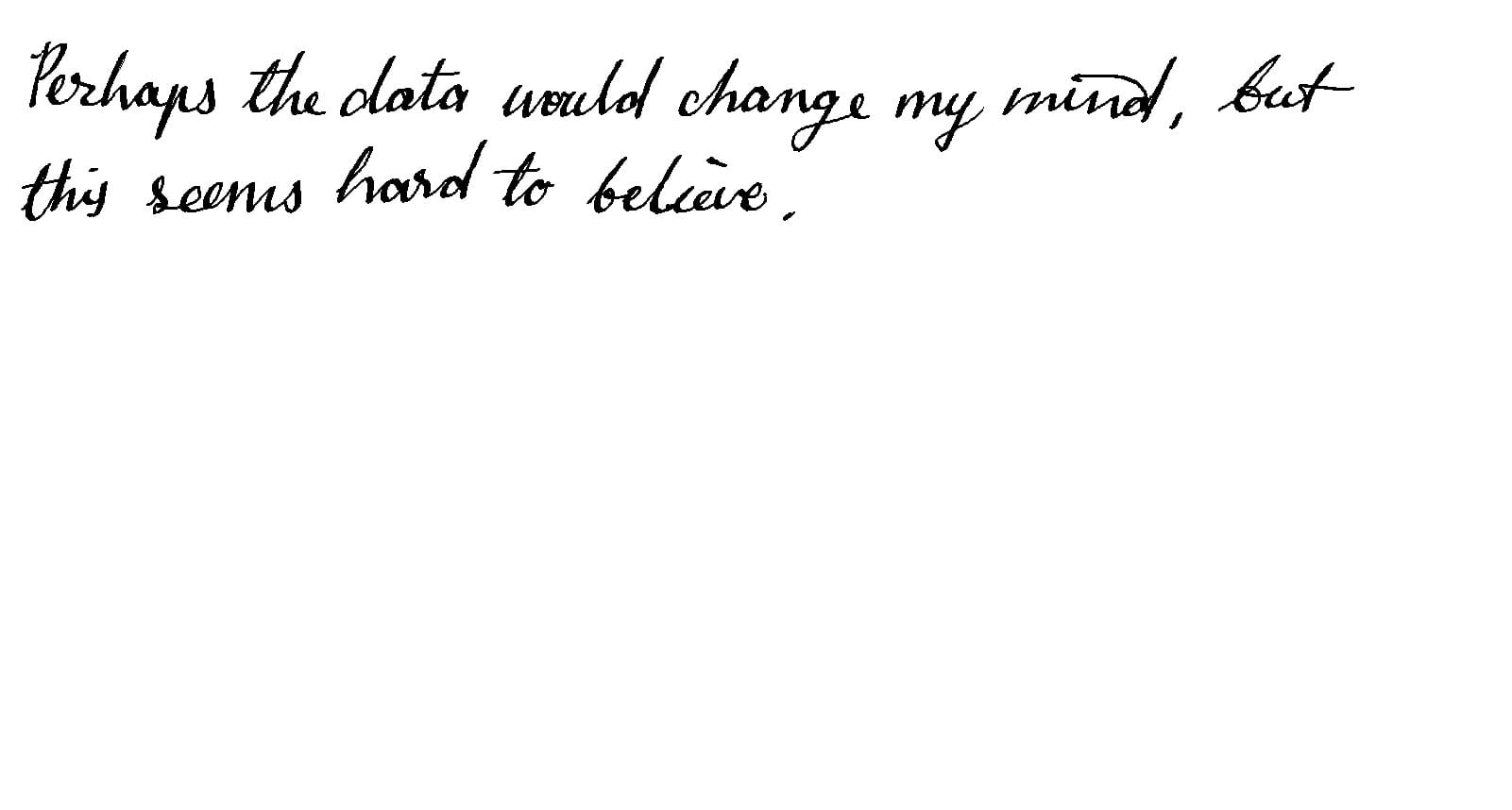
What about free will—do we have no control over who we are, and whom we become?
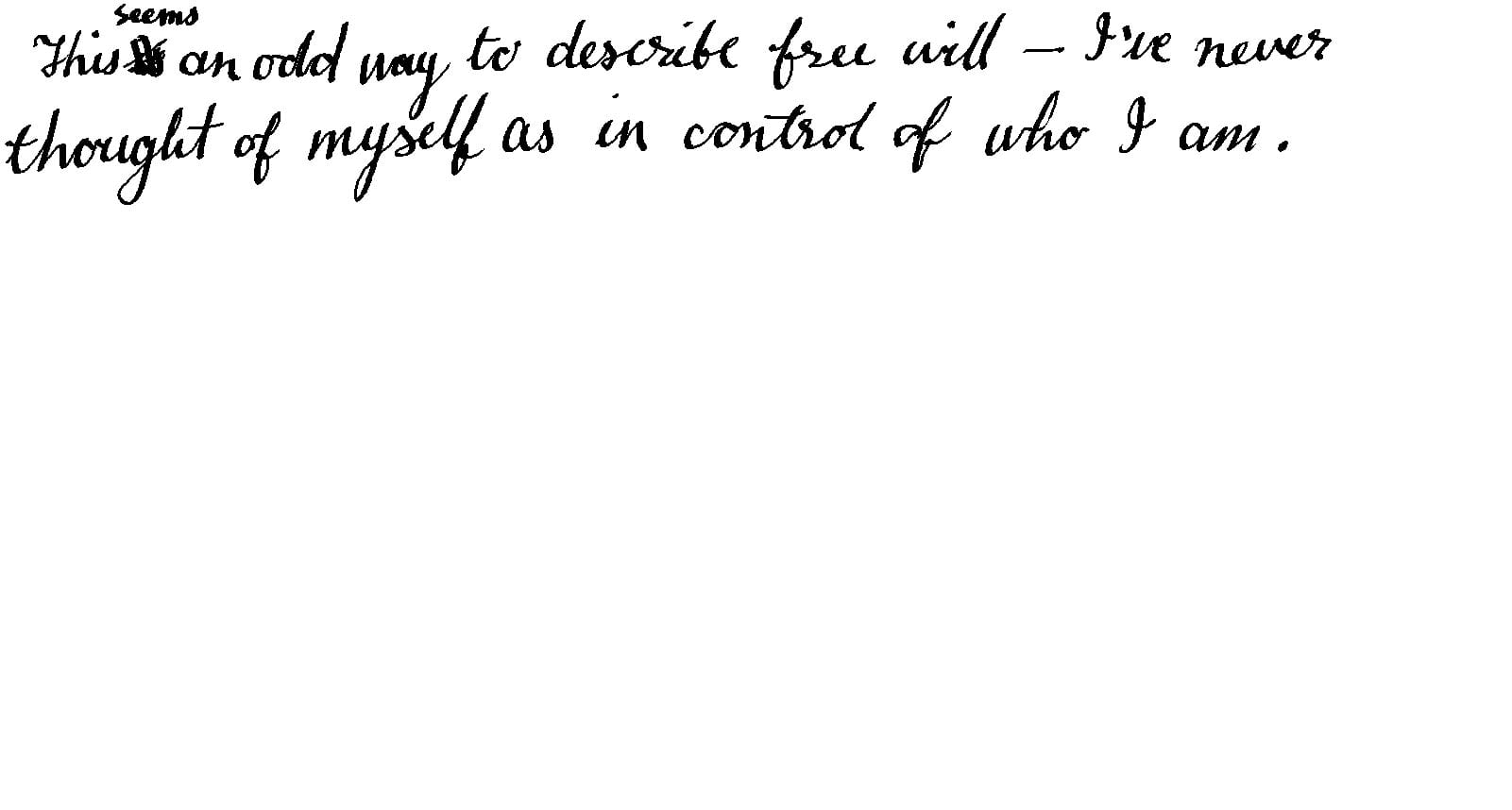
“No!” Kagan exclaims. “Every behavior has more than one cause. Don’t ever forget that! For every child who’s slow to warm up, yes, there will be statistically more high-reactives, but you can be slow to warm up because of how you spent the first three and a half years of your life!
My fear of public speaking might be equally complex. Do I dread it because I’m a high-reactive introvert? Maybe not. Some high-reactives love public speaking and performing, and plenty of extroverts have stage fright;
Do I dread it because I’m a high-reactive introvert? Maybe not. Some high-reactives love public speaking and performing, and plenty of extroverts have stage fright; … Public speaking phobia has many causes, including early childhood setbacks, that have to do with our unique personal histories, not inborn temperament.
One theory, based on the writings of the sociobiologist E. O. Wilson, holds that when our ancestors lived on the savannah, being watched intently meant only one thing: a wild animal was stalking us. And when we think we’re about to be eaten, do we stand tall and hold forth confidently? No. We run.
sociobiologist E. O. Wilson, holds that when our ancestors lived on the savannah, being watched intently meant only one thing: a wild animal was stalking us. And when we think we’re about to be eaten, do we stand tall and hold forth confidently? No. We run.
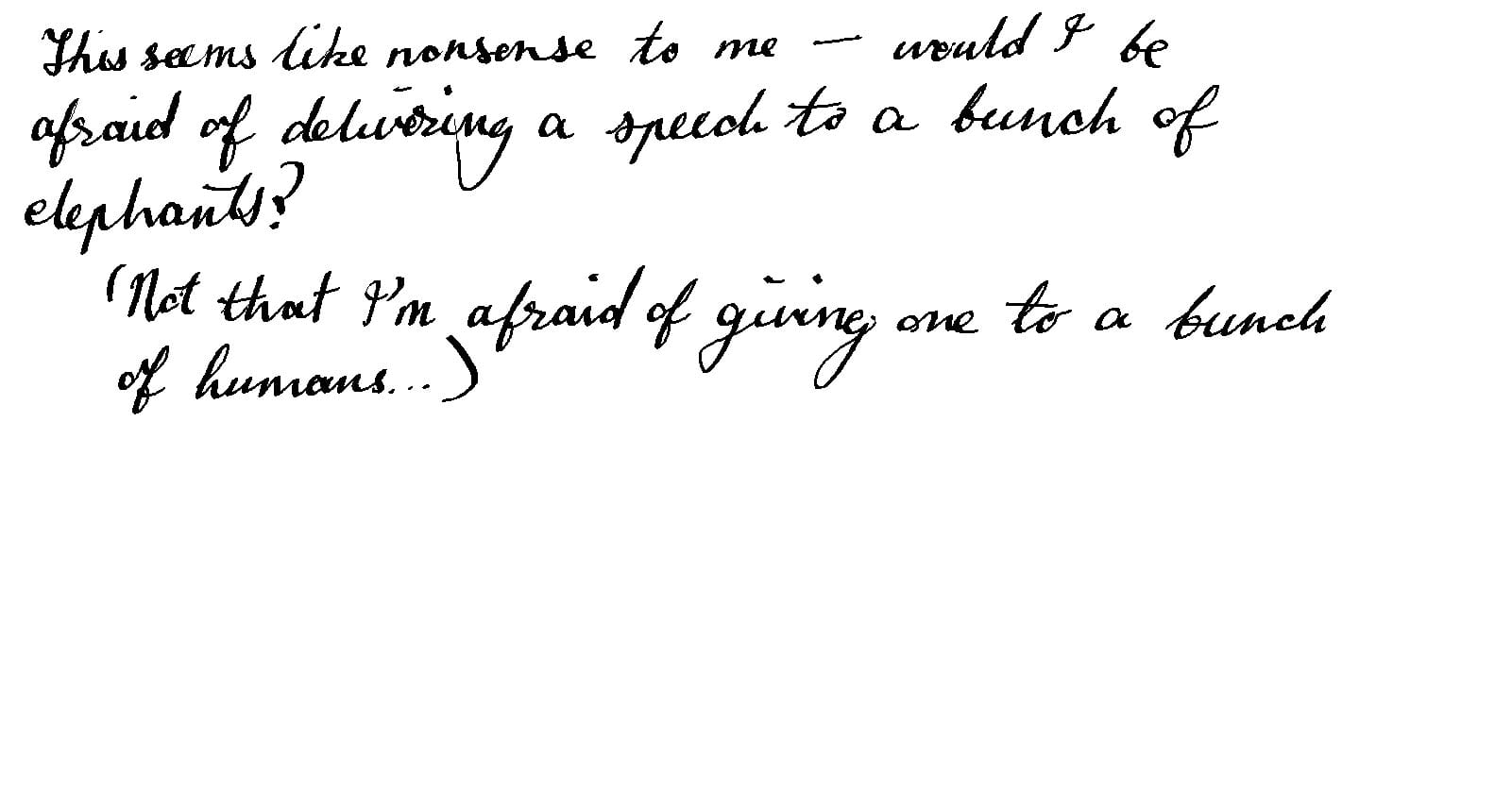
So am I introverted because I inherited my parents’ high reactivity, copied their behaviors, or both?
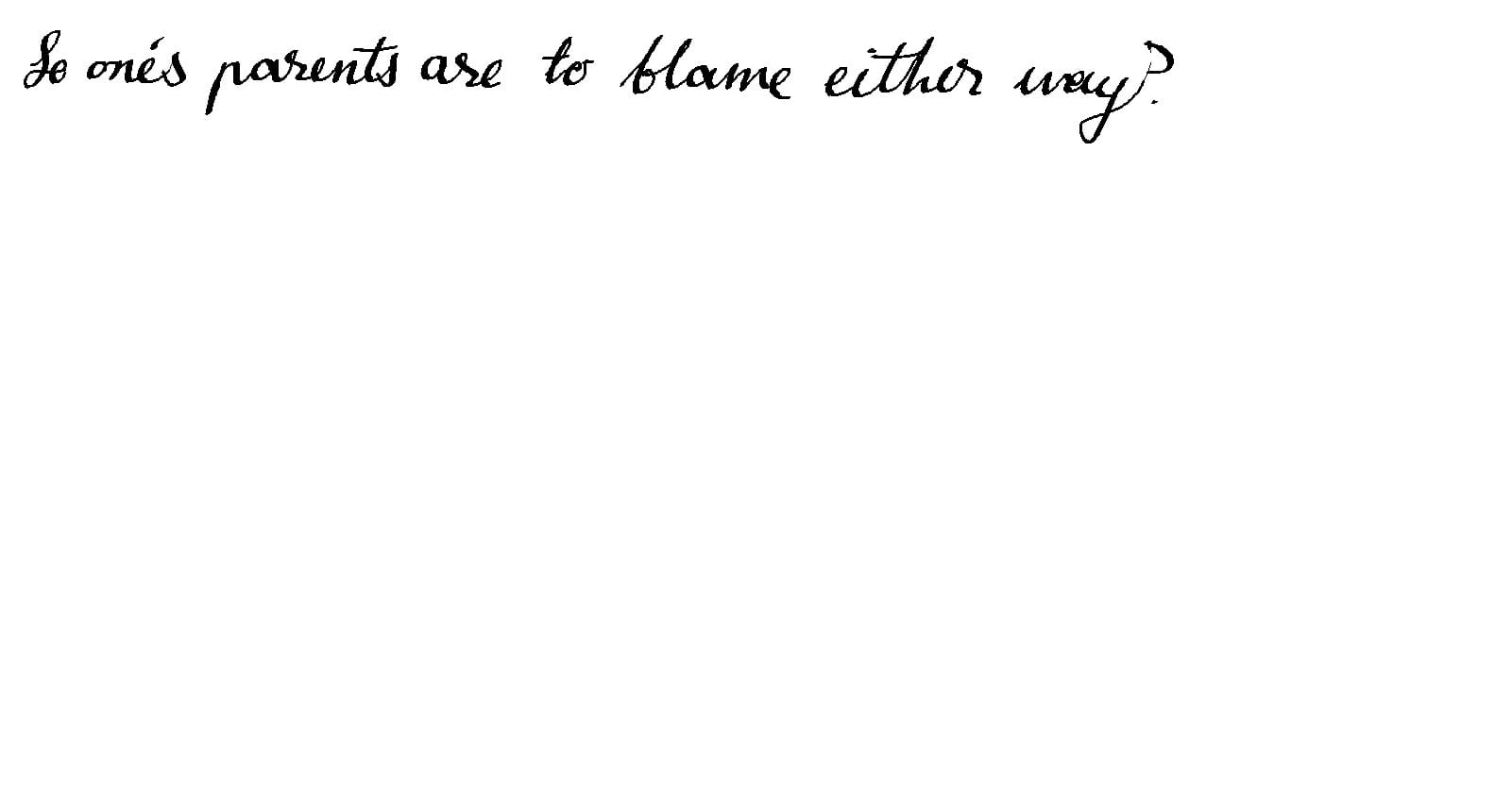
according to the theory of gene-environment interaction, people who inherit certain traits tend to seek out life experiences that reinforce those characteristics.
Many psychologists believe that children develop a conscience when they do something inappropriate and are rebuked by their caregivers. Disapproval makes them feel anxious, and since anxiety is unpleasant, they learn to steer clear of antisocial behavior. This is known as internalizing their parents’ standards of conduct, and its core is anxiety.
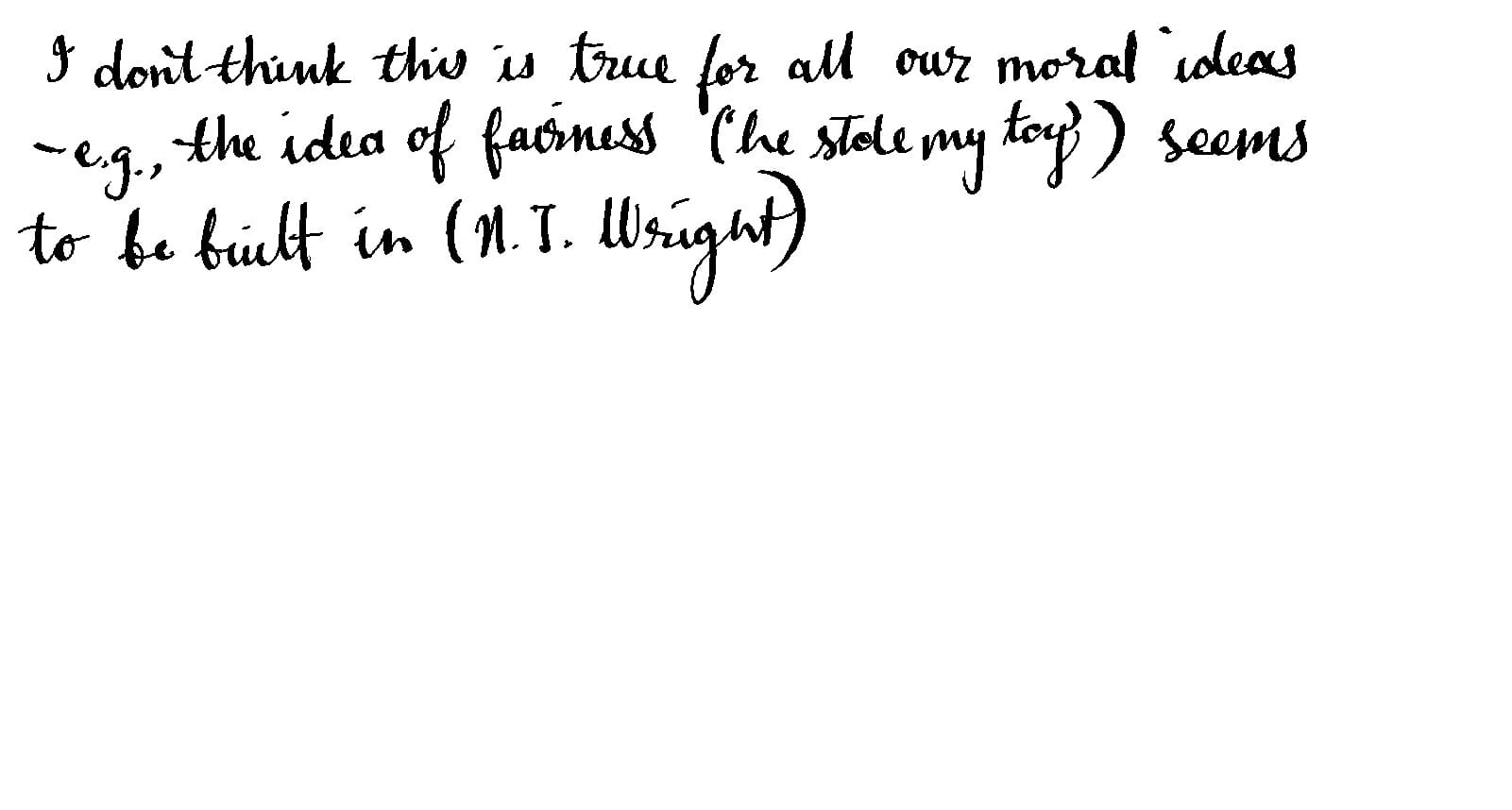
A low-reactive child on an ice-hockey team enjoys his peers’ esteem when he charges at his opponents with a lowered shoulder, which is a “legal” move. But if he goes too far, raises his elbow, and gives another guy a concussion, he lands in the penalty box. Over time he learns to use his appetite for risk and assertiveness wisely.
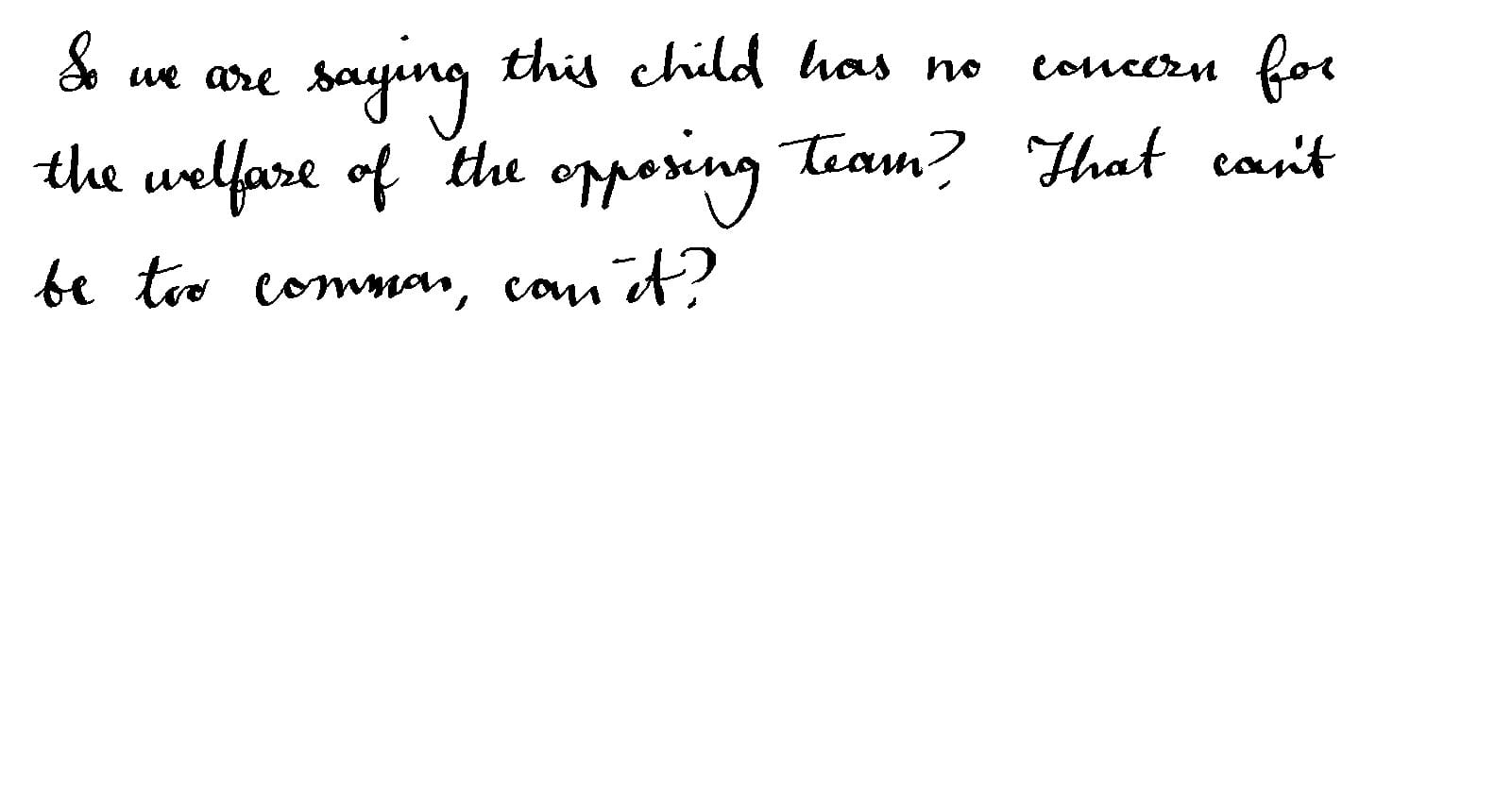
“the orchid hypothesis” by David Dobbs in a wonderful article in The Atlantic. This theory holds that many children are like dandelions, able to thrive in just about any environment. But others, including the high-reactive types that Kagan studied, are more like orchids: they wilt easily, but under the right conditions can grow strong and magnificent.
Studies in humans have found that adolescent girls with the short allele of the SERT gene are 20 percent more likely to be depressed than long-allele girls when exposed to stressful family environments, but 25 percent less likely to be depressed when raised in stable homes.

The parents of high-reactive children are exceedingly lucky, Belsky told me. “The time and effort they invest will actually make a difference. Instead of seeing these kids as vulnerable to adversity, parents should see them as malleable—for worse, but also for better.”

Chapter 5: Beyond Temperament
The Role of Free Will (and the Secret of Public Speaking for Introverts)
And I think, in spite of this, because of his intellectual heritage, he had the feeling that environmental factors are so complex that it would be really hard to pick up that footprint of temperament later in life.”
I feel a bit like the previous descriptions misrepresented Kagan's research. He thought temperament didn't impact adults!
the footprint of a high-or low-reactive temperament never disappeared in adulthood. Some high-reactives grew into socially fluid teenagers who were not outwardly rattled by novelty, but they never shed their genetic inheritance.
If you were a high-reactive baby, then your amygdala may, for the rest of your life, go a bit wild every time you introduce yourself to a stranger at a cocktail party. But if you feel relatively skilled in company, that’s partly because your frontal cortex is there to tell you to calm down, extend a handshake, and smile. In fact, a recent fMRI study shows that when people use self-talk to reassess upsetting situations, activity in their prefrontal cortex increases in an amount correlated with a decrease of activity in their amygdala.
Esther was not shy and never had been. But she was decidedly introverted. Her favorite part of the day was the quiet ten minutes when she walked to the bus along the tree-lined streets of her neighborhood. Her second favorite part was when she got to close the door to her office and dig into her work.
In one well-known experiment, dating all the way back to 1967 and still a favorite in-class demonstration in psychology courses, Eysenck placed lemon juice on the tongues of adult introverts and extroverts to find out who salivated more. Sure enough, the introverts, being more aroused by sensory stimuli, were the ones with the watery mouths.
They were asked to adjust the volume of their headsets up or down to the level that was “just right.” On average, the extroverts chose a noise level of 72 decibels, while the introverts selected only 55 decibels. When working at the volume that they had selected—loud for the extroverts, quiet for the introverts—the two types were about equally aroused (as measured by their heart rates and other indicators). They also played equally well.
Once you understand introversion and extroversion as preferences for certain levels of stimulation, you can begin consciously trying to situate yourself in environments favorable to your own personality—neither overstimulating nor understimulating, neither boring nor anxiety-making. You can organize your life in terms of what personality psychologists call “optimal levels of arousal” and what I call “sweet spots,” and by doing so feel more energetic and alive than before.
introverts function better than extroverts when sleep deprived, which is a cortically de-arousing condition (because losing sleep makes us less alert, active, and energetic). Drowsy extroverts behind the wheel should be especially careful—at least until they increase their arousal levels by chugging coffee or cranking up the radio. Conversely, introverts driving in loud, overly arousing traffic noise should work to stay focused, since the noise may impair their thinking.
Bizarrely, I think I fall into the extrovert category here. When I'm tired, I really struggle to drive. I don't struggle to concentrate as much. But when driving, silence and long, straight roads, will cause me to fall asleep.
For me this involves taking specific steps, including treating every speech as a creative project, so that when I get ready for the big day, I experience that delving-deep sensation I enjoy so much. I also speak on topics that matter to me deeply, and have found that I feel much more centered when I truly care about my subject.
introverts, who have trouble projecting artificial enthusiasm.
Chapter 6: 'Franklin Was a Politician, but Eleanor Spoke out of Conscience'
Why Cool Is Overrated
She didn’t relish this role, so she hired a social secretary named Lucy Mercer to help her. Which seemed a good idea—until the summer of 1917, when Eleanor took the children to Maine for the summer, leaving Franklin behind in Washington with Mercer. The two began a lifelong affair.
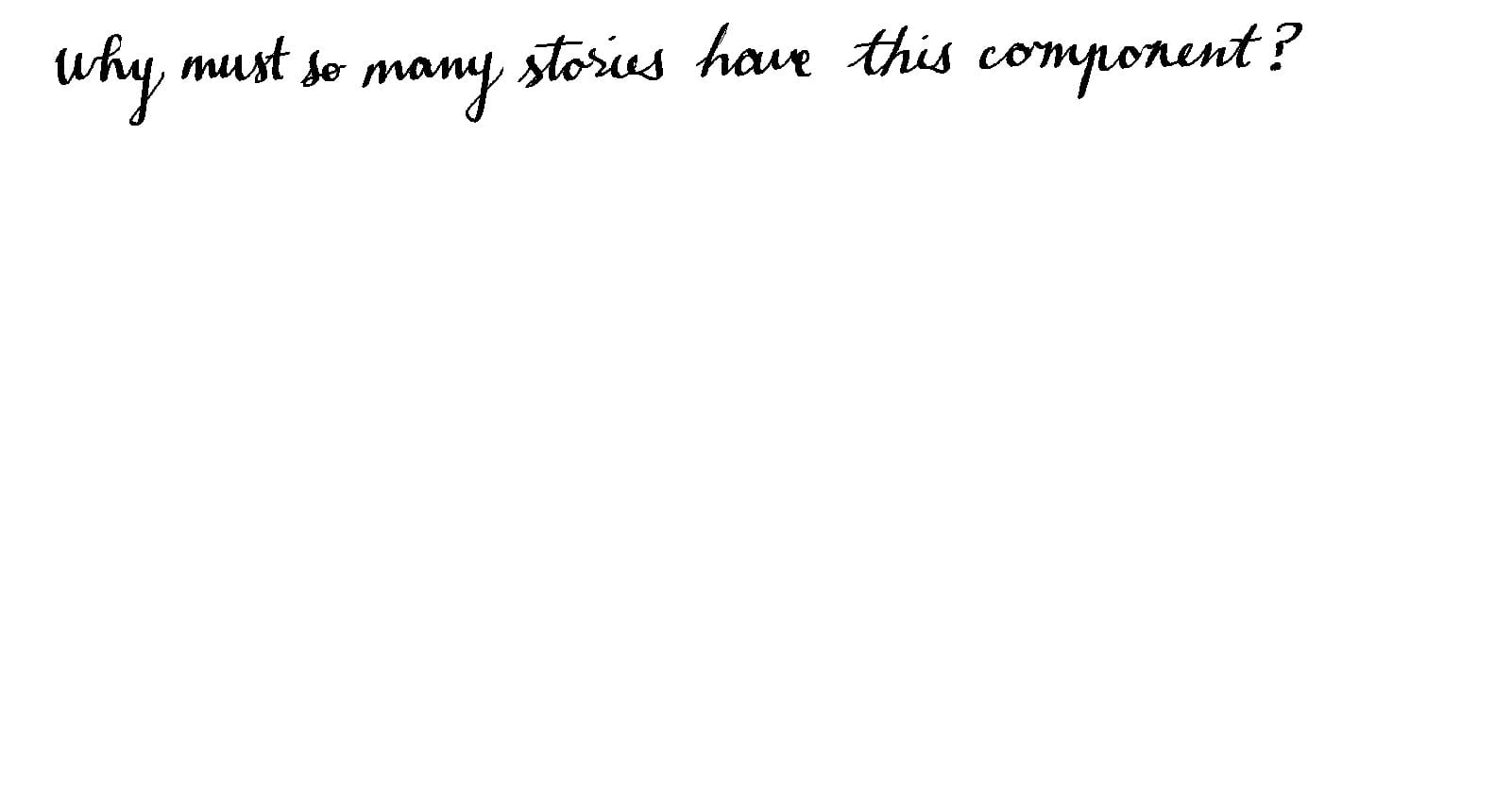
Dr. Elaine Aron is a research psychologist who, since her first scientific publication in 1997, has singlehandedly reframed what Jerome Kagan and others call high reactivity (and sometimes “negativity” or “inhibition”). She calls it “sensitivity,” and along with her new name for the trait, she’s transformed and deepened our understanding of it.
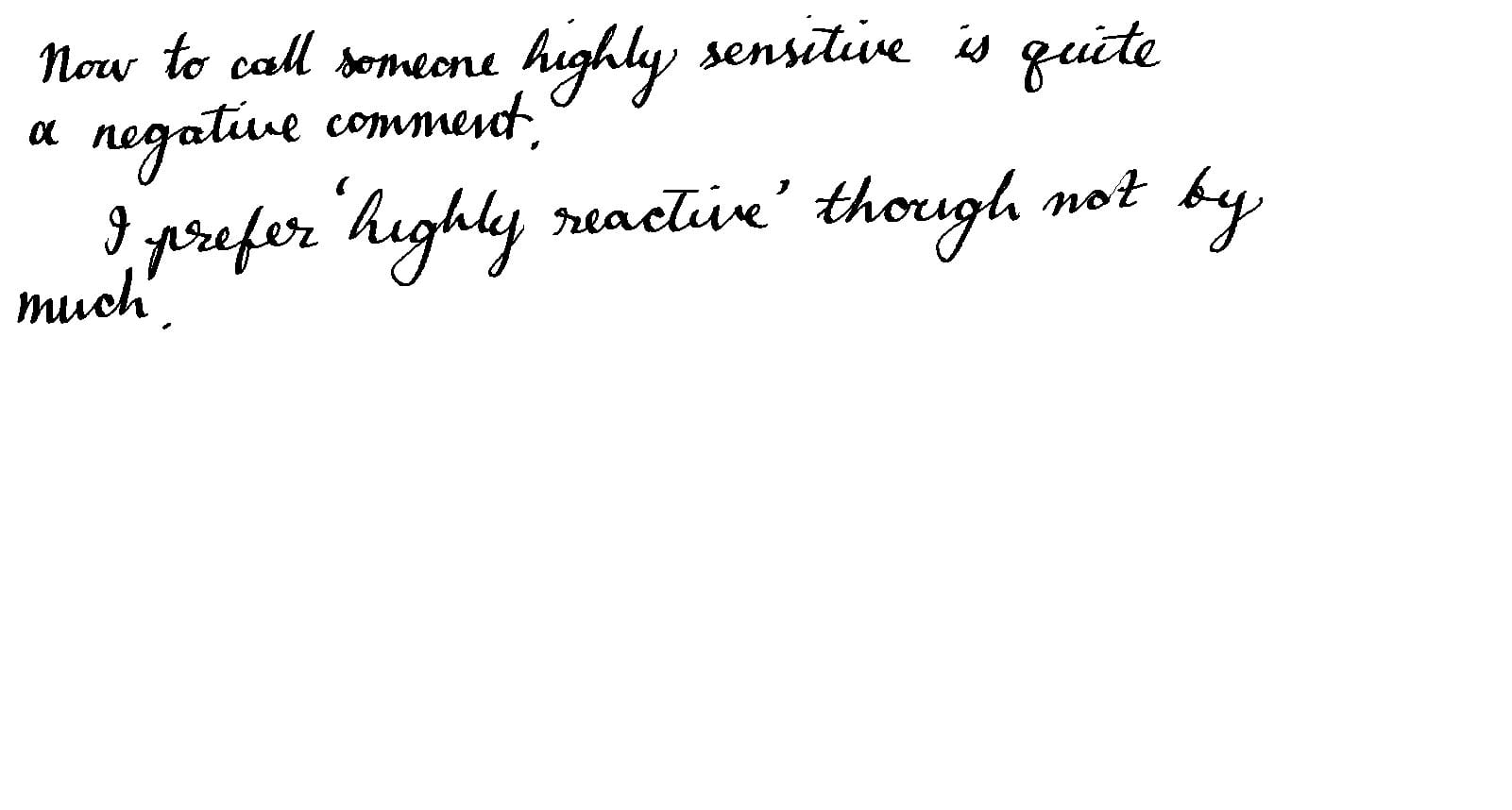
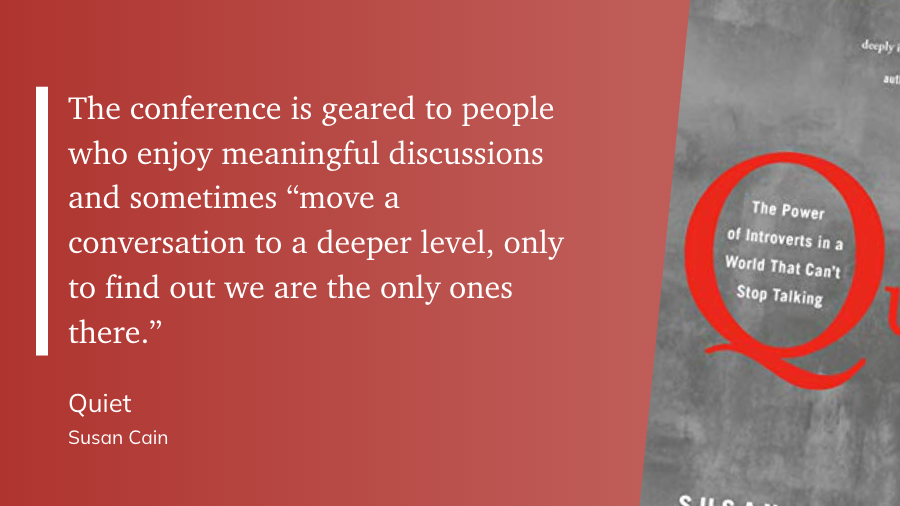
A software engineer named Tom kicks off, describing with great passion his relief at learning that there was “a physiological basis for the trait of sensitivity. Here’s the research! This is how I am! I don’t have to try to meet anyone’s expectations anymore. I don’t need to feel apologetic or defensive in any way.”
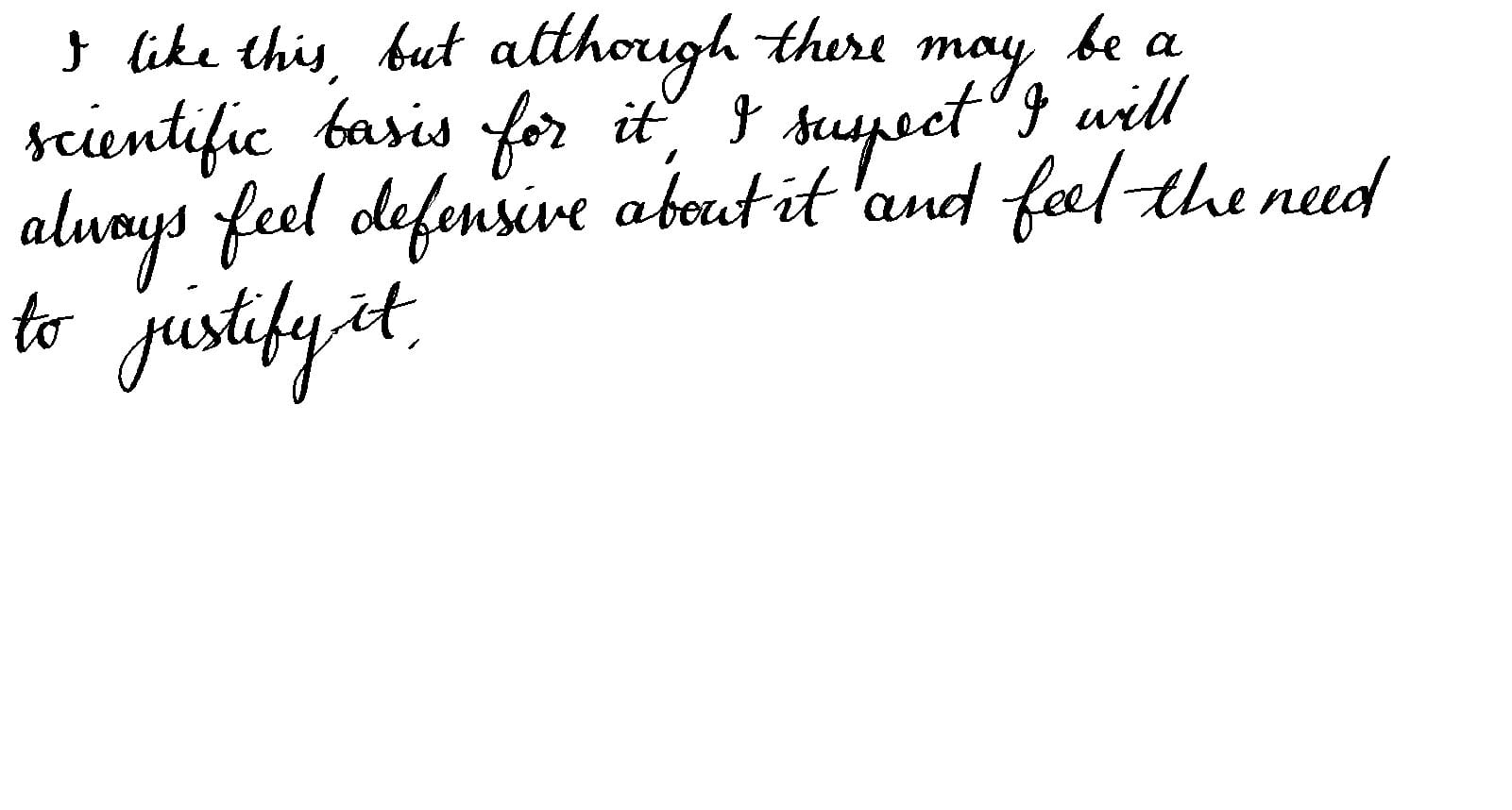
When she was a girl, Aron was often told that she was “too sensitive for her own good.” She had two hardy elder siblings and was the only child in her family who liked to daydream, and play inside, and whose feelings were easily hurt.

They have difficulty when being observed (at work, say, or performing at a music recital) or judged for general worthiness (dating, job interviews).
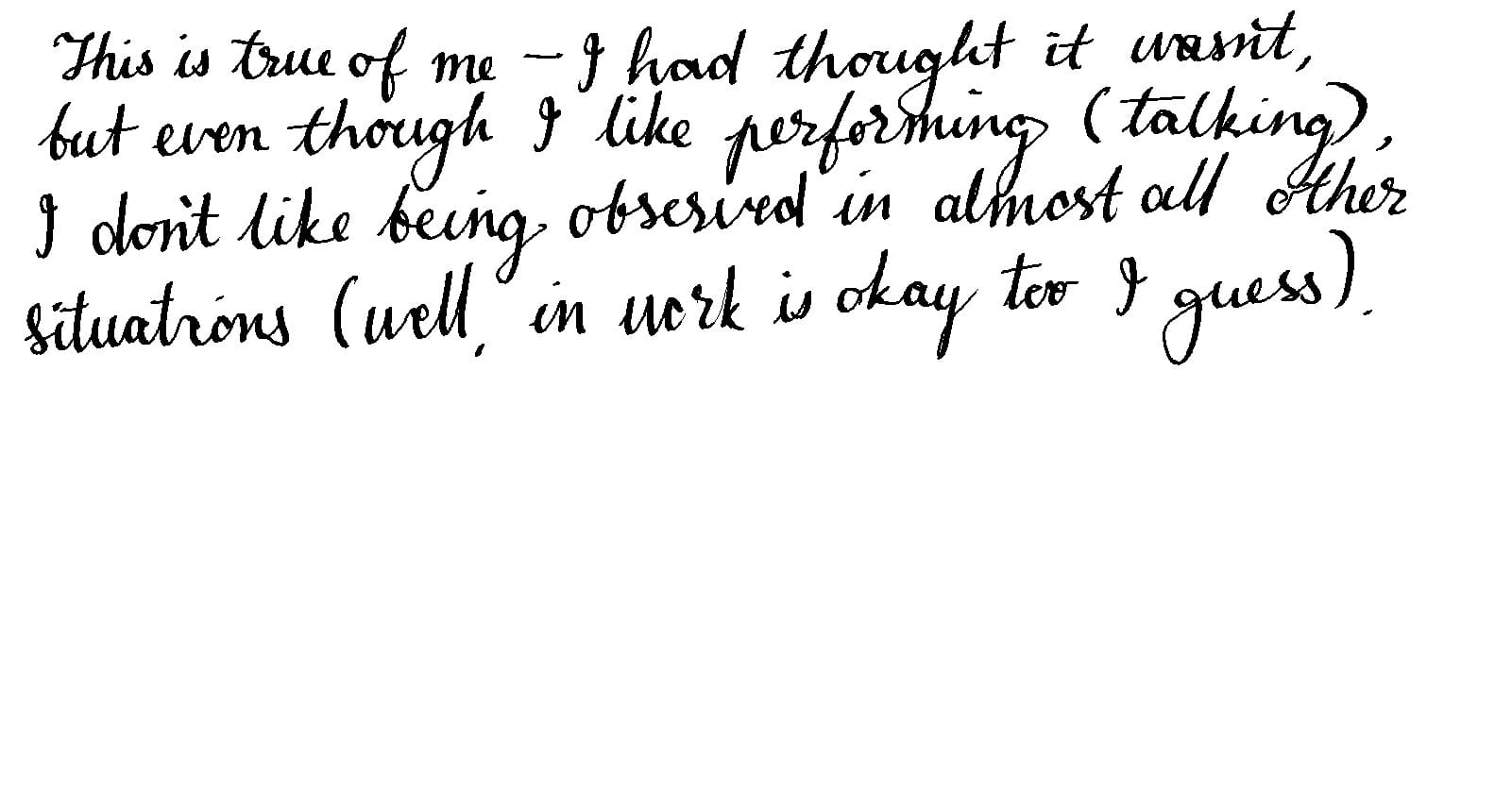
The other thing Aron found about sensitive people is that sometimes they’re highly empathic. It’s as if they have thinner boundaries separating them from other people’s emotions and from the tragedies and cruelties of the world. They tend to have unusually strong consciences. They avoid violent movies and TV shows; they’re acutely aware of the consequences of a lapse in their own behavior. In social settings they often focus on subjects like personal problems, which others consider “too heavy.”
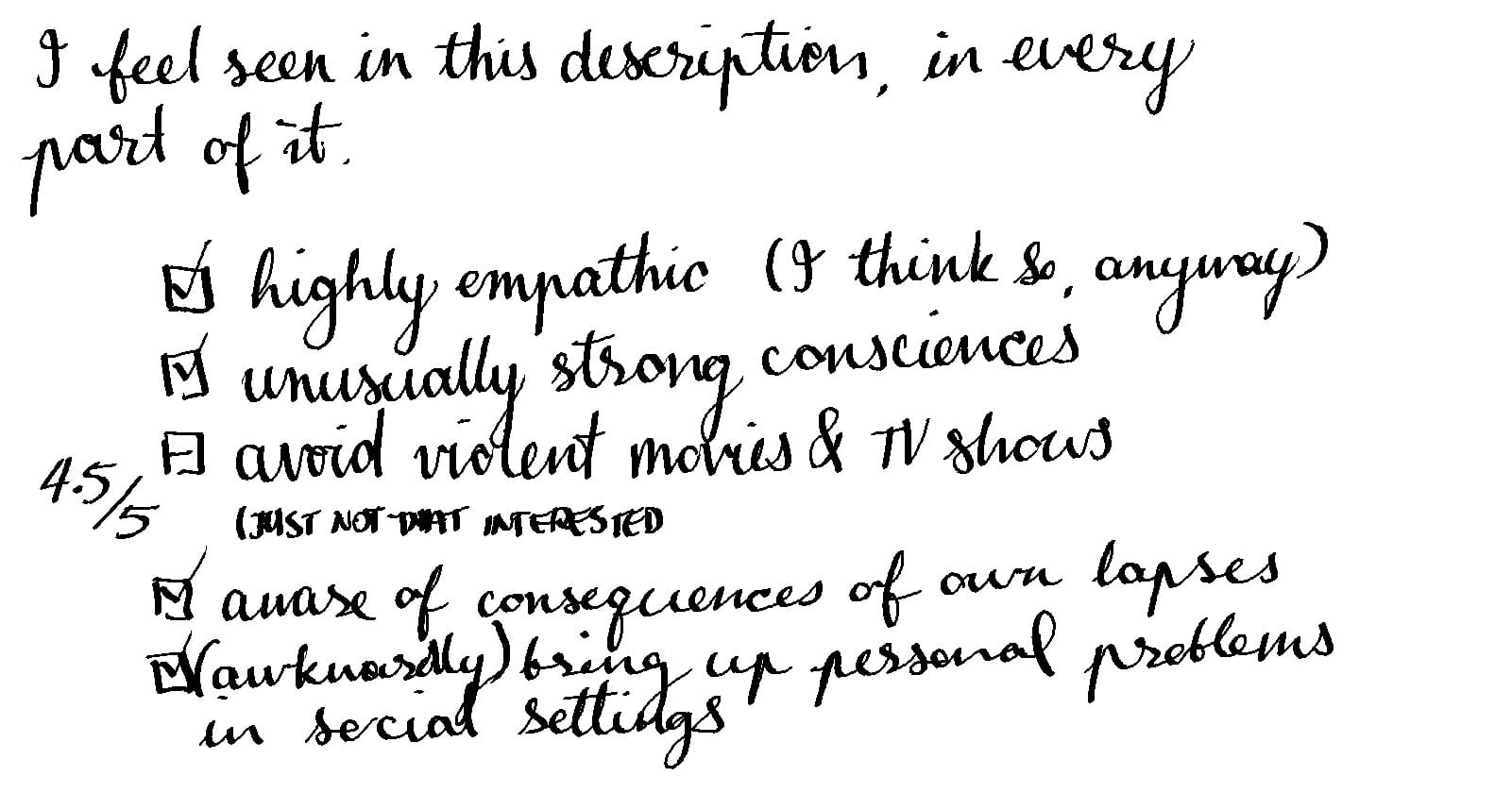
She never did outgrow her vulnerability; all her life she suffered dark “Griselda moods,” as she called them (named for a princess in a medieval legend who withdrew into silence), and struggled to “develop skin as tough as rhinoceros hide.” “I think people who are shy remain shy always, but they learn how to overcome it,” she said.

Some children, it turns out, feel a lot more guilty about their (supposed) transgression than others. They look away, hug themselves, stammer out confessions, hide their faces. And it’s the kids we might call the most sensitive, the most high-reactive, the ones who are likely to be introverts who feel the guiltiest. Being unusually sensitive to all experience, both positive and negative, they seem to feel both the sorrow of the woman whose toy is broken and the anxiety of having done something bad.
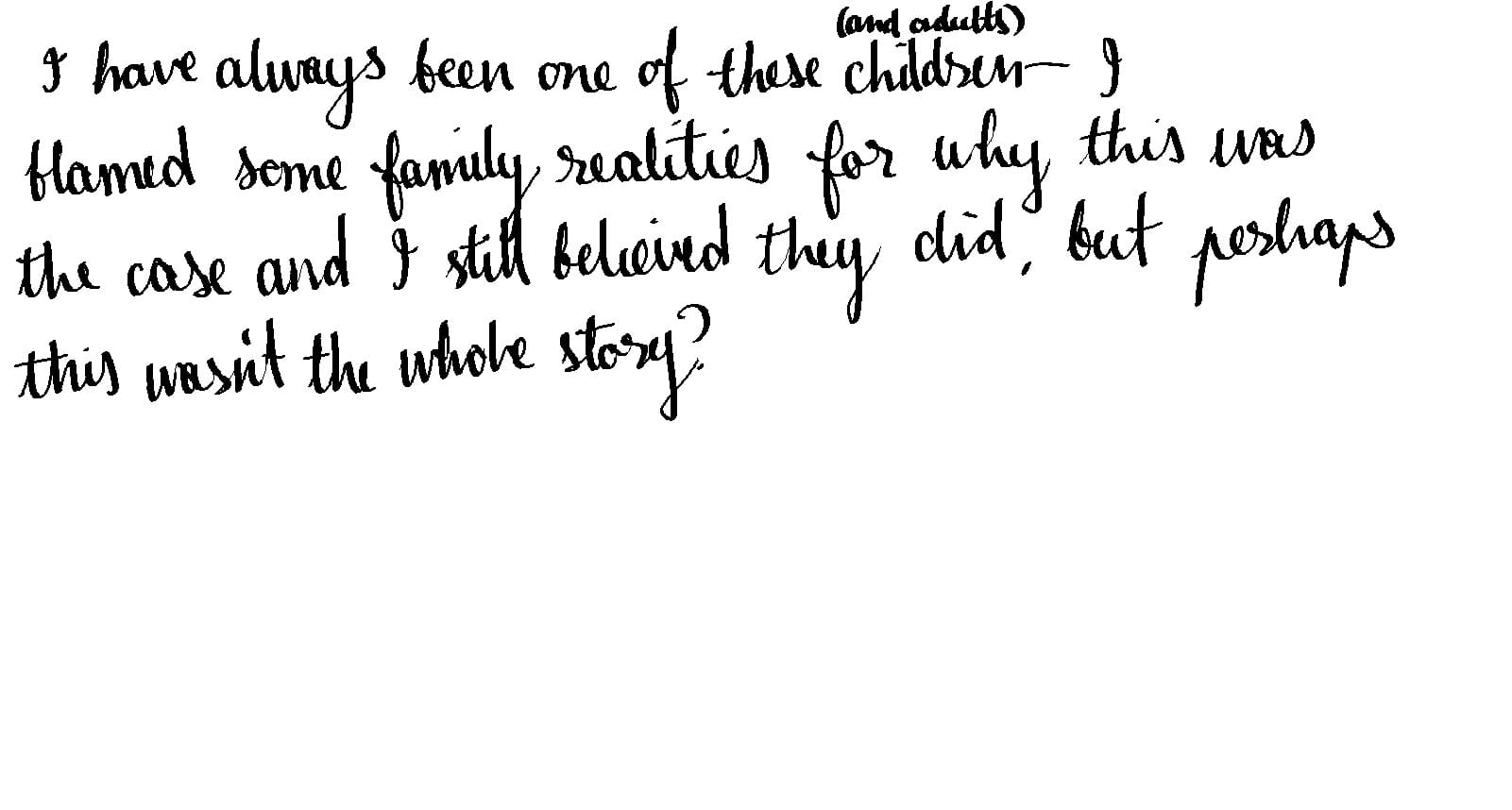
a 2010 University of Michigan study shows that college students today are 40 percent less empathetic than they were thirty years ago, with much of the drop having occurred since 2000. (The study’s authors speculate that the decline in empathy is related to the prevalence of social media, reality TV, and “hyper-competitiveness.”)
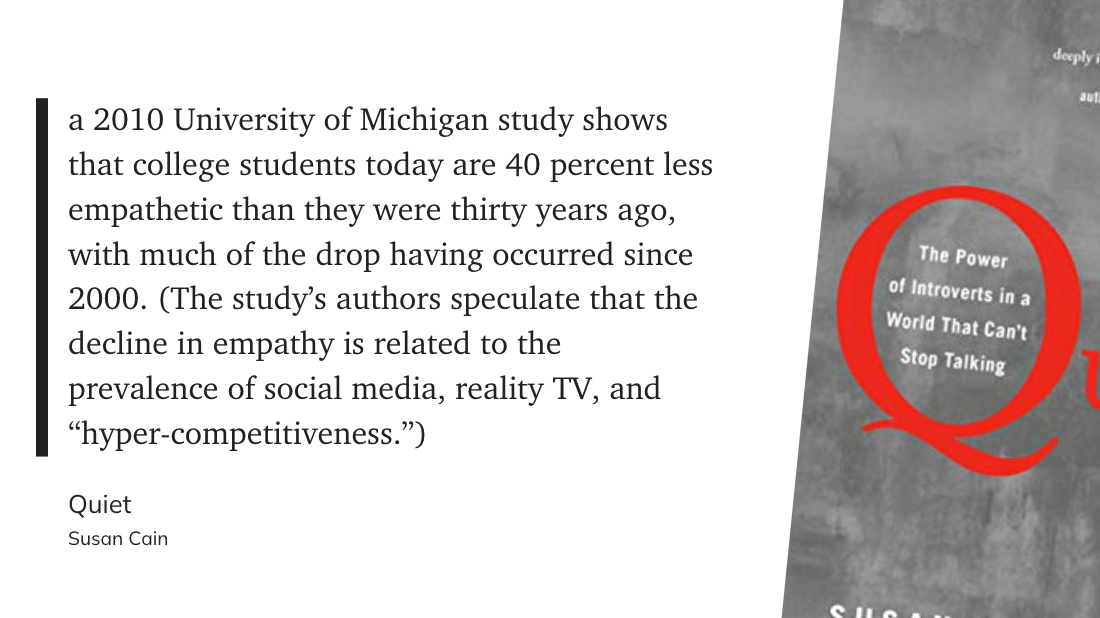
“Because it is impossible to control the blush intentionally,” Dijk speculates, blushing is an authentic sign of embarrassment. And embarrassment, according to Keltner, is a moral emotion. It shows humility, modesty, and a desire to avoid aggression and make peace.
In other words, you want to make sure that your spouse cares what other people think. It’s better to mind too much than to mind too little.
This is what’s known as the trade-off theory of evolution, in which a particular trait is neither all good nor all bad, but a mix of pros and cons whose survival value varies according to circumstance. … “There is no single best … [animal] personality,” writes Wilson, “but rather a diversity of personalities maintained by natural selection.”
The trade-off theory seems to apply equally to humans. Scientists have found that nomads who inherited the form of a particular gene linked to extroversion (specifically, to novelty-seeking) are better nourished than those without this version of the gene. But in settled populations, people with this same gene form have poorer nutrition.

“Suppose a herd of antelope … has a few members who are constantly stopping their grazing to use their keen senses to watch for predators,” she writes. “Herds with such sensitive, watchful individuals would survive better, and so continue to breed, and so continue to have some sensitive individuals born in the group.”
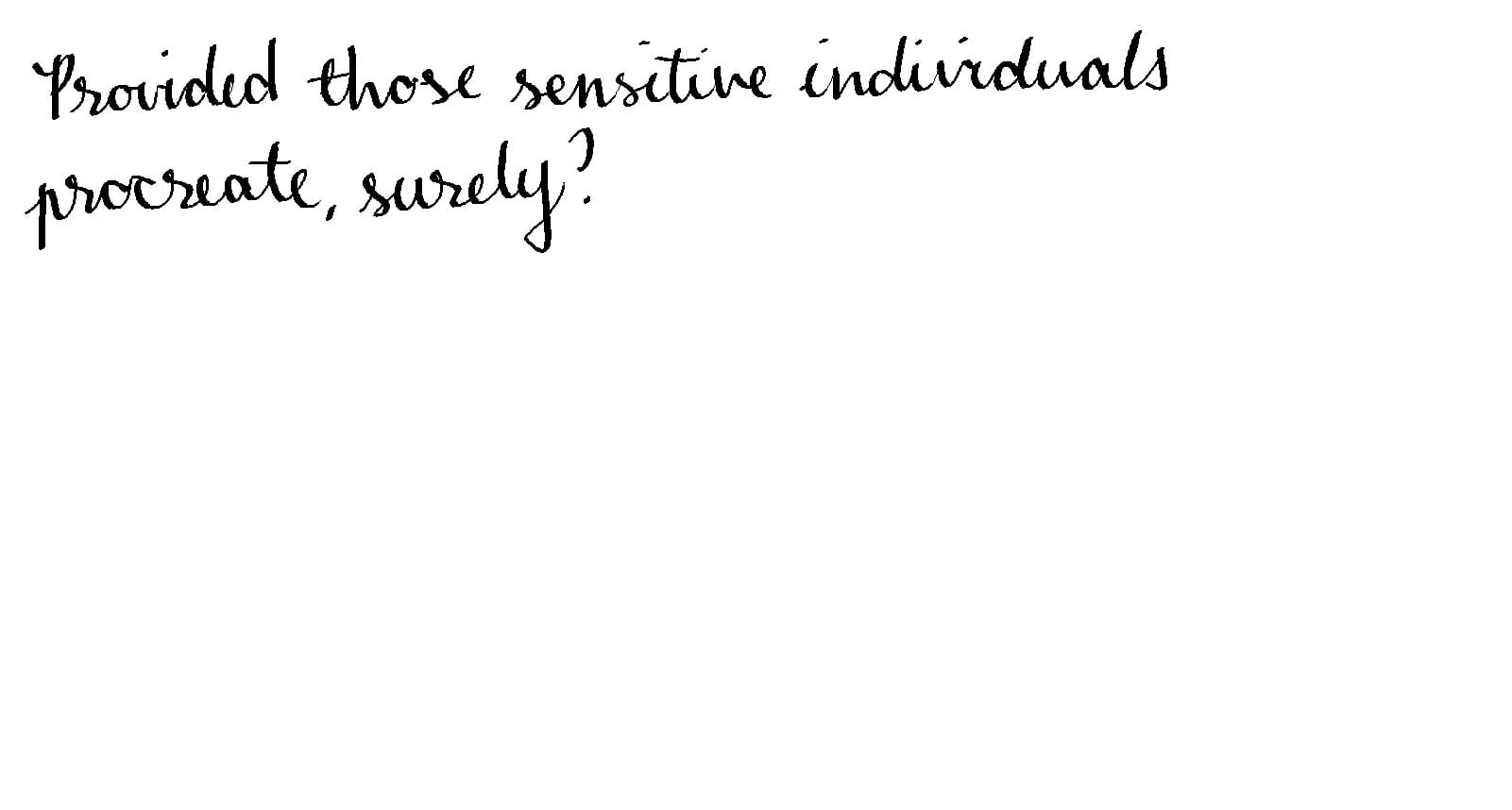
Which is why Gore finally got his message across when he teamed up with whiz-bang Hollywood types who could package his warning into the special-effects-laden show that became An Inconvenient Truth.
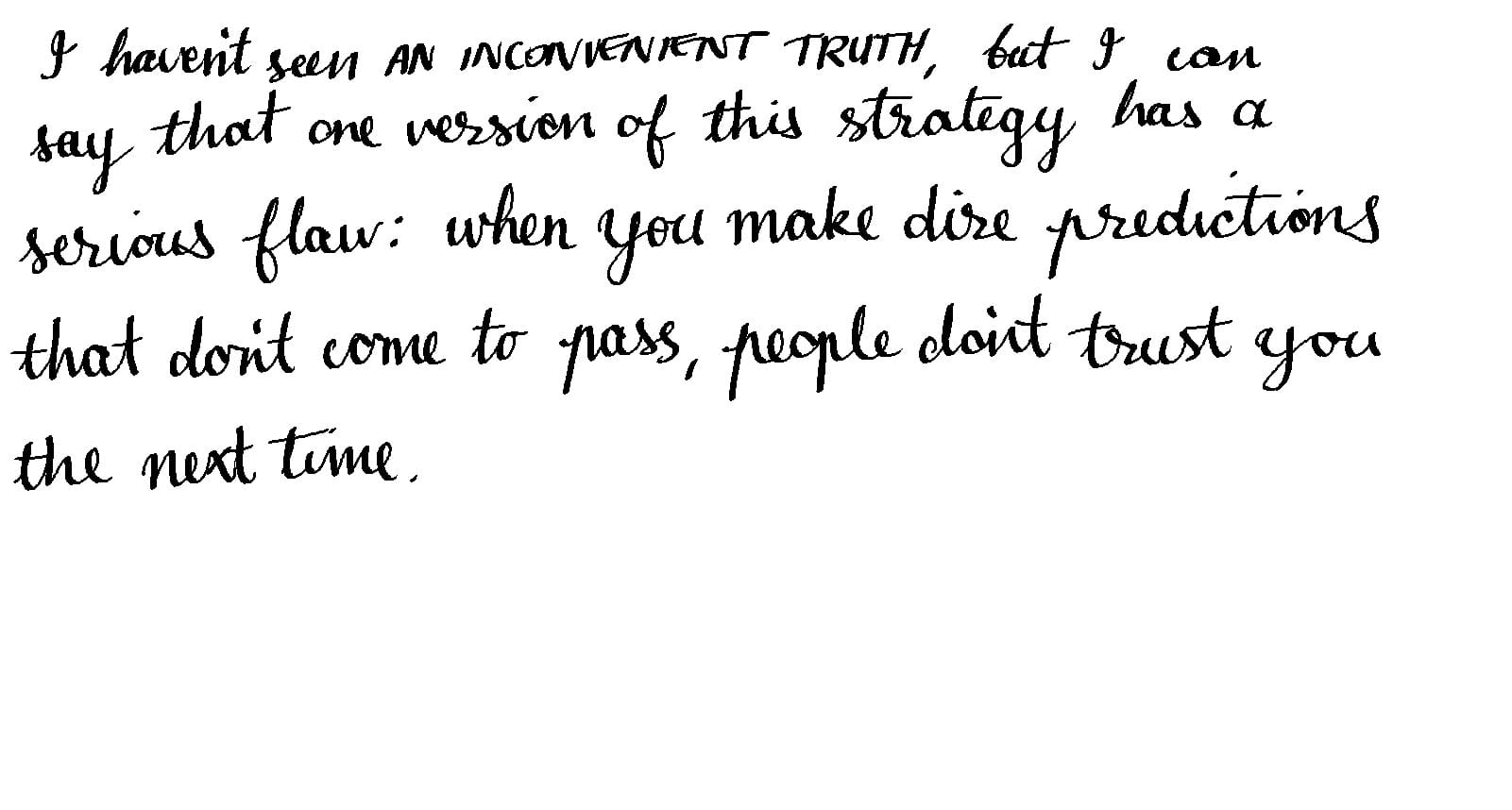
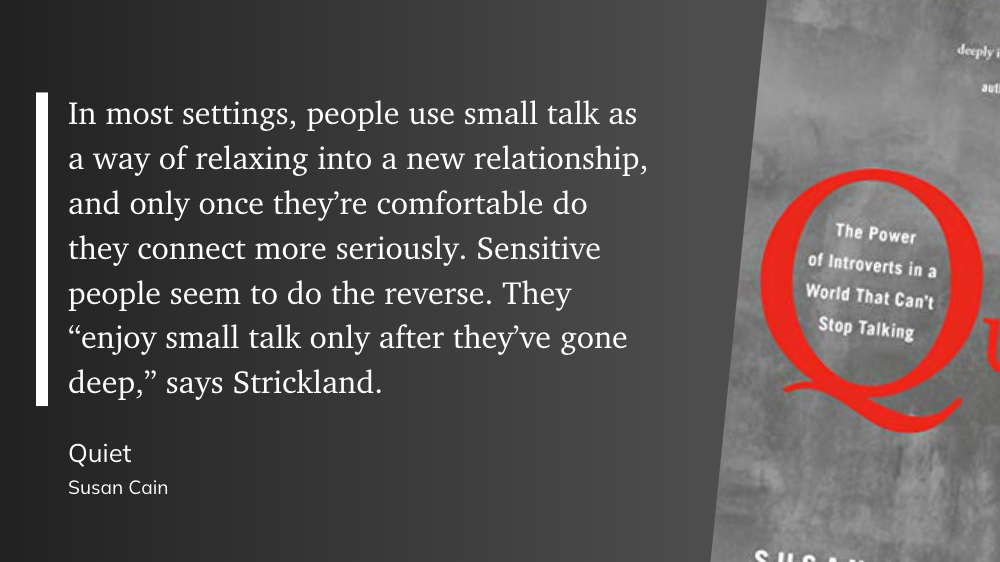
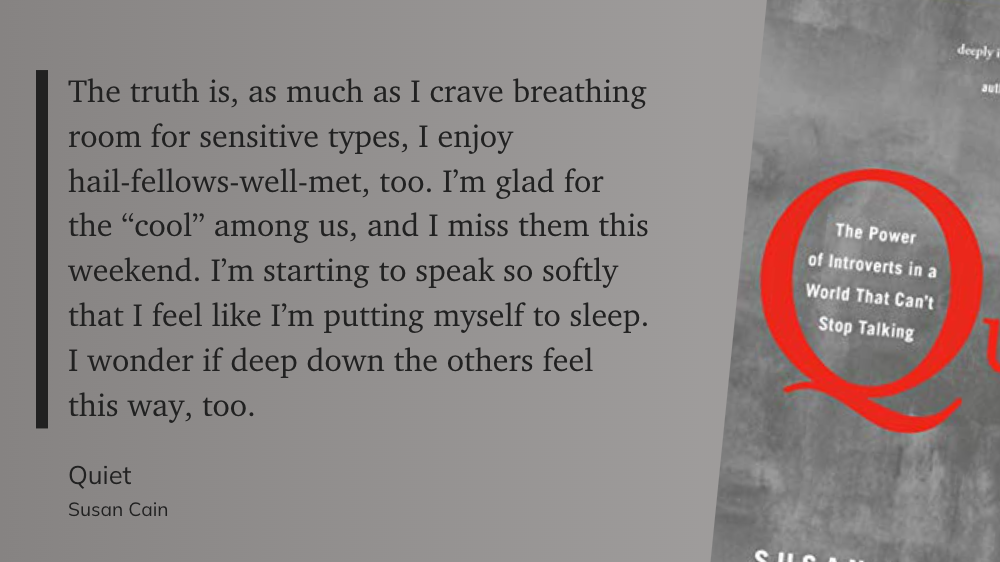
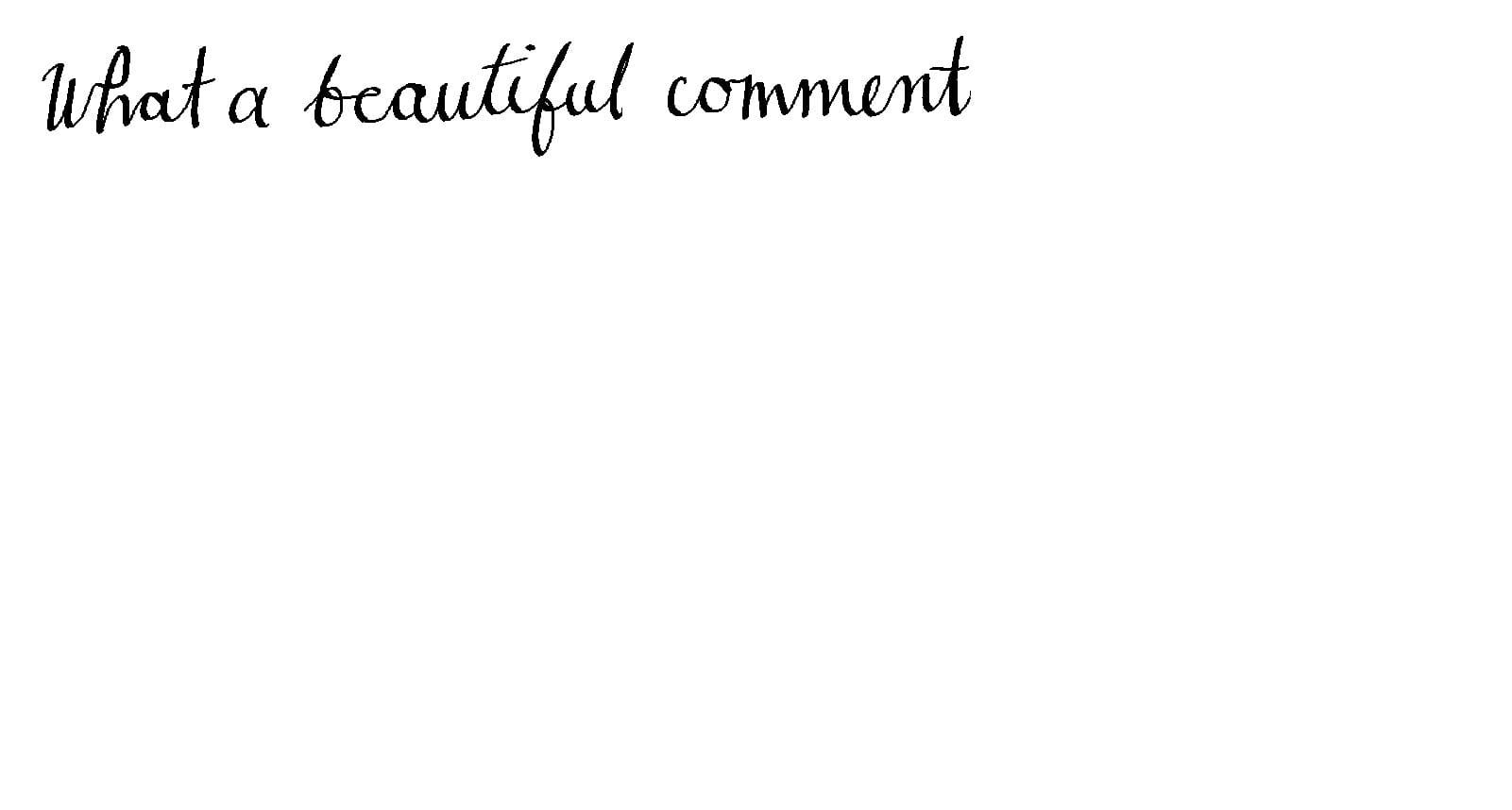
I thought that Walker Creek Ranch would make me long for a world of the highly sensitive, a world in which everyone speaks softly and no one carries a big stick. But instead it reinforced my deeper yearning for balance.
Chapter 7: Why Did Wall Street Crash and Warren Buffet Prosper?
Introverts and Extroverts Think (and Process Dopamine) Differently
—RICHARD HOFSTADTER, IN Anti-Intellectualism in America
A reward-sensitive person is highly motivated to seek rewards—from a promotion to a lottery jackpot to an enjoyable evening out with friends. Reward sensitivity motivates us to pursue goals like sex and money, social status and influence. It prompts us to climb ladders and reach for far away branches in order to gather life’s choicest fruits. But sometimes we’re too sensitive to rewards. Reward sensitivity on overdrive gets people into all kinds of trouble. We can get so excited by the prospect of juicy prizes, like winning big in the stock market, that we take outsized risks and ignore obvious warning signals.
Financial history is full of examples of players accelerating when they should be braking. Behavioral economists have long observed that executives buying companies can get so excited about beating out their competitors that they ignore signs that they’re overpaying. This happens so frequently that it has a name: “deal fever,” followed by “the winner’s curse.”
Don’t we all get a little carried away sometimes? The answer is yes, except that some of us do so more than others. Dorn has observed that her extroverted clients are more likely to be highly reward-sensitive, while the introverts are more likely to pay attention to warning signals. They’re more successful at regulating their feelings of desire or excitement.
Yet another angle of introversion that I don't possess.
We examined the anxious side of the old brain when we explored the role of the amygdala in high reactivity and introversion. Now we’re about to see its greedy side.
This is heading in a confusing direction. I thought highly reactive people had big amygdalae?
We all have old brains, of course. But just as the amygdala of a high-reactive person is more sensitive than average to novelty, so do extroverts seem to be more susceptible than introverts to the reward-seeking cravings of the old brain.
Okay, they've answered my question. It's not about size but about different sensitivities. I'm on the fence about my sensitivity to reward. I suspect many of my issues come from my childhood.
some scientists are starting to explore the idea that reward-sensitivity is not only an interesting feature of extroversion; it is what makes an extrovert an extrovert.
Extroverts, in other words, are characterized by their tendency to seek rewards, from top dog status to sexual highs to cold cash. They’ve been found to have greater economic, political, and hedonistic ambitions than introverts; even their sociability is a function of reward-sensitivity, according to this view—extroverts socialize because human connection is inherently gratifying.
Extroverts tend to experience more pleasure and excitement than introverts do—emotions that are activated, explains the psychologist Daniel Nettle in his illuminating book on personality, “in response to the pursuit or capture of some resource that is valued.
Another study found that extroverts who win gambling games have more activity in the reward-sensitive regions of their brains than victorious introverts do.
By contrast, introverts “have a smaller response” in the reward system, writes psychologist Nettle, “and so go less out of their way to follow up [reward] cues.” They will, “like anyone, be drawn from time to time to sex, and parties, and status, but the kick they get will be relatively small, so they are not going to break a leg to get there.” In short, introverts just don’t buzz as easily.
One person might leave the room feeling, “I’m glad I got my message across, but I’m also happy it’s over; now I can get back to the rest of my life.” Another person, more sensitive to buzz, might walk away feeling, “What a trip! Did you hear that applause? Did you see the expression on their faces when I made that life-changing point? This is great!”
I'm pretty sure I'd be in the second group in this one. That would feel great.
“A lot of antisocial and self-defeating behavior results from people who amplify positive emotions.”
It suggests that when it comes time to make group decisions, extroverts would do well to listen to introverts—especially when they see problems ahead.
Kellogg School of Management Professor Camelia Kuhnen has found that the variation of a dopamine-regulating gene (DRD4) associated with a particularly thrill-seeking version of extroversion is a strong predictor of financial risk-taking.
Another study, of sixty-four traders at an investment bank, found that the highest-performing traders tended to be emotionally stable introverts.
his thesis that it was forceful extroverts who caused the global financial crash.
Introverts, in contrast, are constitutionally programmed to downplay reward—to kill their buzz, you might say—and scan for problems.
It feels like we're trying to connect too many things to the introvert/extrovert descriptor. I know introverts on both sides of the equation here. I certainly don't downplay the possible rewards – I am often looking on the bright side and enjoy taking certain kinds of risks - though I deeply respect those who make what I would consider smarter and less impulsive decisions. The enneagram has always spoken to me on a deep level and I think here it has something more nuanced to say. I read an article that made the argument that the enneagram and the introvert/extrovert descriptors are not comparable, they're describing different things – so far this seems like it could be right. And all of the different aspects of being introverted or extroverted in this book might be more or less applicable to different enneagram numbers. Perhaps the type six as an introvert behaves in the way described here, the type one introvert (me) may not. Or maybe it's even more nuanced than this.
Introverts seem to be specifically wired or trained so when they catch themselves getting excited and focused on a goal, their vigilance increases.”
I could fully support this if it said 'some introverts'.
Extroverts get better grades than introverts during elementary school, but introverts outperform extroverts in high school and college. At the university level, introversion predicts academic performance better than cognitive ability.
Extroverts are more likely to take a quick-and-dirty approach to problem-solving, trading accuracy for speed, making increasing numbers of mistakes as they go, and abandoning ship altogether when the problem seems too difficult or frustrating.
I am more likely to take the quick and dirty approach but don't usually abandon skip and generally find if I put more time in I can get to a good answer
Introverts and extroverts also direct their attention differently: if you leave them to their own devices, the introverts tend to sit around wondering about things, imagining things, recalling events from their past, and making plans for the future. The extroverts are more likely to focus on what’s happening around them. It’s as if extroverts are seeing “what is” while their introverted peers are asking “what if.”
I'm firmly within the introvert camp on this one. Only a small question about the logic of this part: if you leave someone alone, how could they be focusing on what's happening around them?
Persistence isn’t very glamorous. If genius is one percent inspiration and ninety-nine percent perspiration, then as a culture we tend to lionize the one percent. We love its flash and dazzle. But great power lies in the other ninety-nine percent. “It’s not that I’m so smart,” said Einstein, who was a consummate introvert. “It’s that I stay with problems longer.”
Carol Dweck would be happy to read this
If you’re a buzz-prone extrovert, then you’re lucky to enjoy lots of invigorating emotions. Make the most of them: build things, inspire others, think big. Start a company, launch a website, build an elaborate tree house for your kids. But also know that you’re operating with an Achilles’ heel
that you must learn to protect. Train yourself to spend energy on what’s truly meaningful to you instead of on activities that look like they’ll deliver a quick buzz of money or status or excitement. Teach yourself to pause and reflect when warning signs appear that things aren’t working out as
you’d hoped. Learn from your mistakes. Seek out counterparts (from spouses to friends to business partners) who can help rein you in and compensate for your blind spots.
Kuhnen and Brian Knutson have found that men who are shown erotic pictures just before they gamble take more risks than those shown neutral images like desks and chairs. This is because anticipating rewards—any rewards, whether or not related to the subject at hand—excites our dopamine-driven reward networks and makes us act more rashly. (This may be the single best argument yet for banning pornography from workplaces.)

Since the days of Aristotle, philosophers have observed that these two modes—approaching things that appear to give pleasure and avoiding others that seem to cause pain—lie at the heart of all human activity. As a group, extroverts tend to be reward-seeking, but every human being has her own mix of approach and avoidance tendencies, and sometimes the combination differs depending on the situation.

If you want to determine whether you are reward-oriented, threat-oriented, or both, try asking yourself whether the following groups of statements are true of you.

Flow is an optimal state in which you feel totally engaged in an activity—whether long-distance swimming or songwriting, sumo wrestling or sex. In a state of flow, you’re neither bored nor anxious, and you don’t question your own adequacy. Hours pass without your noticing.
Flow often occurs, he writes, in conditions in which people “become independent of the social environment to the degree that they no longer respond exclusively in terms of its rewards and punishments. To achieve such autonomy, a person has to learn to provide rewards to herself.”
“Psychological theories usually assume that we are motivated either by the need to eliminate an unpleasant condition like hunger or fear,” Csikszentmihalyi writes, “or by the expectation of some future reward such as money, status, or prestige.” But in flow, “a person could work around the clock for days on end, for no better reason than to keep on working.”
I've definitely had experiences like this. My wife could tell you that once I get passionate about a project, I'm all in.
So stay true to your own nature. If you like to do things in a slow and steady way, don’t let others make you feel as if you have to race. If you enjoy depth, don’t force yourself to seek breadth. If you prefer single-tasking to multitasking, stick to your guns. Being relatively unmoved by rewards gives you the incalculable power to go your own way.
But, he said, “the extroverts would argue that they never heard from the introverts.” Welch makes a fair point. Introverts need to trust their gut and share their ideas as powerfully as they can.
One was a solitary hedge-fund manager named Michael Burry who describes himself as “happy in my own head” and who spent the years prior to the crash alone in his office in San Jose, California, combing through financial documents and developing his own contrarian views of market risk.
Another possible example of survivorship bias. Yes, he beat the markets, and yes, he may have done it many times – we're hardly going to be told stories of people who didn't make it to the point of being proven right, whose fear held them back at just the time that taking huge risks was the right thing to do.
Charlie Ledley and Jamie Mai, whose entire investment strategy was based on FUD: they placed bets that had limited downside, but would pay off handsomely if dramatic but unexpected changes occurred in the market. It was not an investment strategy so much as a life philosophy—a belief that most situations were not as stable as they appeared to be.
This is what Taleb describes as barbell-shaped in Antifragile
Part Three
Do All Cultures Have an Extrovert Ideal?
Chapter 8: Soft Power
Asian-Americans and the Extrovert Ideal
It’s a sunny spring day in 2006, and Mike Wei, a seventeen-year-old Chinese-born senior at Lynbrook High School near Cupertino, California, is telling me about his experiences as an Asian-American student. Mike is dressed in sporty all-American attire of khakis, windbreaker, and baseball cap, but his sweet, serious face and wispy mustache give him the aura of a budding philosopher, and he speaks so softly that I have to lean forward to hear him.
It always surprises me that authors feel they need to paint a picture for me of all these – what I would call – irrelevant details. It is common enough to suggest that it’s a popular writing technique, but I wonder why they do it.
“At school,” says Mike, “I’m a lot more interested in listening to what the teacher says and being the good student, rather than the class clown or interacting with other kids in the class. If being outgoing, shouting, or acting out in class is gonna affect the education I receive, it’s better if I go for education.”
As a former class clown, I feel that I have to add a bit of my own experience here. I wasn’t a class clown because I wanted to be. I was a class clown because I had deep-seated self-esteem issues that made me desperate to win people’s affection and if I couldn’t do that, at least they would laugh with me, and if I couldn’t get them to laugh with me, I’d at least get them to laugh at me. It was the only value I thought I had to offer. It seems to me like an extreme luxury to be thinking about what would be best for my education when I was just trying to find the faintest hint of self-esteem in a harsh and unforgiving world.
I was and always have been jealous of anyone who had enough self-esteem to just sit there quietly and do their work.
Respected kids at Monta Vista High School are not necessarily athletic or vivacious, according to the students I meet here. Rather, they’re studious and sometimes quiet. “Being smart is actually admired, even if you’re weird,” a Korean-American high school sophomore named Chris tells me.
Oh wow, this would have been a dream come true for me as a kid
A local college counselor named Purvi Modi agrees. “Introversion is not looked down upon,” she tells me. “It is accepted. In some cases it is even highly respected and admired. It is cool to be a Master Chess Champion and play in the band.”
They’re right, this is totally abnormal. I have always respected these activities.
One of her Facebook correspondents lives in nearby Palo Alto, and I ask how she’ll respond if that person invites her to get together over the summer. “I probably wouldn’t do it,” she says. “It would be interesting to meet them and stuff, but my mom doesn’t want me going out that much, because I have to study.”
Contrary to what I feel like we’ve been describing up to this point – the power of the introvert to cling to their own self-determined motivations – the kids in this chapter are talking more about what their parents want than what they want. I feel sad for this girl who has to stay home and study not because she enjoys it, but because it’s what her mum wants for her. There has to be a balance.
For kids like me, who didn’t have many or any friends, staying home was generally my preference – and I liked it, which is good – but if I had really been invited to hang out with other kids and my mum stopped me from doing it some of the time (not all of the time), I can’t imagine that being a good thing.
“Study, do well, don’t create waves. It’s inbred in us to be more quiet. When I was a kid and would go to my parents’ friends’ house and didn’t want to talk, I would bring a book. It was like this shield, and they would be like, ‘She’s so studious!’ And that was praise.”
I have always admired people who take books to social events and then actually read them. I wish I had had the confidence to do that. But I always get sucked in to the social obligations that I feel will make others happy. Perhaps if I had received more positive comments like this it would’ve been easier?
“I remember being amazed. It was a linguistics class, and that’s not even linguistics the students are talking about! I thought, ‘Oh, in the U.S., as soon as you start talking, you’re fine.’
That sounds really annoying – and very different from my uni education in Australia.
Chinese high school students tell researchers that they prefer friends who are “humble” and “altruistic,” “honest” and “hardworking,” while American high school students seek out the “cheerful,” “enthusiastic,” and “sociable.”
“The Americans emphasize sociability and prize those attributes that make for easy, cheerful association. The Chinese emphasize deeper attributes, focusing on moral virtues and achievement.”
In many ways, it feels like China is a more traditional society with many desirable attributes that we have lost in the West. I think we used to be more like this, but, as Cain documents in the earlier part of this book, we’ve lost that and given in to this obsession with personality.
Consider, for example, these proverbs from the East:
The wind howls, but the mountain remains still. —JAPANESE PROVERB
Those who know do not speak. Those who speak do not know. —LAO ZI, The Way of Lao Zi
Even though I make no special attempt to observe the discipline of silence, living alone automatically makes me refrain from the sins of speech. —KAMO NO CHOMEI, 12th Century Japanese recluse
And compare them to proverbs from the West:
Be a craftsman in speech that thou mayest be strong, for the strength of one is the tongue, and speech is mightier than all fighting. —MAXIMS OF PTAHHOTEP, 2400 B.C.E.
Speech is civilization itself. The word, even the most contradictory word, preserves contact—it is silence which isolates. —THOMAS MANN, The Magic Mountain
The squeaky wheel gets the grease.
In order for this to be compelling evidence for a cultural difference, we would need to do a study of some representative set of proverbs from various cultures. I know that there are representative quotes, especially within the Christian tradition (which I actually know about), that reflect the value of silence. I’m not so sure it’s an East-West thing (though it is a modern East-modern West thing), but connected to some deeper element of our societal makeup.
The more I read this, the more it annoys me. Here are some quotes that undermine the point made here:
380 BCE: ‘Be slow to fall into friendship, but when you are in, continue firm and constant.’ Plato. Lysis. Translated by Benjamin Jowett, Project Gutenberg, 2008.
108 AD: ‘We have two ears and one mouth so that we can listen twice as much as we speak.’ Epictetus. Discourses. Translated by Robert Dobbin, Penguin Books, 2008.
170–180 AD: ‘Silence is a lesson learned through life’s many sufferings.’ Aurelis, Marcus. Meditations. Translated by Gregory Hays, Modern Library, 2002.
‘It is better to remain silent and be thought a fool than to speak and remove all doubt.’ No verifiable original source. I’ve got it attributed to Ignatius of Loyola in The New Encyclopedia of Christian Quotations and Abraham Lincoln in Proverbs: A Bible Commentary in the Wesleyan Tradition and Mark Twain in Saving Truth Study Guide: Finding Meaning and Clarity in a Post-Truth World. Who knows where it came from, but it’s a popular proverb.
1670 AD: ‘All of humanity’s problems stem from man’s inability to sit quietly in a room alone.’ Pascal, Blaise. Pensées. Translated by A. J. Krailsheimer, Penguin Classics, 1995.
1841 AD: ‘Let us be silent, that we may hear the whispers of the gods.’ Emerson, Ralph Waldo. ‘Nature.’ Essays: First Series. James Munroe and Company, 1841.
1841 AD: ‘Nothing can bring you peace but yourself.’ Emerson, Ralph Waldo. ‘Self-Reliance.’ Essays: First Series. James Munroe and Company, 1841.
And now for some well-known proverbs:
- ‘Silence is golden’
- ‘Still waters run deep’
- ‘Better to remain silent and be thought a fool than to speak and remove all doubt’
- ‘Speech is silver, but silence is golden’
- ‘Empty vessels make the most noise’
- ‘A still tongue makes a wise head’
- ‘Look before you leap’
- ‘Haste makes waste’
- ‘Patience is a virtue’
To this day, some Chinese villages display statues of students who passed the grueling Ming dynasty–era jinshi exam hundreds of years ago. It’s a lot easier to achieve that kind of distinction if—like some of the kids from Cupertino—you spend your summers studying.
This is a good point – and another real difference (I think) between East and West. I haven't heard about exams playing such a significant role in attaining high government positions in Western history.
Western culture, by contrast, is organized around the individual. We see ourselves as self-contained units; our destiny is to express ourselves, to follow our bliss, to be free of undue restraint, to achieve the one thing that we, and we alone, were brought into this world to do.
This hasn't always been true. When did it change?
As the psychologist Harris Bond observes, “It is only those from an explicit tradition who would label [the Asian] mode of discourse ‘self-effacement.’ Within this indirect tradition it might be labeled ‘relationship honouring.’ ”
I must say, this Asian way of going about things seems much more natural and much politer than the American (I can't quite bring myself to call it Western) way of doing things outlined here.
People who enjoy confrontation should think twice before confronting anyone.
And it’s because of relationship-honoring that Hiroshima victims apologized to each other for surviving. “Their civility has been well documented but still stays the heart,” writes the essayist Lydia Millet. “ ‘I am sorry,’ said one of them, bowing, with the skin of his arms peeling off in strips. ‘I regret I am still alive while your baby is not.’ ‘I am sorry,’ another said earnestly, with lips swollen to the size of oranges, as he spoke to a child weeping beside her dead mother. ‘I am so sorry that I was not taken instead.’ ”
This is so beautiful. It brought tears to my eyes. It seems perfectly natural to me to say something like this. To watch someone who has lost their baby and not feel that the baby should have survived instead of I – that seems perfectly natural. Perhaps Australia is different? Or maybe it's my Christian upbringing that has given me this perspective? So much of what I read in this chapter makes me wish the West were more like the East.
In the West, we subscribe to the Extrovert Ideal, while in much of Asia (at least before the Westernization of the past several decades), silence is golden.
There is a disconnect here. I am not prepared to tar all Western culture with the same brush – and the fact that Cain can use the common proverb I mentioned earlier 'silence is golden' to make her point here should give us some pause. I am no longer so sure that individualism should be labelled simply a Western priority (which has its good and bad parts, but a lot more bad than good, it seems to me) – but a _modern_ Western priority. I wonder if individualism might appeal to our selfish nature in a way that group identity does not and so, when societies are exposed to it, perhaps it works its way into their hearts and displaces what was already there. In this view, I would say the East is 'modernising' more than it is 'Westernising' and, like so many other things, what is new is not necessarily what is better.
While introverted Chinese-American twelve-year-olds felt perfectly fine about themselves—presumably because they still measured themselves according to their parents’ traditional value systems—by the time they got to be seventeen and had been more exposed to America’s Extrovert Ideal, their self-regard had taken a nosedive.
I feel like I have often been told to be more quiet, to keep my opinions to myself, to learn to listen better - and I have to say, I think those qualities are wonderful and I would like to learn them.
“My impression of you,” Professor Ni told Raj gently, “is that I can give you a lot of work to do, but I don’t have to pay much attention to you. Remember, in Silicon Valley, you can be the smartest, most capable person, but if you can’t express yourself aside from showing your work, you’ll be underappreciated. Many foreign-born professionals experience this; you’re a glorified laborer instead of a leader.”
I've spent a long time thinking about this... is this the same impression that I would have?
“In Asian cultures,” Ni said, “there’s often a subtle way to get what you want. It’s not always aggressive, but it can be very determined and very skillful. In the end, much is achieved because of it. Aggressive power beats you up; soft power wins you over.”
When a political struggle occurred on the committee, Gandhi had firm opinions, but was too scared to voice them. He wrote his thoughts down, intending to read them aloud at a meeting. But in the end he was too cowed even to do that.
This is interesting and I find myself in these situations as well. I don't have a lot of confidence in myself at the moment in certain areas.
This pattern—the decision to accept what another man would challenge—occurred again and again in Gandhi’s life.
That's not totally true though, is it? He went to England against the wishes of his caste knowing it would result in excommunication. I can't think of that as passive resistance. That is a very aggressive posture as far as I can tell. Perhaps this nonresistance is something he learned later on?
If I told you these stories without mentioning Gandhi’s name and later achievements, you might view him as a deeply passive man.
I think with the part about him going against his entire family at the beginning, well, not his family, but his group, his caste- I think with that, I wouldn't have seen him as passive. Perhaps not devout, perhaps just expedient
Professor Ni defines soft power as “quiet persistence,” and this trait lies at the heart of academic excellence as surely as it does in Gandhi’s political triumphs.
But it turns out, according to a study by education professor Erling Boe, that the nations whose students fill out more of the questionnaire also tend to have students who do well on the TIMSS test. In other words, excellent students seem not only to possess the cognitive ability to solve math and science problems, but also to have a useful personality characteristic: quiet persistence.
I would hardly call the collation of results from someone else's dataset a study ... am I wrong?
